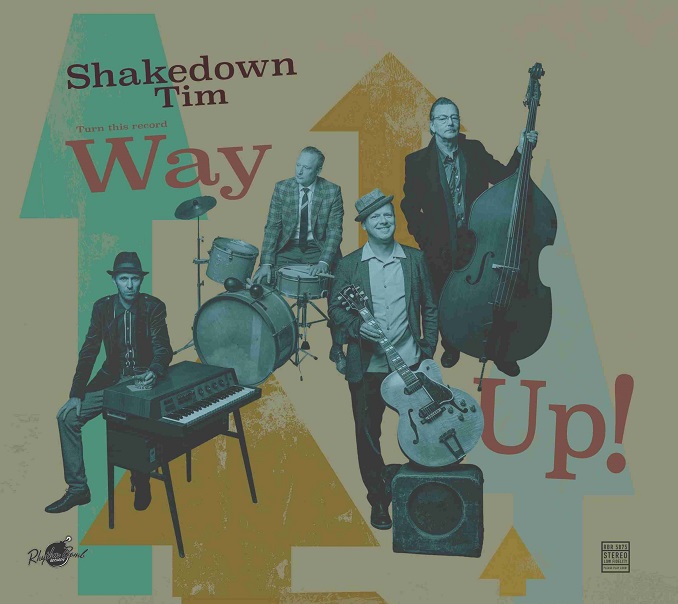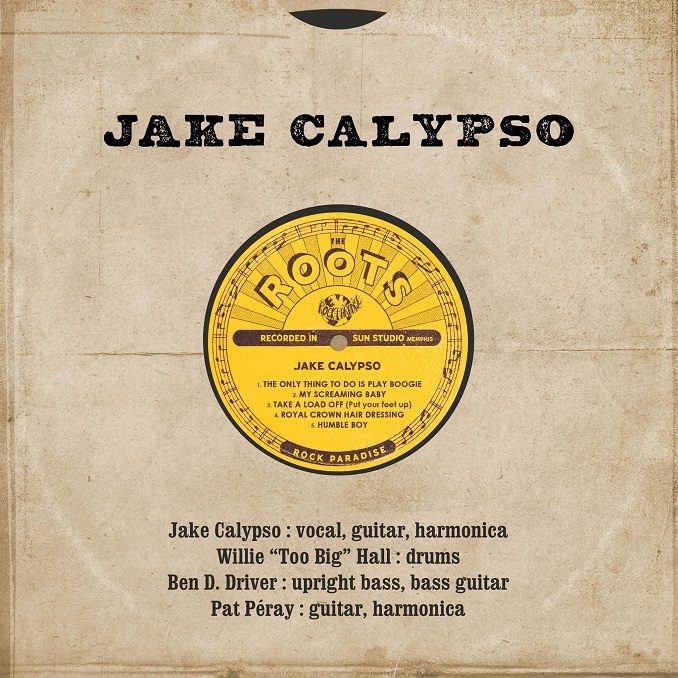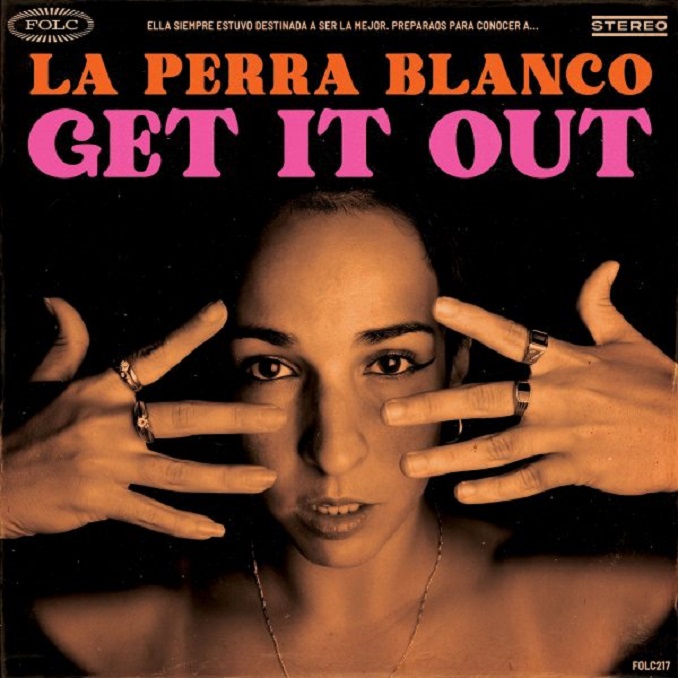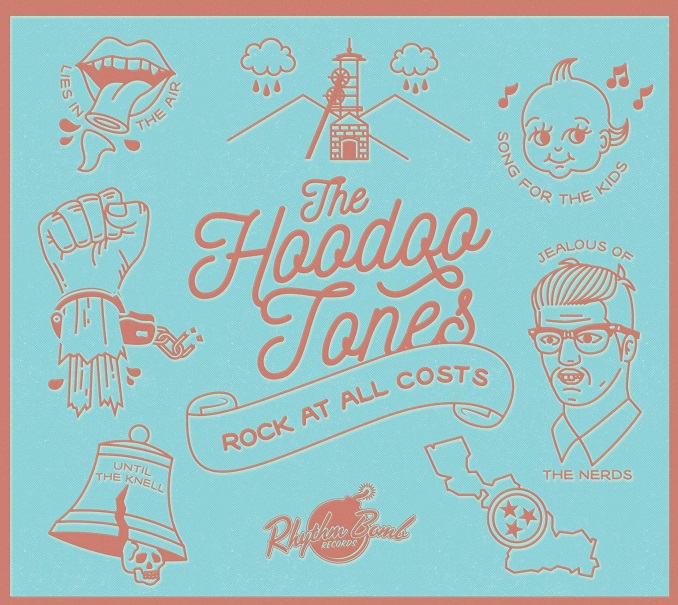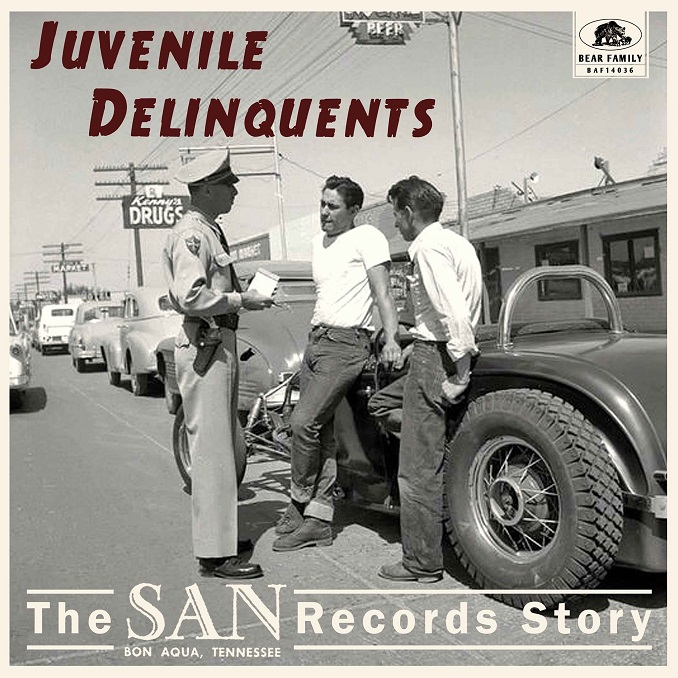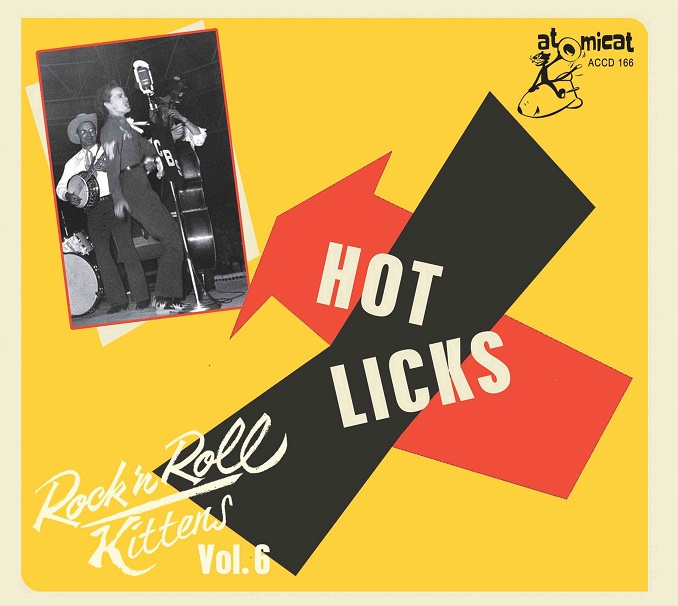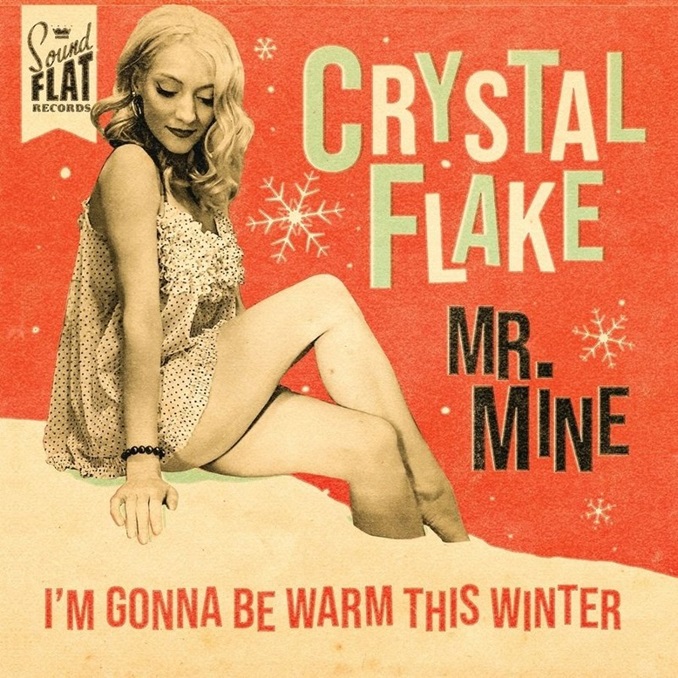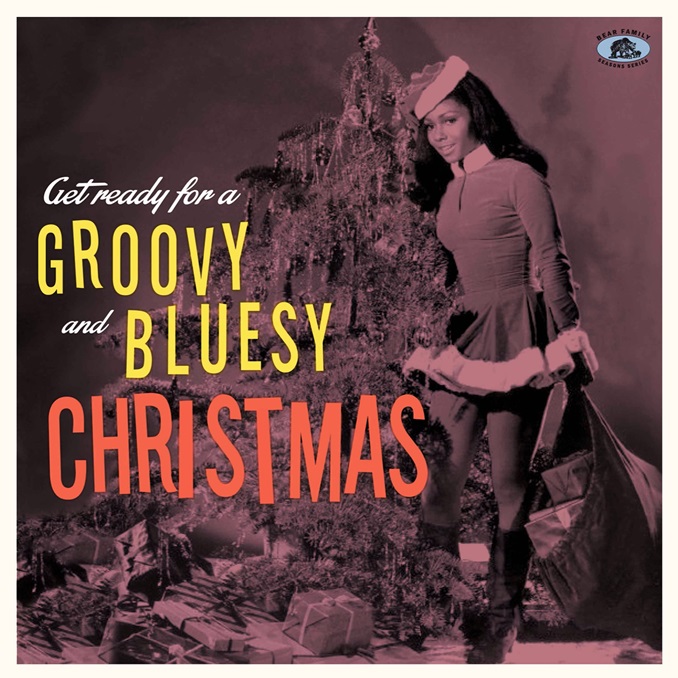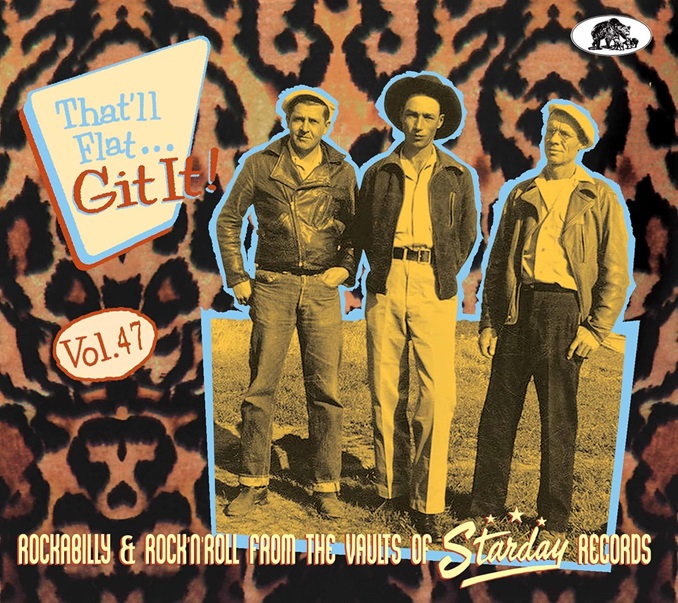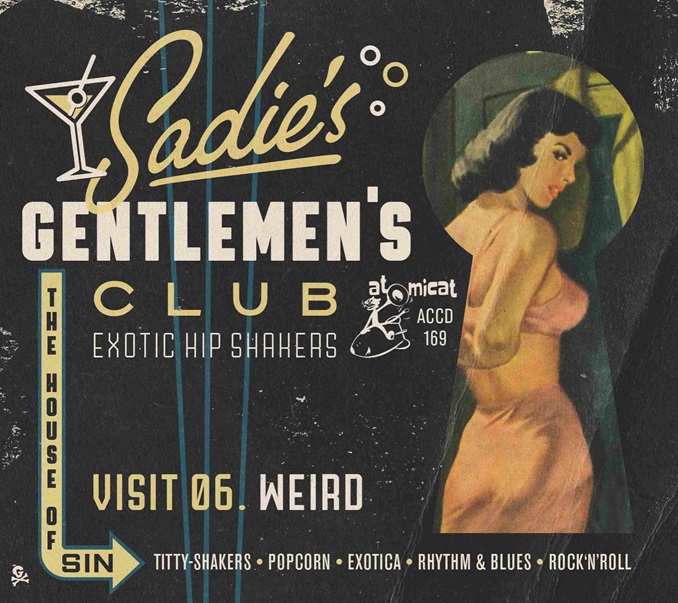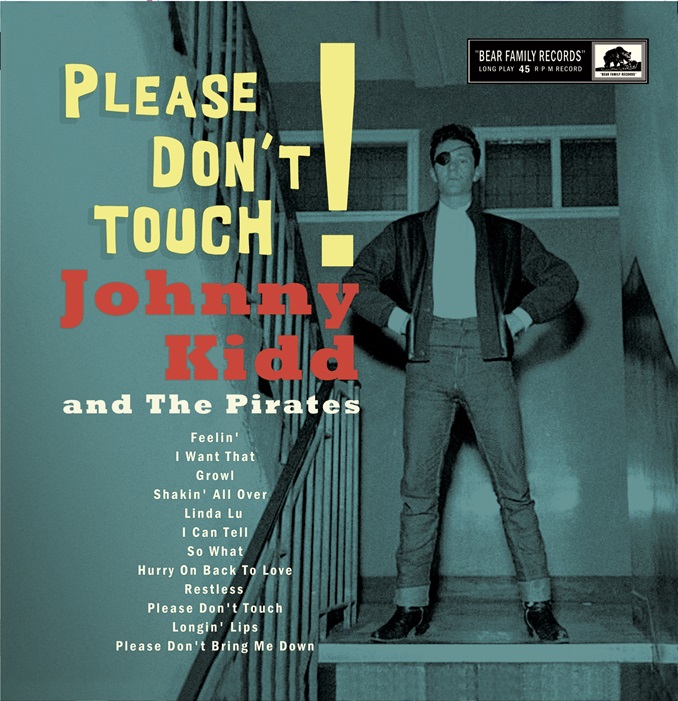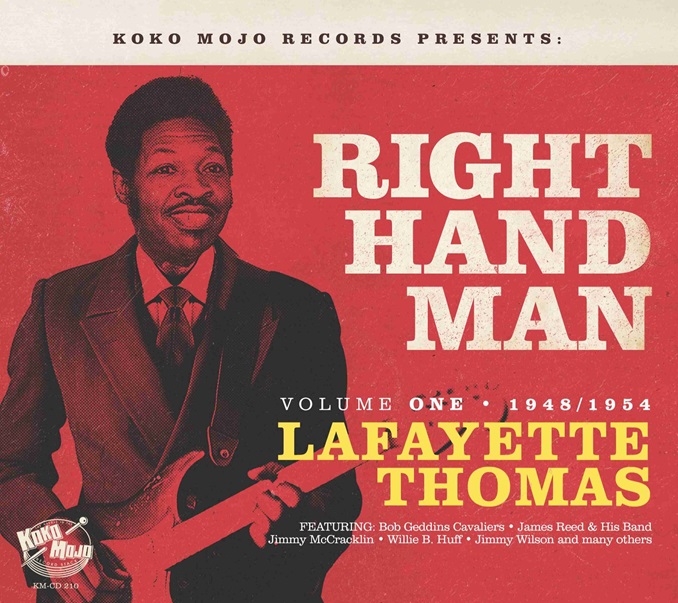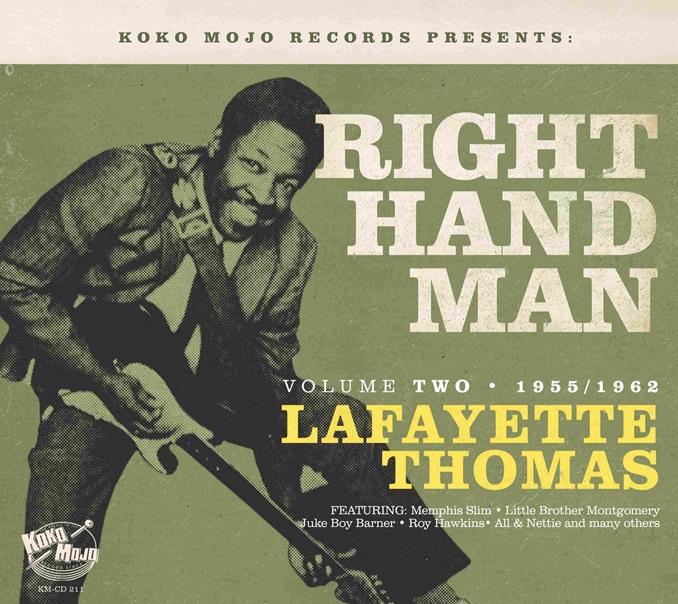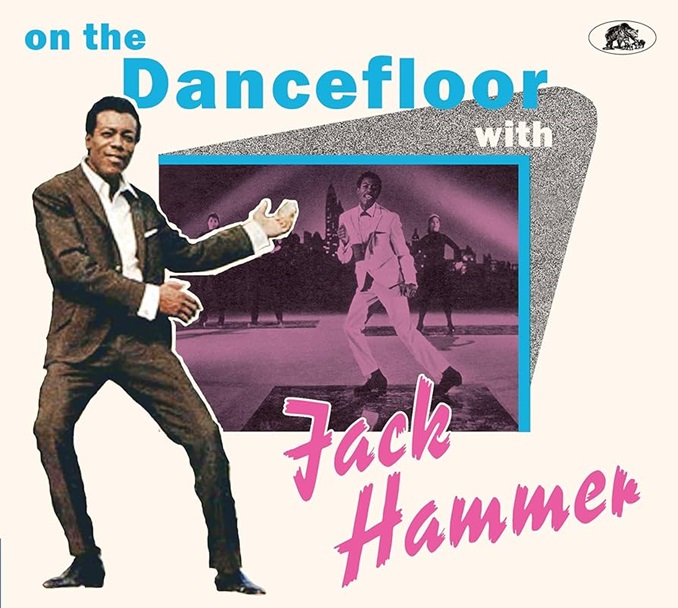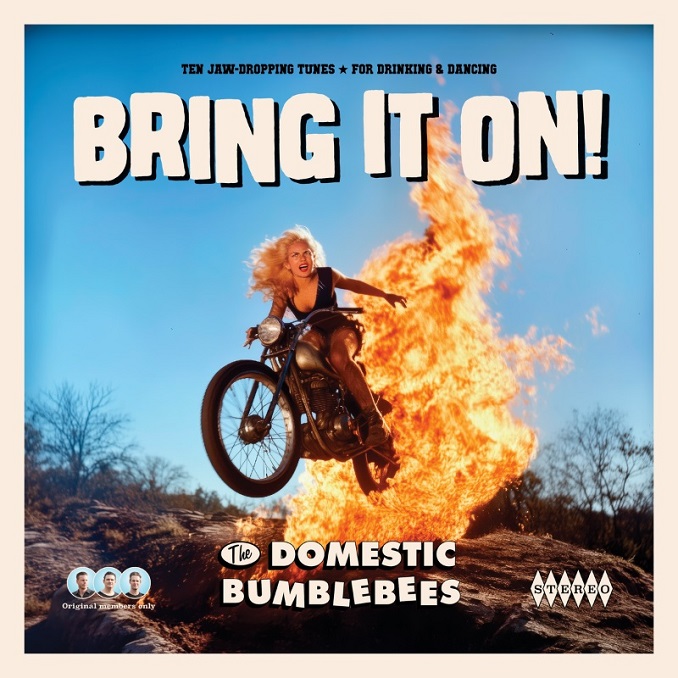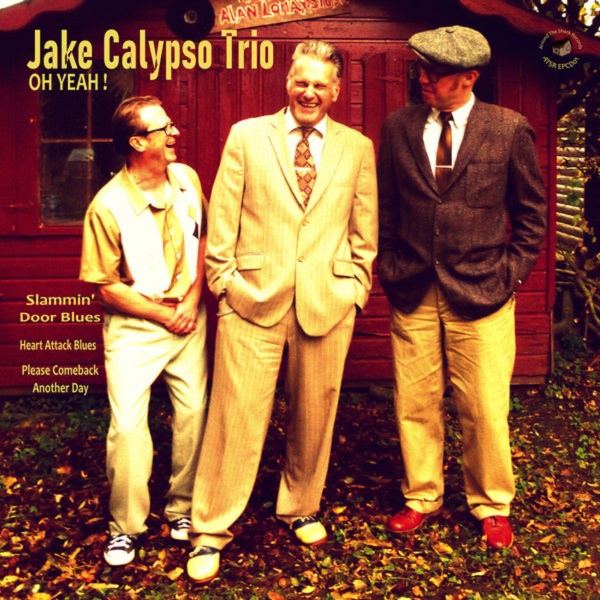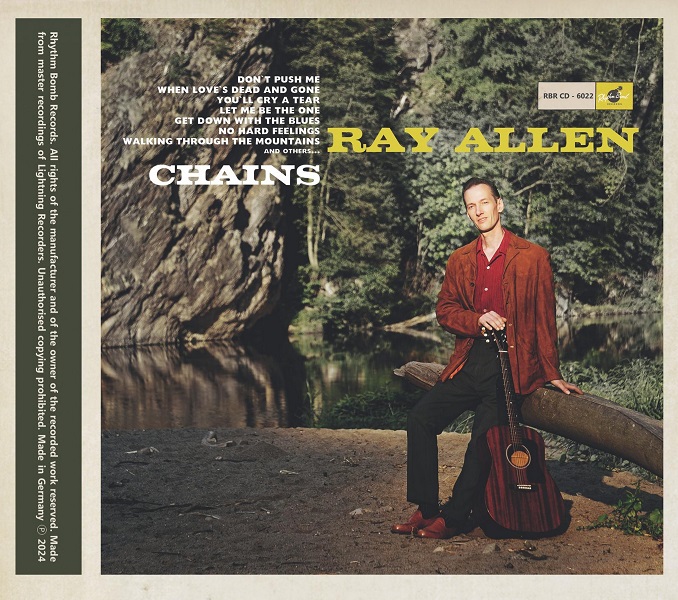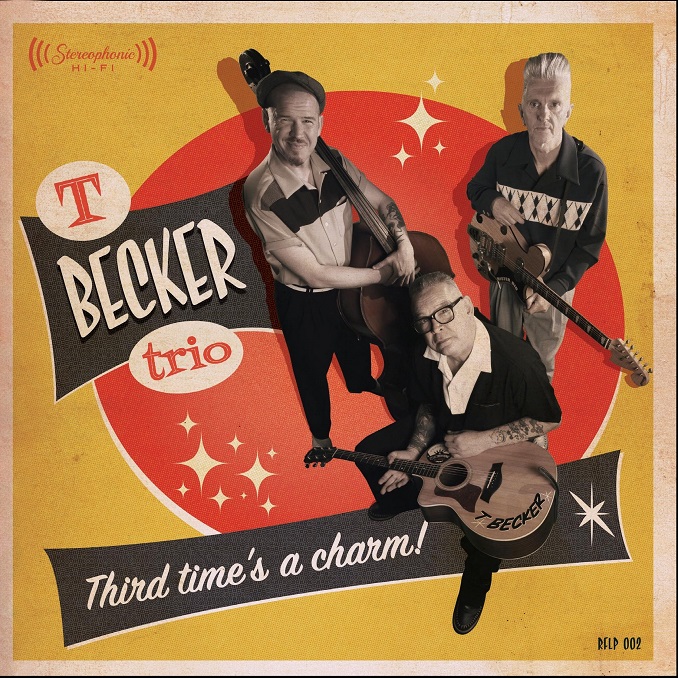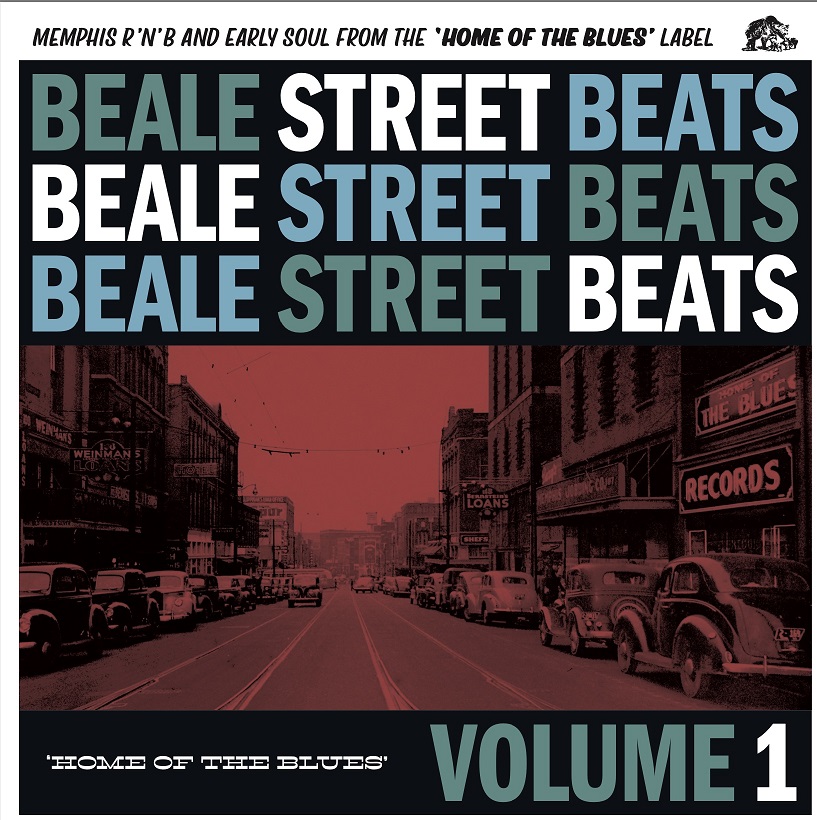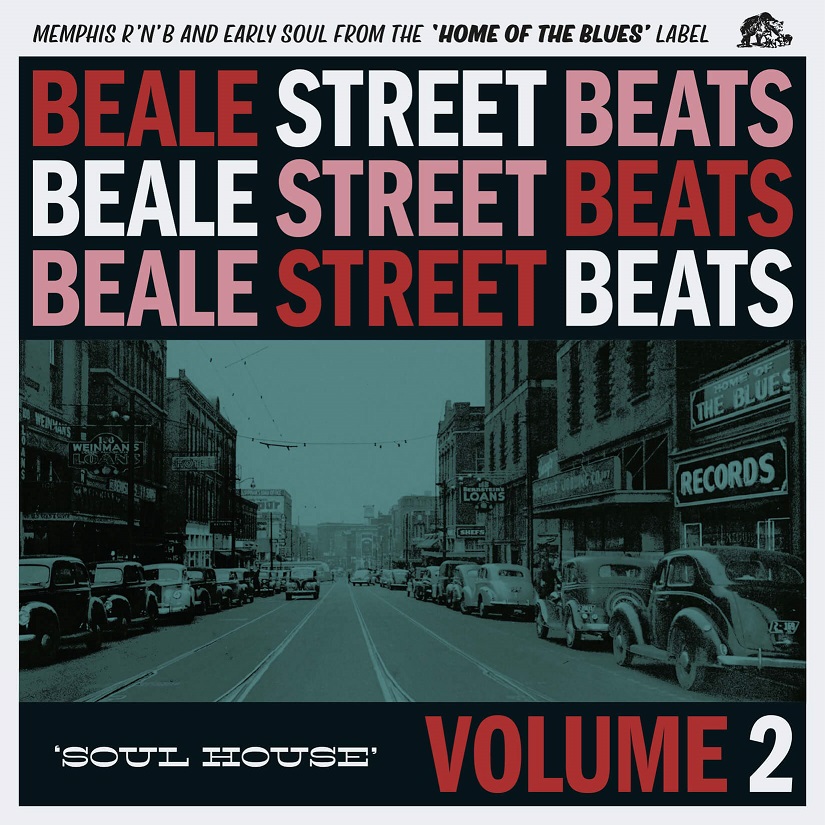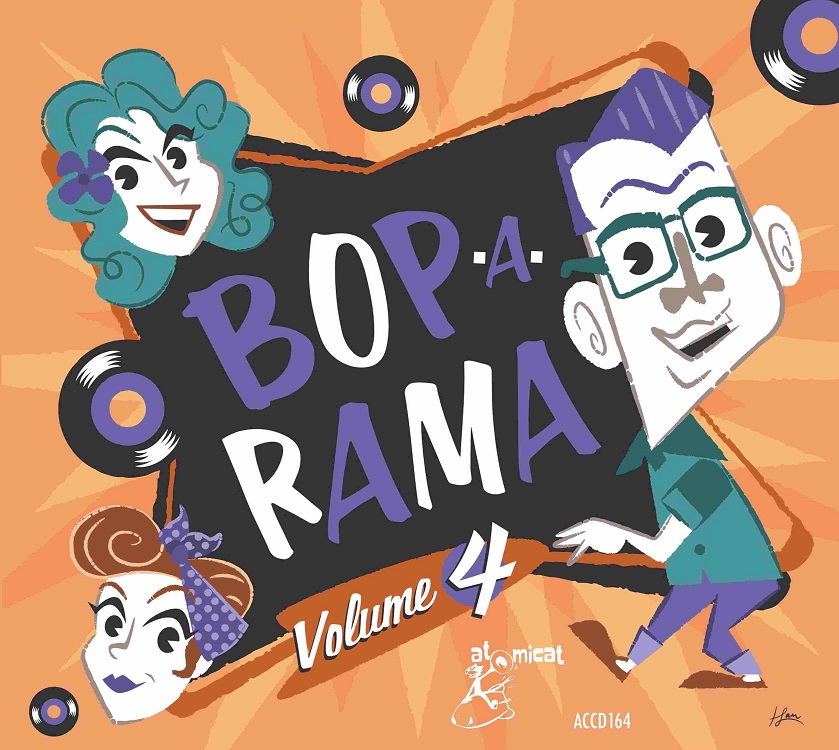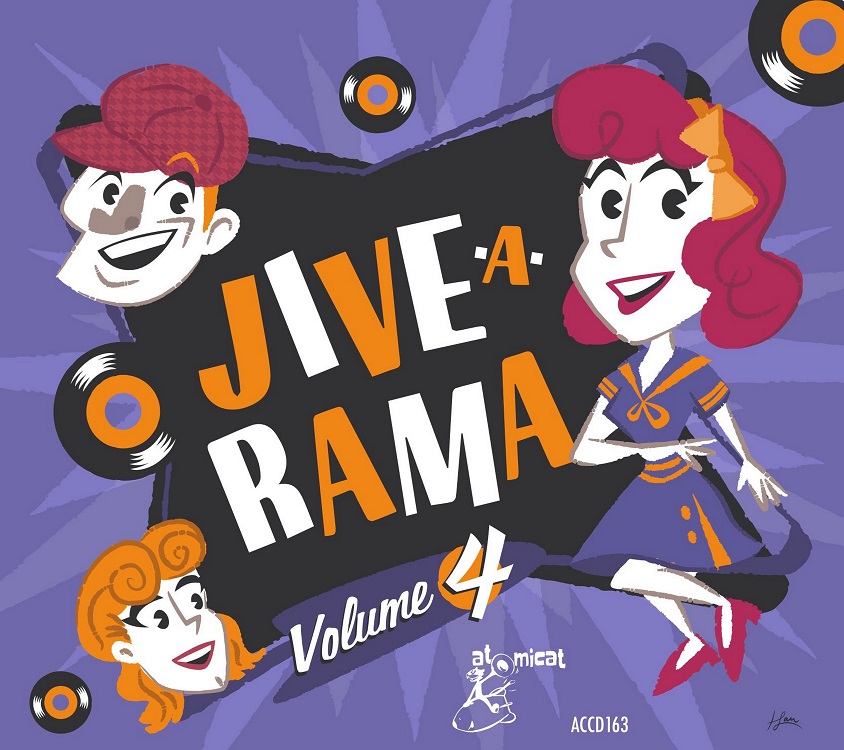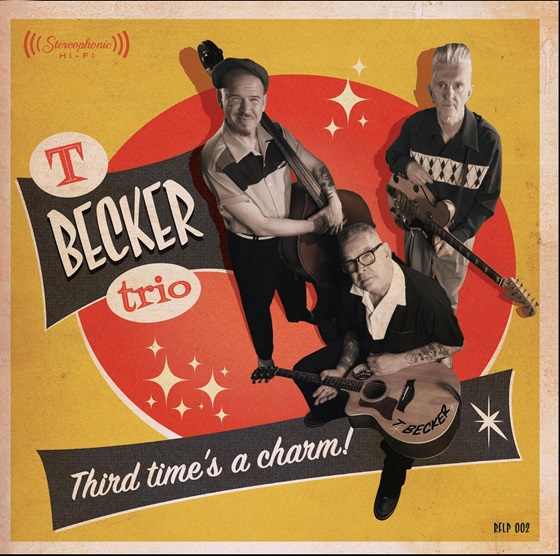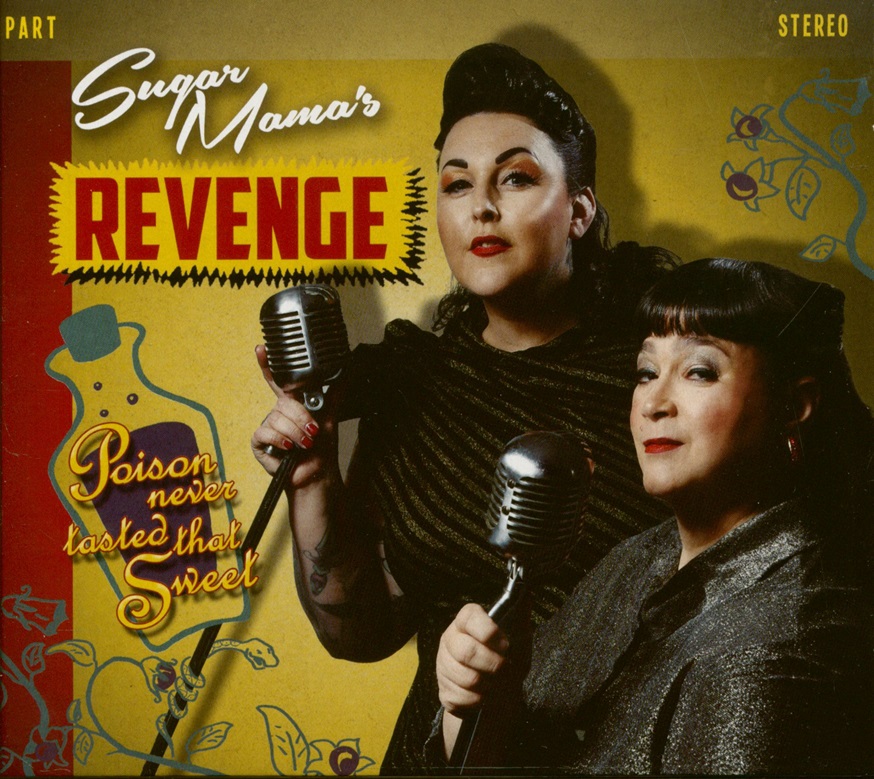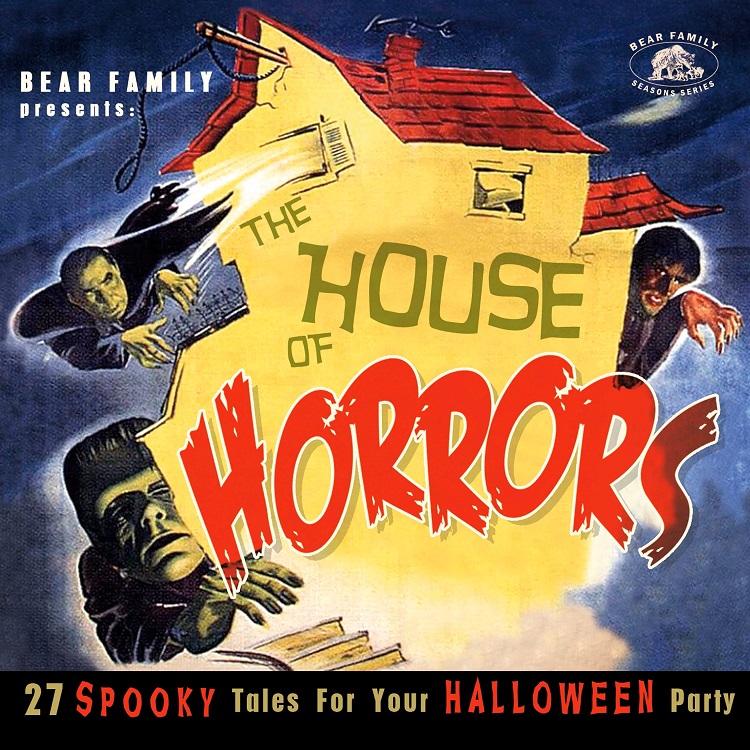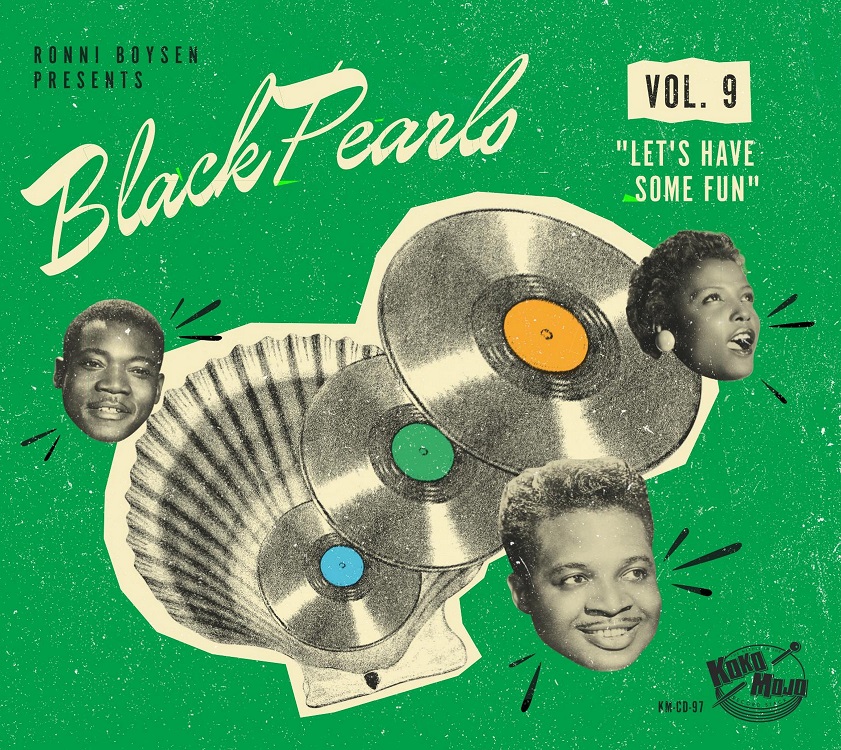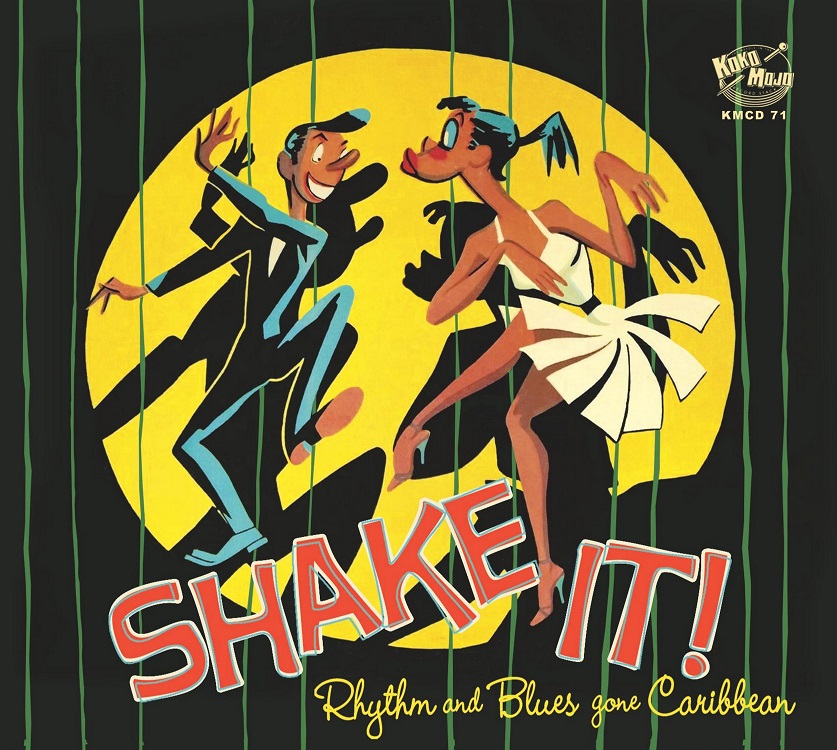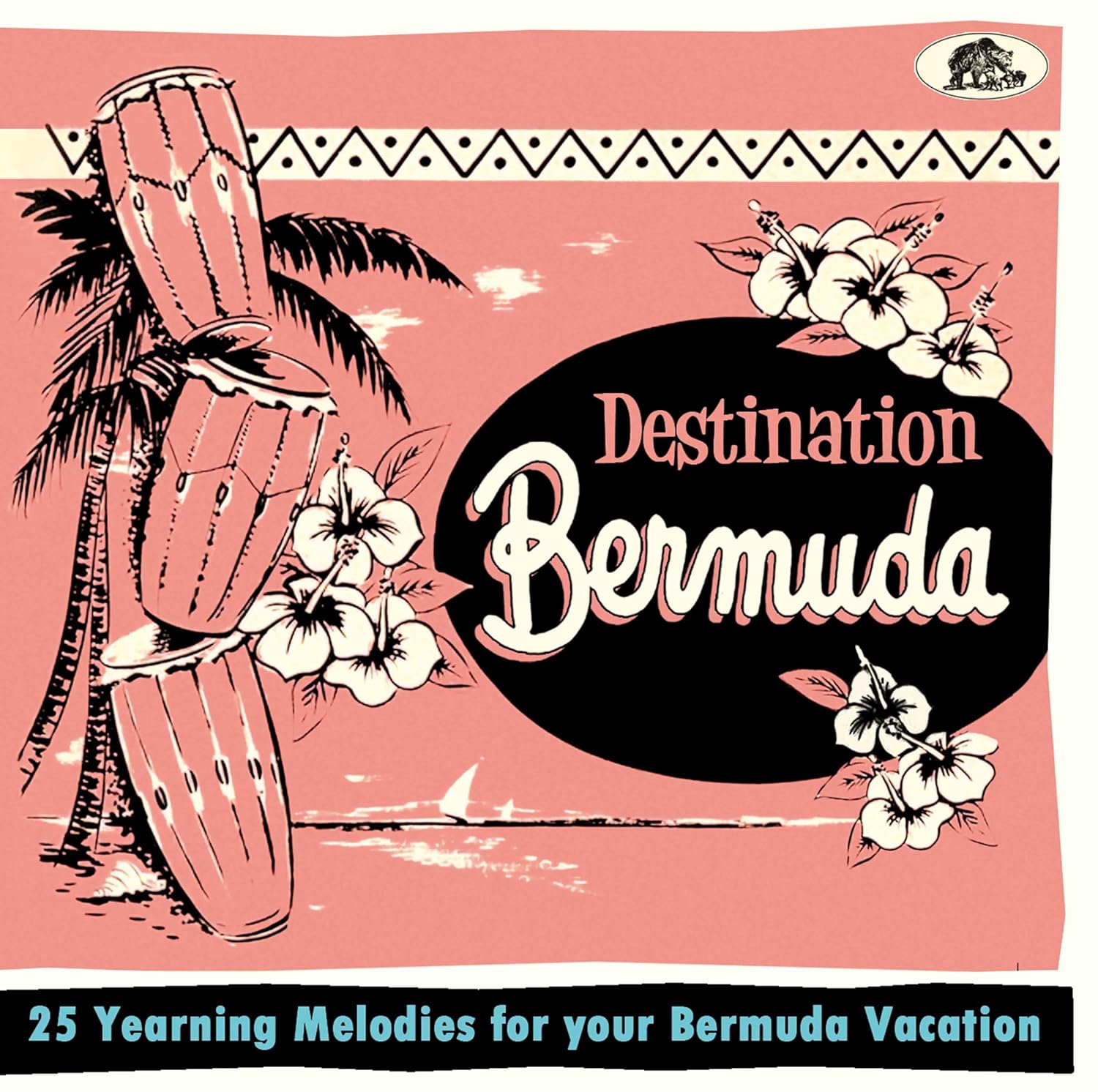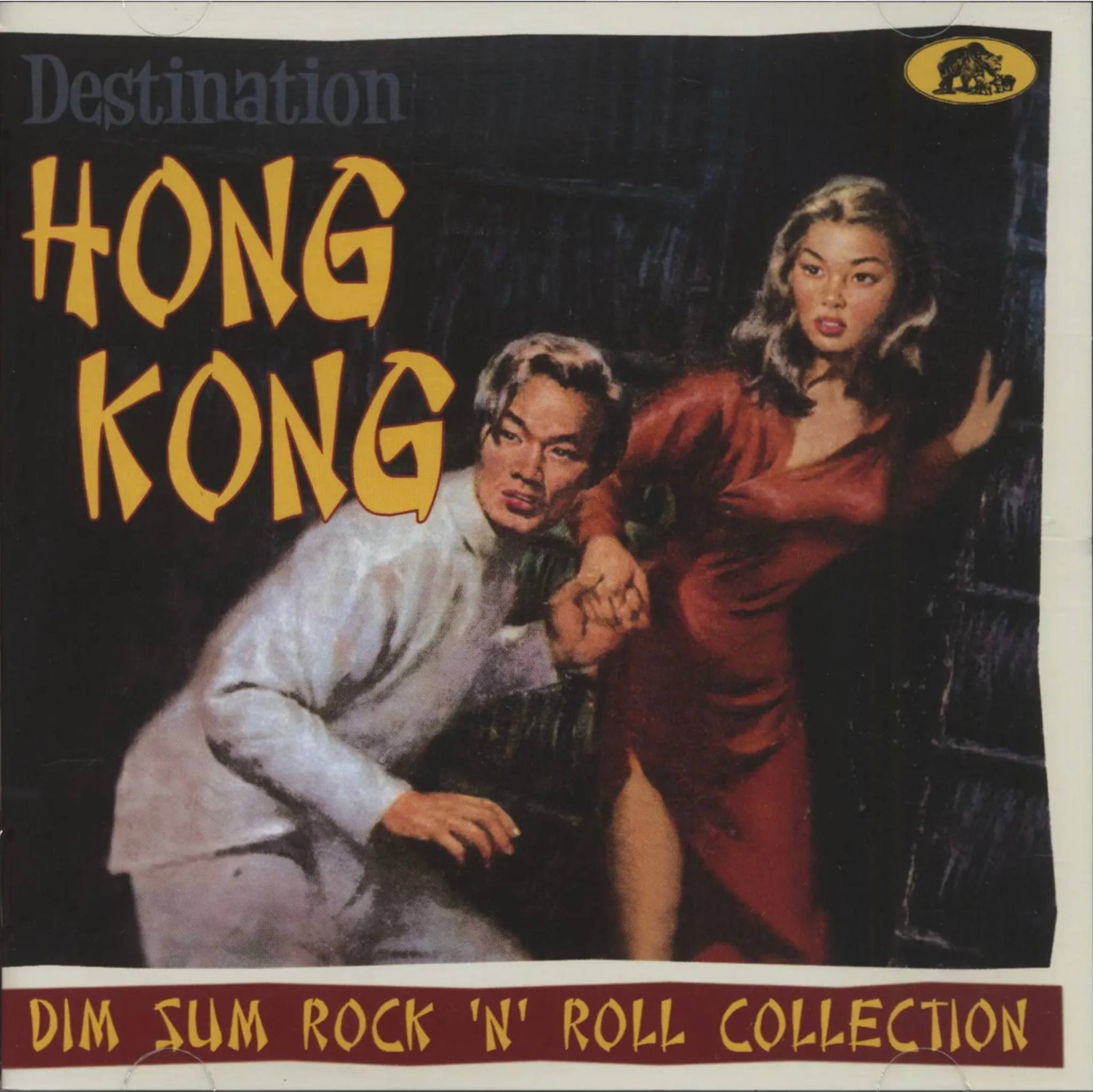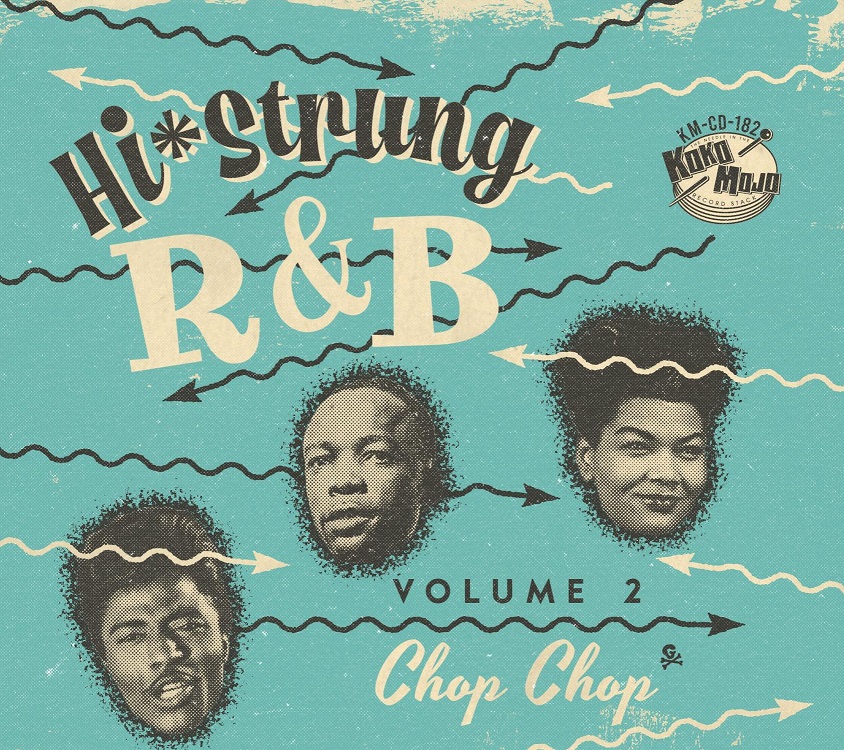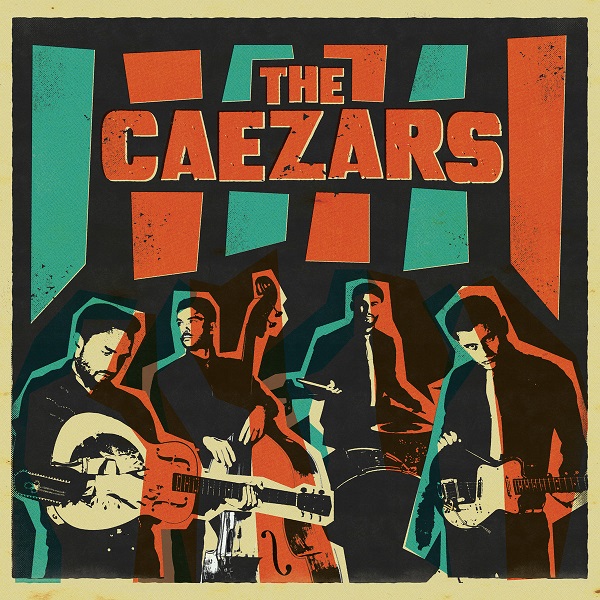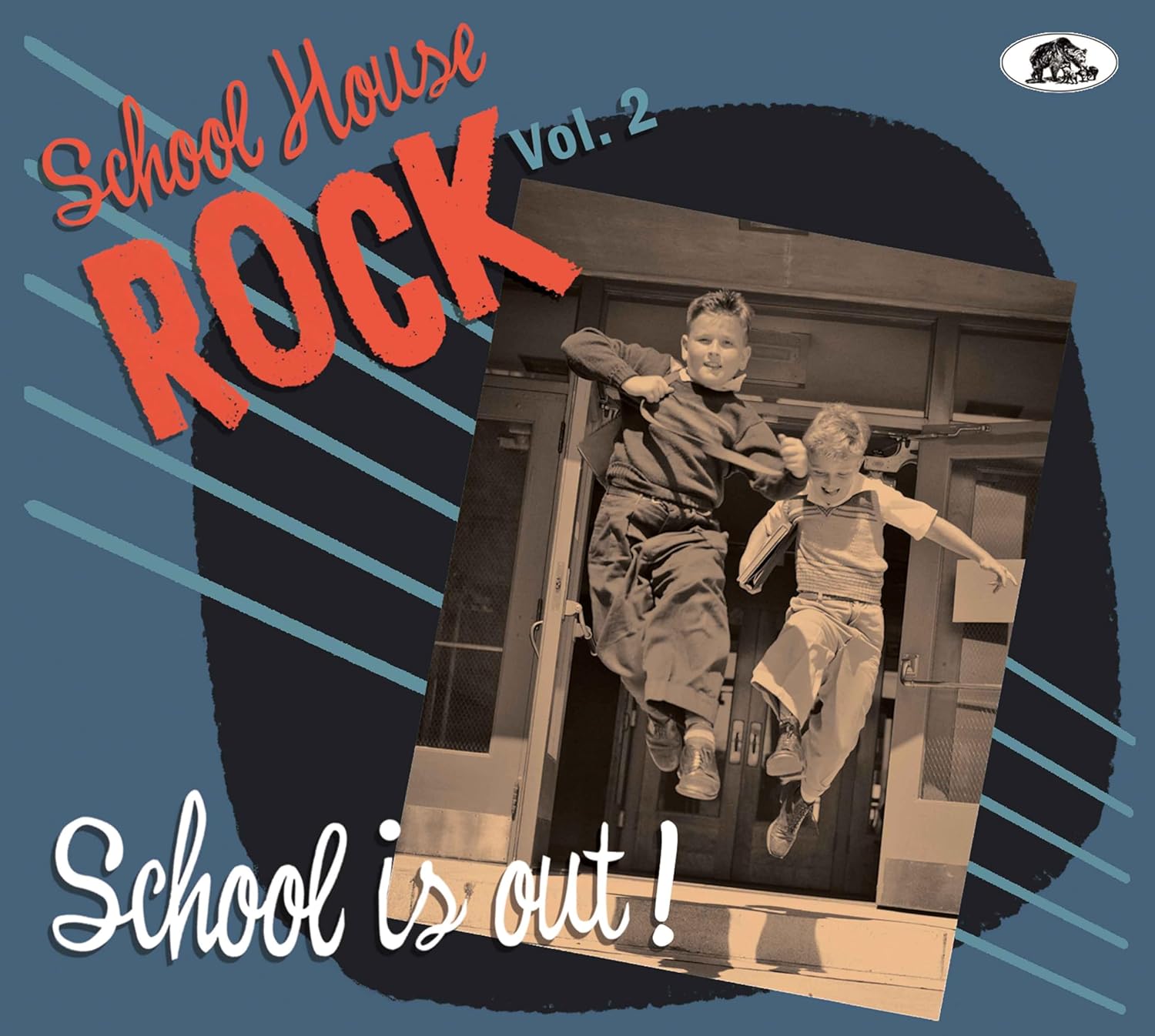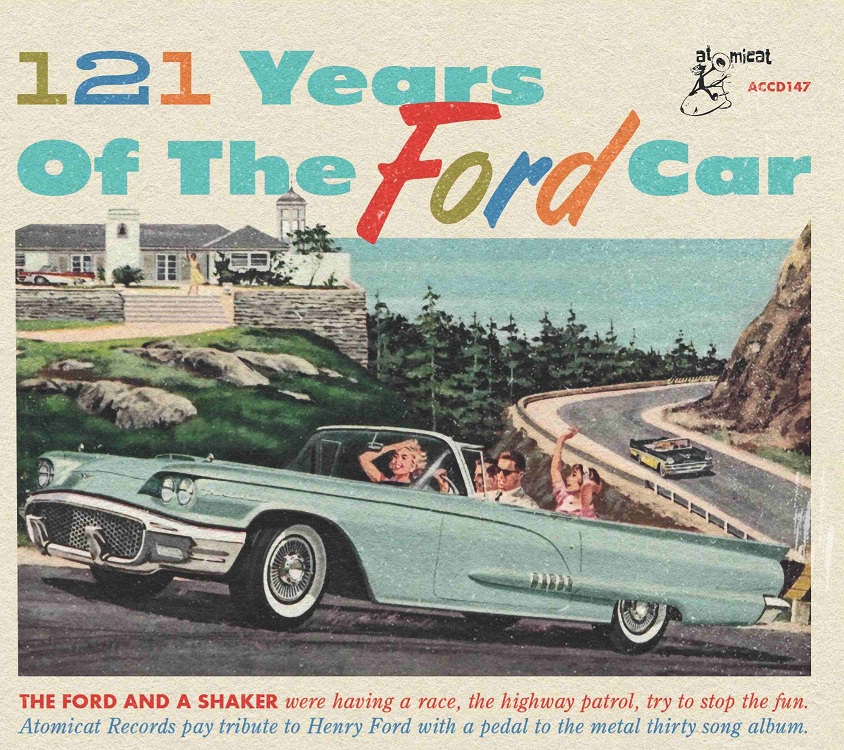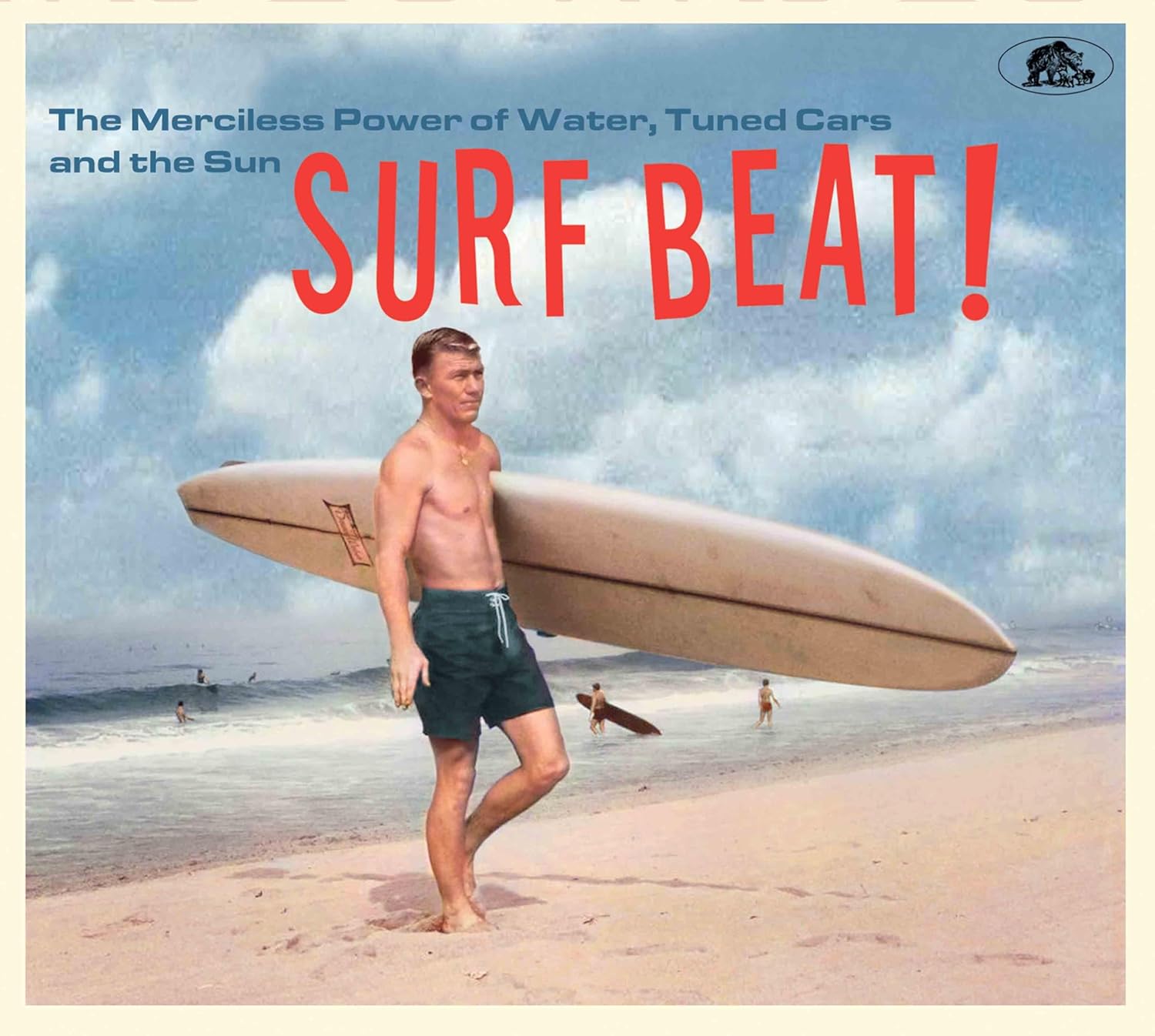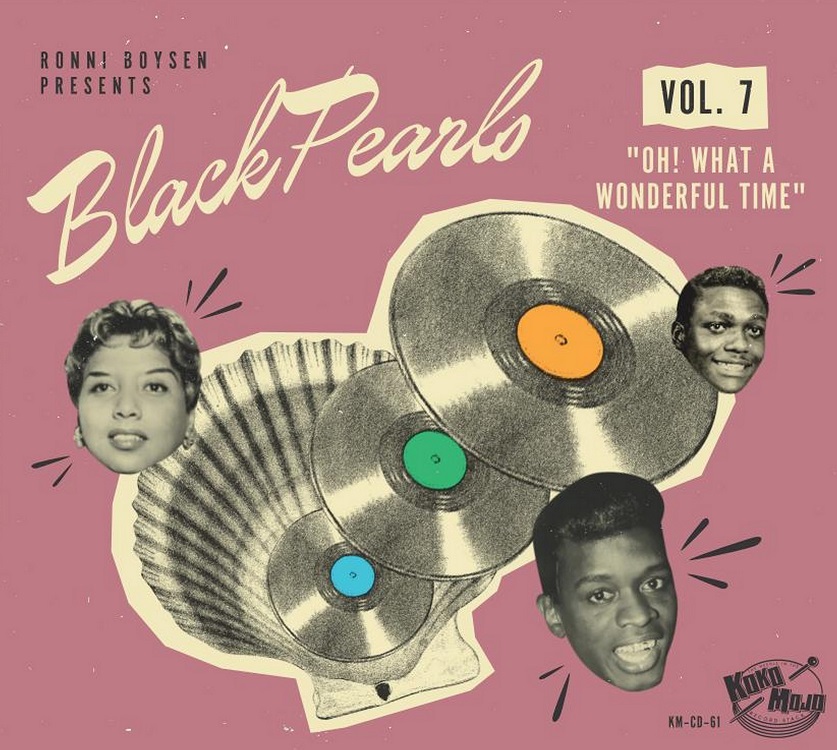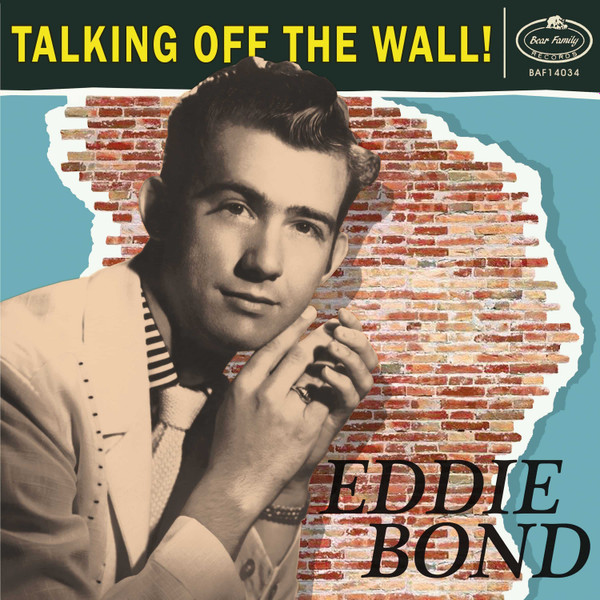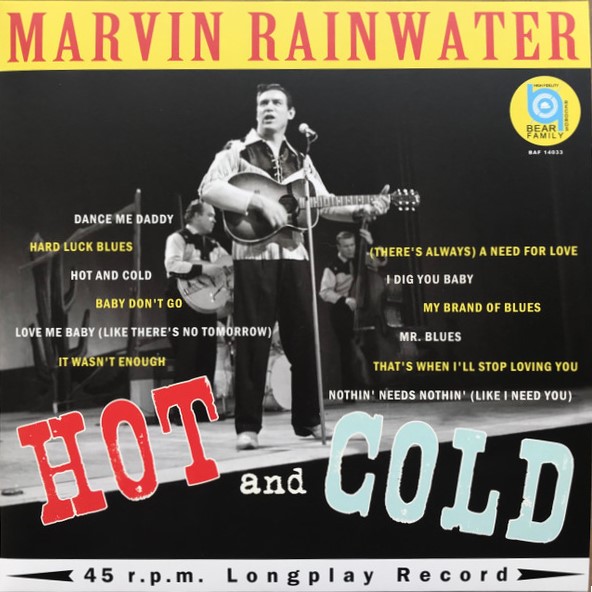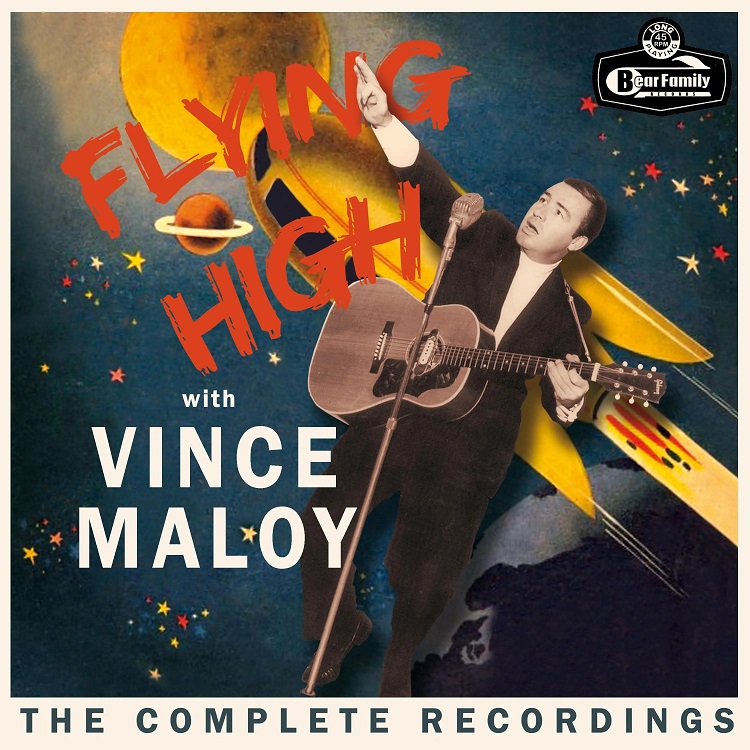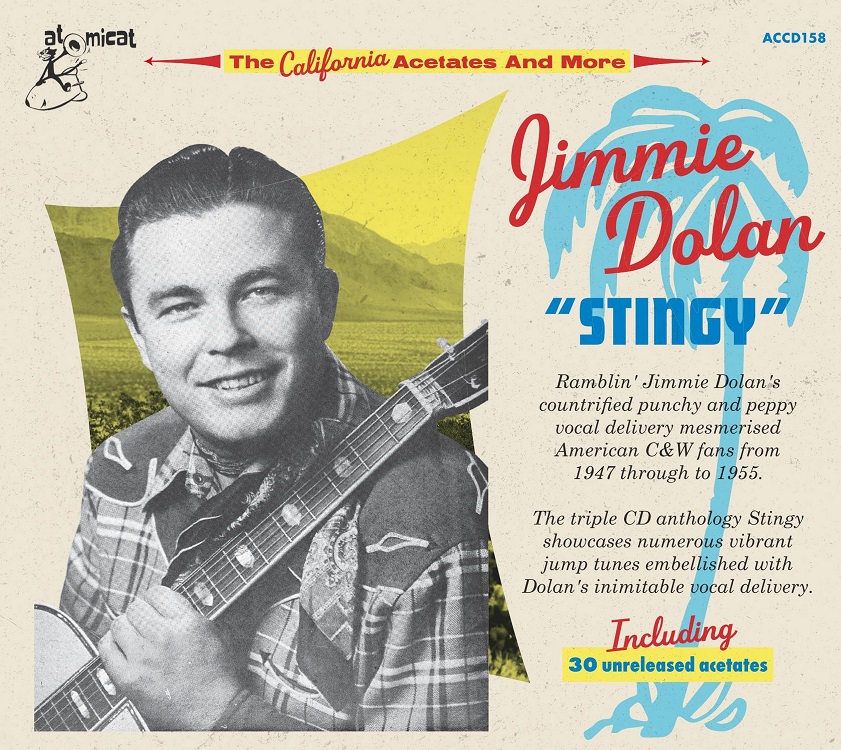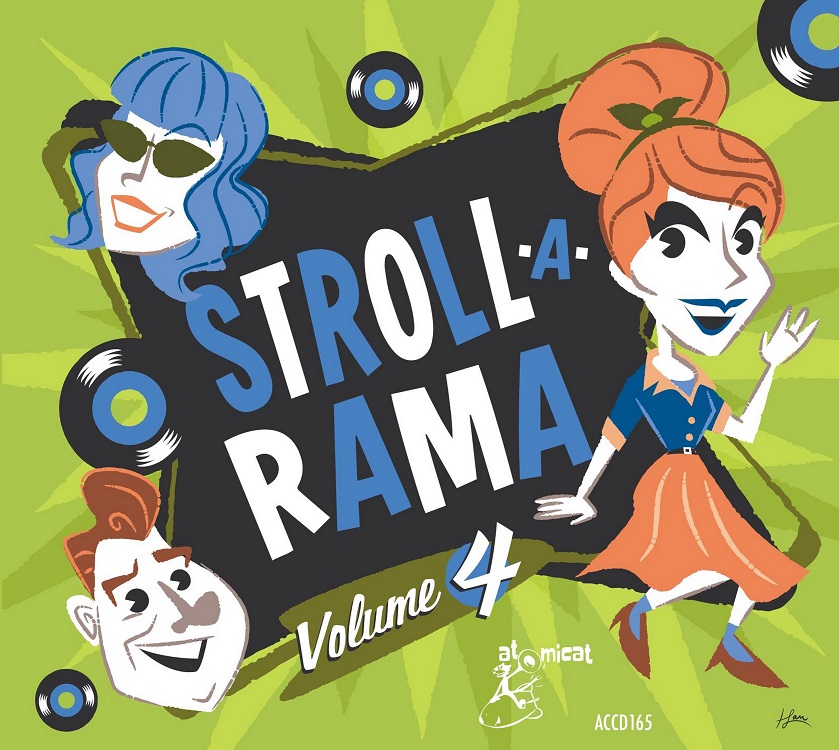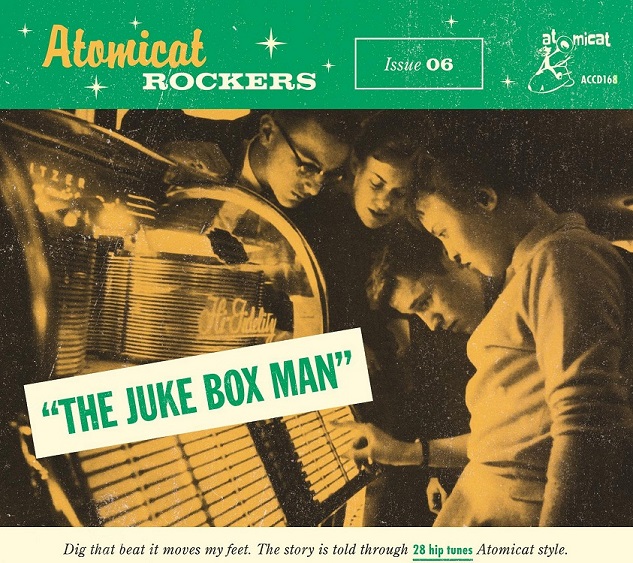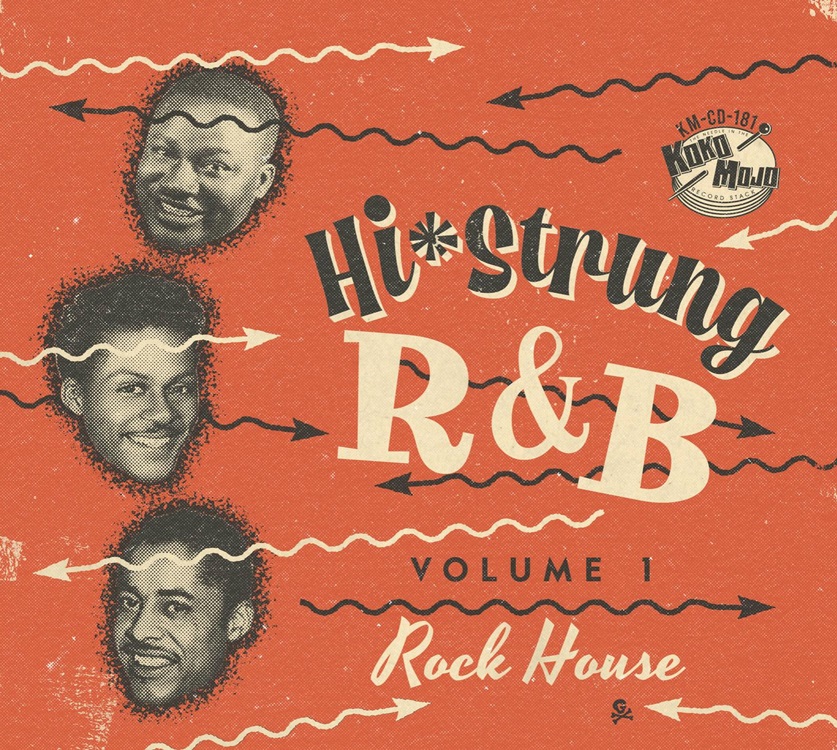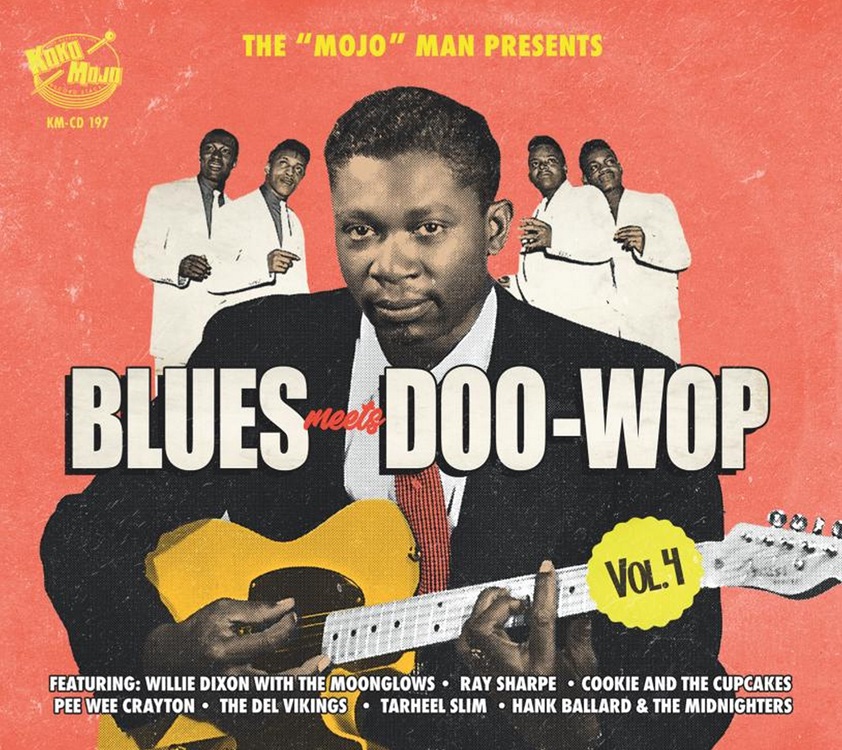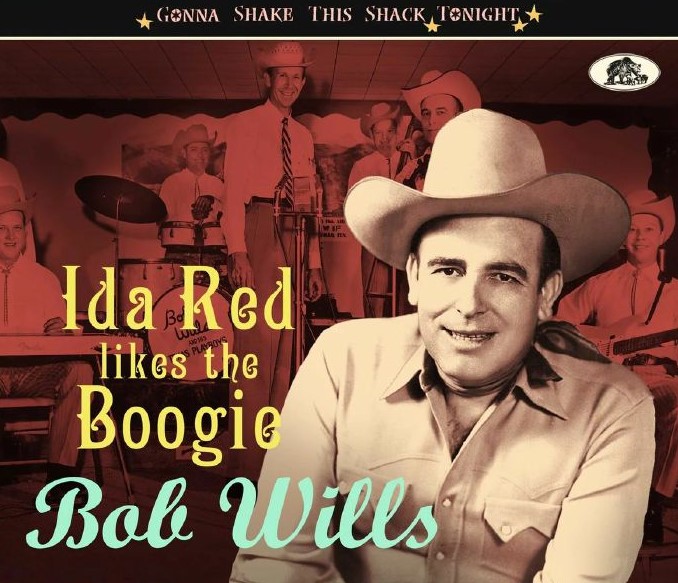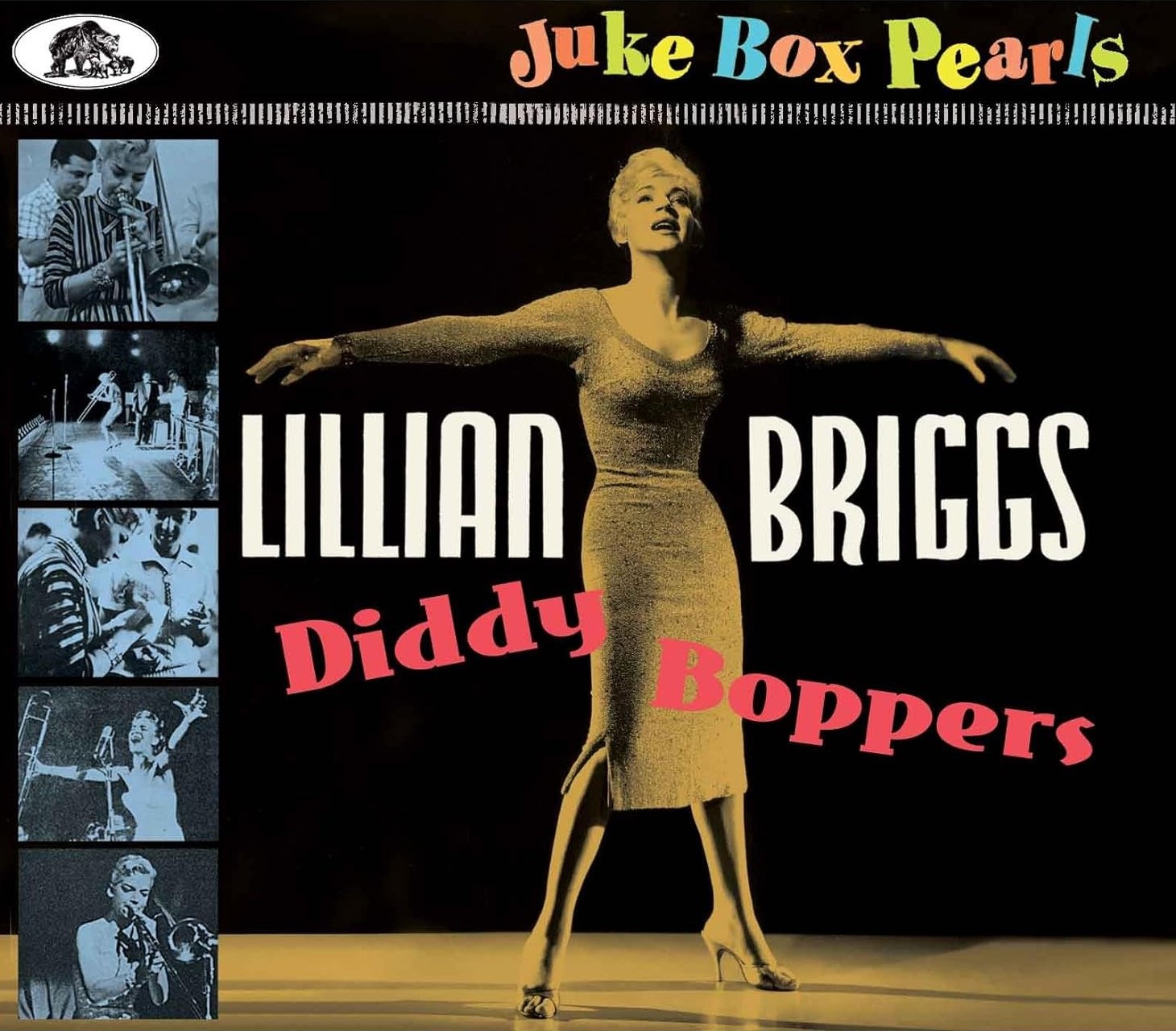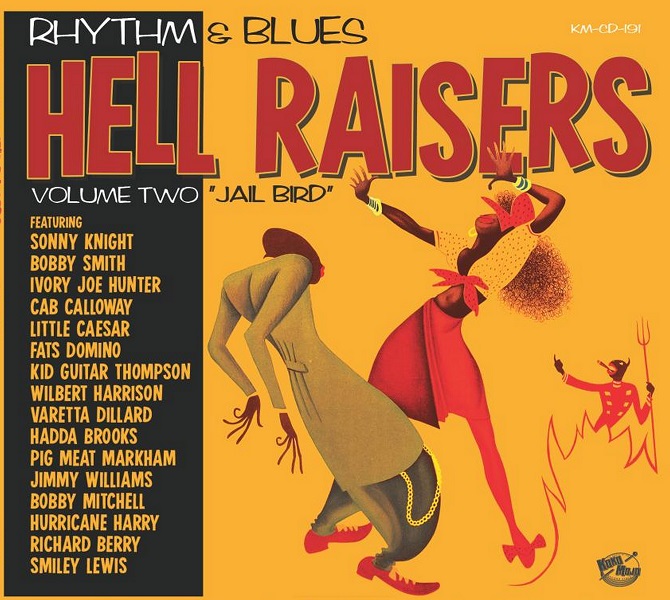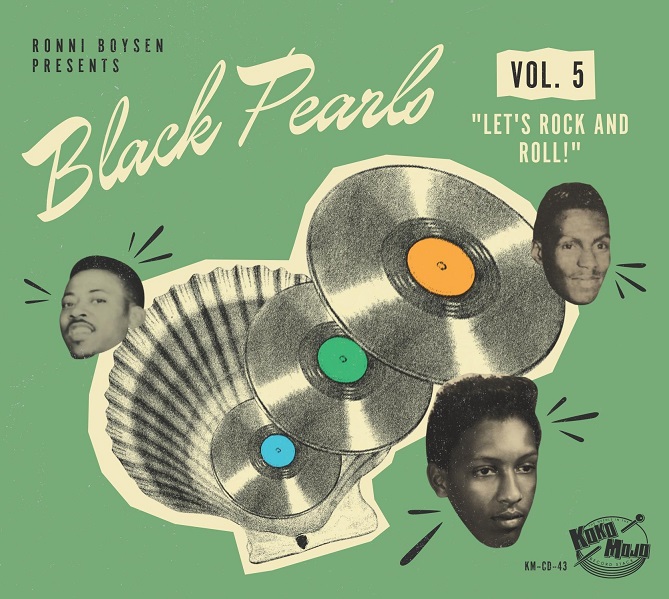
Je
recente release (muziek, boek of wat dan ook) gerecenseerd op onze website?
Stuur deze dan naar de hoofdredactie! |
26 december 2024
![]()
CD Recensies
| WAY
UP/ SHAKEDOWN TIM & THE RHYTHM REVUE
Dit
is het derde album sinds 2016 van Tim Ielegems dat ik eigenlijk alleen
heb beluisterd omdat het nu eenmaal een Belgische artiest is die al
eens de wegen van Boppin' Around kruist. Tot mijn verbazing was ik
zo aangenaam verrast dat dit wel degelijk een recensie verdient. Ik
herken één gezicht op de groepsfoto, Kurt Lens, ook
contrabassist bij western swingers The Hadacol Tremblers.
I
only listened to the third album since 2016 by Tim Ielegems because
he's a Belgian artist whose paths have crossed with Boppin' Around
before. To my amazemznt I was so pleasantly surprised that it indeed
deserves a review. I recognize one face in the band photo, Kurt Lens,
also double bass player with western swingers The Hadacol Tremblers
(B). |
|
THE ROOTS & THE FRUITS/ JAKE CALYPSO
Ik
leerde Jake Calypso (F) kennen midden jaren '90 als zanger van de
Noord-Franse band Mystery Train met op gitaar Philippe Nowak, anno
nu frontman van The Lucky Devils. Calypso heette toen nog gewoon Hervé
Loison en bleek daarvoor al in The Corals te hebben gezeten die ik
dan weer kende van hun releases op het Nederlands/Belgische Mac label.
Sindsdien deed Loison verschillende dingen onder verschillende namen,
en als je al zolang rockt en dat op je zestigste en opa zijnde nog
steeds doet, ben je ofwel goed ofwel goed gek. Hervé Loison
is een beetje alle twee, zoals blijkt uit alles wat hij al deed onder
noemers als Hot Chickens, Maharadjah Pee Wee Jones, The Rambling Men,
The Nut Jumpers en vooral Jake Calypso, de naam waaronder hij zichzelf
in 2010 opnieuw uitvond, in de eerste plaats om authentieke rockabilly
te spelen, maar al gauw in een mix van een heleboel rock 'n' roll
stijlen. Loison's grote gave is dat hij een entertainer puur sang
is die zich weet te omringen door uitstekende muzikanten die zijn
knettergek verhaal omhoogtillen. In de loop der jaren kreeg de blues
steeds meer vat op hem, passie die hij in diverse vormen beleed op
albums als The Memphis Blues Cream, Vance Mississippi (met Archie
Lee Hooker, een neef van John Lee Hooker), Blues Never Lies en Black
Hills Country Blues onder namen als Lonely Jake en Wild Boogie Combo.
Op deze The Roots & The Fruits, titel gebaseerd op een citaat
van Willie Dixon, "the blues are the roots, the rest are the
fruits", combineert Loison zijn twee grote liefdes rock 'n' roll
en blues op een CD met tien zelfgeschreven titels verdeeld in vijf
wortels van de rootsmuziek en vijf vruchten die daaruit groeiden.
Voor de blues trok hij een dagje naar de Sun studio in Memphis samen
met zijn vaste contrabassist Ben D. Driver. Drummer Thierry Sellier
was daar niet bij dus huurden ze de nu 74-jarige Willie Hall in, studiodrummer
bij Stax Records in Memphis van 1968 tot 1977 op platen van Albert
King (de LP Blues For Elvis, King Does The King's Things in 1970),
Isaac Hayes, The Bar-Kays en Rufus Thomas. Hall verving in 1977 de
overleden Al Jackson bij Booker T & the MGs en is bij het grote
publiek vooral bekend als de drummer van The Blues Brothers in de
films The Blues Brothers en Blues Brothers 2000. I
first heard Jake Calypso (F) in the mid-nineties when he was the of
Mystery Train, a rockabilly band form the north of France with on
guitar Philippe Nowak who is now the frontman of The Lucky Devils.
At that time Jake Calypso was still simply Hervé Loison, previously
been in The Corals who I knew from their releases on the Dutch/Belgian
Mac label. Since then he's done a lot of different things using different
names, but if you have been rockin' and rollin' for that long and
you're still at it at the age of sixty when you have grandkids, you're
either good or crazy. Hervé Loison is a bit of both, as evidenced
by everything he's done under such monikers as Hot Chickens, Maharajah
Pee Wee Jones, The Rambling Men, The Nut Jumpers and most importantly
Jake Calypso, the name under which he reinvented himself in 2010,
originally to play authentic rockabilly, but it quickly became a mix
of different rock 'n' roll styles. Loison's greatest gift is that
he's an entertainer through and through who knows to surround himself
with excellent musicians who go along in his madness. Over the years
he became more and more interested in blues music, a passion he expressed
in various forms on albums with titles like The Memphis Blues Cream,
Vance Mississippi (with Archie Lee Hooker, a cousin of John Lee Hooker),
Blues Never Lies and Black Hills Country Blues using names like Lonely
Jake and Wild Boogie Combo. On The Roots & The Fruits, CD title
based upon the Willie Dixon quote "the blues are the roots, the
rest are the fruits", he combines his two great loves, rock 'n'
roll and blues, into ten self-written songs divided into five roots
and five fruits that grew from them. For the blues half, Loison and
his double bassist Ben D. Driver rented the Sun studio in Memphis
for a day, and drummer Thierry Sellier being absent they hired the
now 74-year-old Willie Hall, studio drummer at Stax Records in Memphis
from 1968 to 1977 on records by Albert King (the LP Blues For Elvis,
King Does The King's Things in 1970), Isaac Hayes, The Bar-Kays and
Rufus Thomas. In 1977 Hall replaced the late Al Jackson in Booker
T & the MGs and to the general public he's best known as The Blues
Brothers' drummer in the films The Blues Brothers and Blues Brothers
2000. |
| GET
IT OUT/ LA PERRA BLANCO
Wie
de voorbije jaren al eens een stapje in de wereld zette heeft op een
of ander podium ongetwijfeld kennis gemaakt met de Spaanse furie Alba
Blanco alias La Perra Blanco. Een opvallende verschijning is het minste
wat je kan zeggen, niet alleen qua uiterlijk (een duim groot, een
toren dreadlocks bovenop haar hoofd en steevast in minishort), maar
zeker ook qua muziek: ze speelt zelf leadgitaar en valt die alle regels
overboord gooiend aan alsof een hellehond haar op de in cowboylaarzen
gestoken hielen zit. Ze schreeuwt meer dan ze zingt met een scherpe,
schelle stem voorzien van een licht accent. Live geeft dat vonken,
maar kan ze die wilde onstuimigheid ook vertalen naar geluidsdrager?
Ja, als je houdt van rauwe, ongepolijste rock 'n' roll, luister naar
het full album Bop & Shake (2019) en de twee 4 track vinyl EPs
La Perra Blanco (2021) en Won't You Come On (2022). Dit nieuwe album,
bij mijn weten haar eerste sinds Bop & Shake, is dan ook een grote
verrassing...
If
you have been out and about in the past few years you've probably
seen Spanish fury Alba Blanco aka La Perra Blanco somewhere live on
stage. You can't miss her, not only because of how she looks (five
feet tall, a tower of dreadlocks on top of her head and invariably
wearing miniskirts), but most certainly because of her music: she
plays the lead guitar herself, attacking it by throwing all the rules
overboard as if a hellhound is hot on her cowboy boots wearing heels.
She screams more than she sings with a sharp, shrill voice featuring
a slight accent. Live this provides sparks, but can she translate
her wild impetuosity to a sound carrier? Yes, if you like your rock
'n' roll raw and unpolished, just listen to her full album Bop &
Shake (2019) and the two 4 track vinyl EPs La Perra Blanco (2021)
and Won't You Come On (2022). This new album, as far as I know her
first since Bop & Shake, is therefore a big surprise... |
| ROCK
AT ALL COSTS/ THE HOODOO TONES
Vijfde
album of zo van dit Noord-Franse trio op bijna tien jaar en da's een
hoog gemiddelde. Alle vijf verschenen op Rhythm Bomb (D), hun debuut
Confessions Of A Loner uit 2016 was rockabilly voor een groot stuk
gebaseerd op bluesbop patroon, maar al spoedig spreiden The Hoodoo
Tones hun tentakels uit en werd hun muziek een mix van rock en pop
die resulteerde in opwindende moderne gitaar rock 'n' roll op het
vlijmscherp van de snee en de ziel op de tong, beïnvloed door
zowel Paladins als Bobby Fuller Four als instro surf, gespeeld met
de energie van een Ronnie Dawson. Ook hun nieuwe album is in essentie
rock en pop gedaan in rock 'n’ roll stijl, maar dan zo goed
dat wij enkel glimlachend kunnen genieten.
Fifth
album or something like that from this trio from the north of France
in almost a decade which is a high average. All five appeared on Rhythm
Bomb (D), their 2016 debut Confessions Of A Loner was rockabilly largely
based on bluesbop patterns, but The Hoodoo Tones soon spread their
tentacles and their music became a mix of rock and pop resulting in
exciting modern guitar rock 'n' roll on the edge played with the energy
of a Ronnie Dawson with their hearts on their sleeves and influenced
by both The Paladins and The Bobby Fuller Four as well as by instro
surf. Their new album is also essentially rock and pop done rock 'n'
roll style, but it's so good that we enjoy it with a smile. |
11 december 2024
![]()
Vinyl Recensie
|
JUVENILE DELINQUENTS: THE SAN RECORDS
STORY
Bear
Family doet het weer: een verzamelaar met de volledige output van
San Records uit Bon Aqua, Tennessee. Als ze die zouden uitbrengen
in hun That’ll Flat Git It reeks zou dat een bijzonder korte
CD zijn want op San Records verschenen in totaal slechts zes singles
van drie verschillende artiesten: Ronnie Allen (drie singles), labeleigenaar
Don Wade (twee singles) en David Barnes & the Hearts (één
single), of in feite drie singles van Don Wade want David Barnes was
een pseudoniem van Wade. Dus wordt het verhaal van San Records verteld
via vinyl, de geluidsdrager waarop het ook allemaal begon, en in het
bijgevoegde booklet van 21 op 21 centimeter, het resultaat van zes
jaar navorsing door rockabilly archeoloog Volker Houghton. Van die
zes singles verschenen er vijf tussen 1959 en 1961 en tien van de
twaalf kantjes werden reeds eerder gecompileerd op de Buffalo Bop’s
en Collector ‘s dezer wereld, sommige zelfs veelvuldig. Ze alle
twaalf nu allemaal bij elkaar te hebben is een onwaarschijnlijke luxe,
zeker omdat bij mijn weten The Best Of Me en I Can’t Stand It
Anymore nooit werden heruitgebracht, al durf ik mijn hand voor niks
meer in het vuur te steken want een mens kan nooit alles weten, laat
staan alles beluisteren. Deze genummerde 10 inch op 500 exemplaren
(wij hebben nummer 216) kun je in elk geval wél beluisteren.
De plaat opent met een absolute monster rockabilly gitaarbopper van
Don Wade, Gone Gone Gone, niet het nummer van Carl Perkins maar een
zelfgeschreven 200 % pure rockabilly stop-starter. Ook zijn Oh Love
is een waanzinnige gitaarbopper, maar Forever Yours is iets helemaal
anders wegens een ballade in Elvis stijl, terwijl het een cover van
een Sun nummer van Carl Perkins is! Het bekendste nummer op San is
waarschijnlijk Juvenile Delinquent van Ronnie Allen en dat vanwege
het thema. 't Is dan ook allicht geen toeval dat het de titel én
de grafische vormgeving aanlevert voor deze release, want het veel
minder sensationeel klinkende This Love Of Ours bijvoorbeeld zou toch
een heel ander gevoel oproepen. Juvenile Delinquent is opnieuw een
stop-starter, nu als uptempo stroll en opnieuw heavy on the guitars
met opvallend percussief drumwerk op de cymbalen. In de gitaarjiver
High School Love speelt Ronnie Allen leentjebuur bij Bony Moronie
en de intro van Jim Dandy. Gonna Get My Baby is een vrij standaard
uptempo stroll met opnieuw dat stop-start patroon waar ze bij San
precies wel van hielden, maar ik trek een paar punten af voor het
achtergrondkoortje dat zo nadrukkelijk aanwezig is dat het vervelend
wordt en opnieuw opduikt in de medium tempo rockaballad gitaarjiver
This Love Of Ours die beter zou zijn geweest zonder koortje. Als het
moet strollen hoor ik liever Don Wade's Bust Head Gin, trager maar
dreigender wegens bluesier, en vooral zonder achtergrondkoortje. Ronnie
Allen's River Of Love is iets helemaal anders want het is in de verhalende
folky stijl van Johnny Horton (in de tekst komt zelfs Alaska en de
rivier de Rijn voor) maar dan gezongen als ware Ronnie Allen Johnny
Burnette, dit keer met mambo-achtige percussie en heavy on de akoestieke
gitaar. Knap nummer! En zijn The Best Of Me is dan weer iets heel
anders wegens een vrij standaard country ballade, al kan je hier wel
goed horen dat die zelfverklaarde juvenile delinquent een verrassend
goede zanger was, dit keer opnieuw met een Johnny Burnette snik in
de stem. De single van David Barnes & the Hearts, Loving On My
Mind, komt gek genoeg uit 1967 maar is opvallend goeie uptempo twangy
backwoods country bop! B-kant I Can't Stand It Anymore is de betere
country ballade, zeker voor 1967, inclusief gesproken middenstuk en
een verwijzing naar de oorlog in Vietnam. Als alle muziek uit 1967
nu eens zo goed zou zijn... Bear
Family does it again: a compilation featuring the entire output of
San Records located in Bon Aqua, Tennessee. Now if this would be a
That'll Flat Git It CD it would be a particularly short CD because
San Records only released a total of six 45s by three different artists:
Ronnie Allen (three 45s), label owner Don Wade (two 45s) and David
Barnes & the Hearts (one 45), as a matter of fact three Don Wade
45s because David Barnes was a pseudonym for Wade. That means the
San Records story is told through vinyl, the sound carrier on which
it all began anyway, and in the enclosed 21 x 21 centimeter booklet,
the result of six years of research by rockabilly archaeologist Volker
Houghton. Of those six 45s five appeared between 1959 and 1961 and
ten out of the twelve sides were previously compiled on the Buffalo
Bop and Collector albums of this world, some even frequently. But
to have all twelve of 'em on one platter now is an amazing luxury,
especially since to my knowledge The Best Of Me and I Can't Stand
It Anymore have never ever been re-released, although I wouldn't dare
to lay my head on the block for anything anymore because one can never
know everything, let alone listen to everything. At least we can listen
to this numbered 10 inch limited to 500 kopies (we have # 216) kicking
off with an absolute monster rockabilly guitar bopper by Don Wade,
Gone Gone Gone, not the Carl Perkins song but a self-penned 200 %
pure rockabilly stop-starter. His Oh Love is an insane guitar bopper
too, but Forever Yours is something completely different as it's an
Elvis style ballad and actually a cover of a Carl Perkins Sun song!
The best known song on San is probably Ronnie Allen's Juvenile Delinquent
due to its theme. Therefor it's probably no coincidence that it provides
the title as well as the graphic design for this release, as the much
less sensational sounding This Love Of Ours for example would evoke
a completely different feeling. Juvenile Delinquent is another stop-starter,
this time an uptempo stroll again heavy on the guitars with striking
percussive drumming on the cymbals. Allen's guitar jiver High School
Love borrows heavily from Bony Moronie and the Jim Dandy intro, Gonna
Get My Baby is a rather standard uptempo stroll again featuring the
stop-start pattern San Records seemed to love, but I deduct a couple
of points for the background chorus which is so emphatic it becomes
annoying. It re-appears in the medium tempo rockaballad guitar jiver
This Love Of Ours which would have been better off without. When it
comes down to strolls I prefer Don Wade's Bust Head Gin, slower but
more menacing because it's bluesier, plus it doesn't have backing
vocals. Ronnie Allen's River Of Love is something completely different
again as it's in the narrative folky style of Johnny Horton (the lyrics
even feature Alaska and the Rhine River) but sung as if Ronnie Allen
were Johnny Burnette, this time with mambo-like percussion and heavy
on the acoustic guitar. Great song! The Best Of Me is yet again something
completely different, a rather standard country ballad, even though
here you can clearly hear that this self-proclaimed juvenile delinquent
was a surprisingly good singer, this time again with a Johnny Burnette
sob. The David Barnes & the Hearts 45, Loving On My Mind, is oddly
enough from 1967 but remarkably decent uptempo twangy backwoods country
bop! B-side I Can't Stand It Anymore is an interesting country ballad,
especially considering it's 1967, including a spoken part and a reference
to the Vietnam war. If only all music recorded in 1967 were this good....
|
![]()
CD Recensie
| HOT
LICKS: ROCK 'N ROLL KITTENS VOL. 6
Samensteller
Mark Armstrong pikt opnieuw de draad op van verschillende reeksen
en vijf jaar na Volume 5 komt hier uit het niets Volume 6 van Rock
'n' Roll Kittens binnengevallen. Die is even welkom als eender welke
vrouw die hier komt binnenvallen, maar zeg dat vooral niet tegen mijn
vrouw. Sommige macho rockers vinden dat vrouwen in de eerste plaats
hun mond moeten houden, andere verzamelen ze juist. Mijn liefde voor
rock 'n' roll zangeressen begon net als bij iedereen met Wanda Jackson
en Brenda Lee, waar later uiteraard alle Ruth Brown's en Lavern Baker's
dezer aardkloot bijkwamen, gevoed door LP reeksen als Hot Boppin'
Girls en individuele CD’s op bijvoorbeeld Buffalo Bop en Collector
Records. Eentje daarvan heette trouwens ook Hot Licks naar het nummer
van The Rendell's dat ook op deze CD staat, eigenlijk een medium tempo
(of naargelang uw smaak een uptempo stroll) gitaar/sax boogie instro
met door een meisjeskoortje ingesproken interludia. Een deel van de
25 nummers 1953-1963 zal een béétje verzamelaar dan
ook reeds in huis hebben, zeker omdat samensteller Mark Armstrong
zijn hand niet omdraait voor een handvol klassiekers en semi-klassiekers
zoals de walkabilly Hello Baby van Charline Arthur & the Knights,
Betty McQuade's stotterende rockabilly tongtwister Tongue Tied en
Laura Lee Perkins' Imperial rockabilly Kiss Me Baby opgenomen met
de band van Ricky Nelson. Compiler
Mark Armstrong picks up the thread of several series, and five years
after Volume 5 Rock 'n' Roll Kittens Volume 6 appears out of nowhere,
as welcome as any woman who drops by here, but don't tell my wife.
Some macho rockers think women should mostly keep their mouth shut,
others on the contrary collect them. My love affair with female rock
'n' roll singers began like everyone else's with Wanda Jackson and
Brenda Lee, to which we later added all the Ruth Brown's and Lavern
Baker's of this earth, an obsession fed by LP series like Hot Boppin'
Girls and individual CD’s on Buffalo Bop, Collector and the
like, one of which was also titled Hot Licks after the The Rendell's
tune that's also on this CD, basically a medium tempo (or depending
on your taste an uptempo stroll) guitar/sax boogie instro with vocal
interjections by a girl group. That means that if you're into female
rock 'n' roll you're bound to already have some of the 25 songs 1953-1963,
especially since Mark Armstrong is not averse to including a handful
of classics and semi-classics like Charline Arthur & the Knights'
walkabilly Hello Baby, Betty McQuade's stuttering rockabilly tongue
twister Tongue Tied and Laura Lee Perkins' Imperial rockabilly Kiss
Me Baby recorded with Ricky Nelson's band. In addition to a couple
of damn good stunners by The School Belles (Waitin' For My Date),
Brenda Holly (the guitar screamer with surf organ Crazy Little Heart),
Karen Wells & the Black Knights (the guitar rocker Never Gonna
Let Him Go) and Barbara Tennant whose sax ripper Rock Baby Rock namechecks
Elvis and Chuck Berry, the CD includes rock 'n' roll ladies of every
musical rank indulging in swing jive with honky tonk piano (The Jaye
Sisters' G-3), full-blooded strollers (Merlene Garner with You're
It), black duet strollers (Go On Baby Cry On by The Myra Sisters),
hillbilly boogie (The Nettles Sisters with Real Gone Jive), and medium
tempo black stop-starters like Annisteen Allen's Rough Lover and Louise
Brown's Son-In-Law, not in terms of musical style but thematically
kind of an answer to Ernie K-Doe's Mother-In-Law. A real answer record
is Betty Jo's You'll Need My Help, a honky tonk piano boogie answer
to Bill Carlisle's No Help Wanted. The Austin Sisters provide upbeat
harmony vocals in It Happened At The Hop, The Joytones serve up black
doo-wop in Gee What A Boy, and there are pure girl group sounds with
The Chantels' Never Let Go. It's always interesting to hear unusual
covers: Jo-Ann Campbell turns Johnny B. Goode not so much into Chuck
Berry as into pop twist, The Tracey Twins turn Alvis Wayne's rockabilly
bopper Don't Mean Maybe Baby into teenage chatter, and a highlight
for me is the New Zealand cover of Johnny Cash's Guess Things Happen
That Way by The Apaapa Sisters with charleston trumpet and completely
different, hilarious lyrics: “our last record wasn't a hit cos
they forgot to put a hole in it, the reason that it never sold it's
a 9 inch record with a 12 inch hole, this here record ain't a long
play it's so lousy it sounds that way, Johnny Cash made this a hit
but we're gonna put a stop to it, he won't like it but I guess things
happen that way”.... |
4 december 2024
![]()
Vinyl recensie
| MR.
MINE/ CRYSTAL FLAKE
Crystal Dawn (B) heeft onder de naam Crystal Flake een halve kerst single uit (A-kant Mr. Mine is géén kerstnummer) op het Duitse label Soundflat Records, een project van Ray Collins' Hot-Club drummer Tommy Greed die Mr. Mine schreef. De muziek kon evenwel niet verschillender zijn van Ray Collins' Hot-Club want 't is een gedreven dromerig popnummer dat evengoed van The Bangles had kunnen zijn. Gekoppeld aan de Connie Francis cover I'm Gonna Be Warm This Winter uit 1962 (ook gecoverd door Kylie Minogue) klinken de twee songs niet alleen als Crystal maar vooral als The Shangri-Las en Phil Spector met overgedubde stemmen, een vrolijk orgeltje, een hele laag instrumenten, percussie en veel jingle belletjes. Crystal zong eerder al rockabilly als Crystal Dawn & Runnin' Wild en garagepunk in de groep Tuesday Violence, en laat op deze single horen dat ze steeds beter wordt als zangeres. Ik heb geen idee wie er op meespeelt (het staat er nergens op), maar beide kantjes zijn een mix van sixties, pop, yé yé (die ene Franse zin op 't eind - Connie Francis nam I'm Gonna Be Warm This Winter trouwens helemaal op in het Frans als L'Amour Est Un Cadeau Du Ciel) en Lio, en qua productie zit Crystal comfortabel tussen Connie en Kylie in. Als er enige rechtvaardigheid bestond dezer kerstdagen zou dit een radiohit worden, maar daar draaien ze geen vinyl meer, zeker? Info: www.soundflat.de en www.facebook.com/crystal.dawn.520 (Frantic Franky) Crystal Flake (B) is Crystal Dawn's holidays alias on this half yuletide 45 (top-side Mr. Mine is not a christmas song) on the German label Soundflat Records, a project of Ray Collins' Hot-Club drummer Tommy Greed who wrote Mr. Mine. Yet the music couldn't be more different from Ray Collins' Hot-Club, for it's a dreamlike driving pop song that could just as easily be The Bangles. Backed with a cover from Connie Francis' I'm Gonna Be Warm This Winter from 1962 (also covered by Kylie Minogue) both songs sound not only like Crystal but also like The Shangri-Las and Phil Spector with overdubbed voices, a happy organ, layers of instruments, percussion and lots of jingle bells. Crystal who already sang rockabilly as Crystal Dawn & Runnin' Wild and garage punk with her band Tuesday Violence, shows on this vinyl single that she is getting better all the time as a vocalist. I have no idea who's backing her here (it's not mentioned anywhere), but both sides are a mix of sixties, pop, yé yé (that one French sentence at the end - by the way, Connie Francis recorded I'm Gonna Be Warm This Winter entirely in French as L'Amour Est Un Cadeau Du Ciel) and Lio, and production-wise Crystal relaxes comfortably in between Connie and Kylie. If there were any justice this christmas this would be a radio hit, but I guess they don't play vinyl anymore on the wireless, do they? Info: www.soundflat.de en www.facebook.com/crystal.dawn.520 (Frantic Franky) |
![]()
CD Recensies
| GROOVY
AND BLUESY CHRISTMAS
Geen
kerst zonder kerst CD en geen kerst CD zonder de klassiekers: een
swingende instrumentale saxofoonuitvoering van Jingle Bells uit 1955
getiteld Jingle Bell Hop door The Jackson Trio, en White Christmas
in de klassieke uitvoering van The Drifters. Een tweede versie van
White Christmas op de CD door Big Maybelle is pure crooner. Bull Moose
Jackson kennen we van dubbelzinnige zwarte rock 'n' roll swingers
als Big Ten Inch Record en Nosey Joe, maar zijn dromerige I'll Be
Home For Christmas is zoetgevooisde, plechtige bijna crooner, zo te
horen gekopieerd van een single die ietsje off center was. Jackson
was saxofonist maar een sax is niet te horen, wel een jazzy orgeltje
en een achtergrondkoortje bestaande uit engelen. Even hemels klinken
Billy Ward & the Dominoes in Christmas In Heaven met op lead de
jonge Jackie Wilson vóór hij Reet Petite solo ging.
Ook in Louis Jordan's May Every Day Be Christmas moet Jordan's vaste
toeter ruim baan inruimen voor een big band crooner orkest en een
groovy orgeltje. Helemáál Hammond is Winter Wonderland
van Bill Doggett, eveneens zonder de saxofoon die meedoet op vele
van zijn opnames. Ook andere bekende namen doen niet wat je verwacht:
Jesse Belvin's I Want You With Me Xmas is meer Nat King Cole dan rock
'n' roll, Christmas Time For Everybody But Me van Hank Ballard &
the Midnighters is geen twist maar soulvolle blues of bluesy soul,
kiest u zelf maar. B-kant Santa Claus Is Coming is daarentegen gezellige
lichtgewicht rock 'n' roll. Twisten kan op Merry Twist-Mas van The
Marcels. BB King's Christmas Celebration legt meer de nadruk op de
blues maar dan op stroll tempo in een groovy big band pop setting,
en er zijn nog meer jazzy blues orgel grooves met You've Been A Bad
Little Girl van Lonnie Hewitt.
No
christmas without christmas CD’s and no christmas CD’s
without the classics, so on Groovy And Bluesy Christmas we hear a
swinging 1955 instrumental saxophone rendition of Jingle Bells titled
Jingle Bell Hop by The Jackson Trio and White Christmas in the timeless
Drifters version. A second White Christmas by Big Maybelle is a pure
crooner. Bull Moose Jackson is famous for risqué black rock
'n' roll swingers like Big Ten Inch Record and Nosey Joe, but his
dreamy I'll Be Home For Christmas is a sugary sweet solemn almost
crooner, by the sound of it kopied from a 45 that was slightly off
center. Jackson was a saxophonist but there's no sax to be heard,
only a jazzy organ and a background chorus consisting of angels. Billy
Ward & the Dominoes sound equally heavenly in Christmas In Heaven
with on lead a young Jackie Wilson before he went Reet Petite solo.
Even in Louis Jordan's May Every Day Be Christmas Jordan's inseparable
sax has to give way to a big band crooner orchestra and a groovy organ.
Entirely Hammond is Winter Wonderland by Bill Doggett, also without
the saxophone that appears on many of his recordings. Other familiar
names don't do what you expect either: Jesse Belvin's I Want You With
Me Xmas is more Nat King Cole than rock 'n' roll, Hank Ballard &
the Midnighters' Christmas Time For Everybody But Me is not twist
but soulful blues or bluesy soul, whichever you prefer. Flip-side
Santa Claus Is Coming on the other hand is cozy lightweight rock 'n'
roll. You can twist to The Marcels' Merry Twist-Mas, BB King's Christmas
Celebration emphasizes the blues yet at stroll tempo in a groovy big
band pop setting, and there are even more jazzy blues organ grooves
with Lonnie Hewitt's You've Been A Bad Little Girl. |
| THAT’LL
FLAT GIT IT Vol. 47:
Zijn
er nog labels die niet werden behandeld in Bear Family's That'll Flat
Git It reeks? Inderdaad, gek genoeg Starday Records uit Beaumont,
Texas, of misschien juist niet, want Starday, in 1953 opgericht als
pure country firma die echter al heel vroeg op de rockabilly trein
sprong, werd in het verleden door verschillende platenfirma’s
al uitgebreid gecompileerd op zowel vinyl als CD. Het label werd in
zijn tijd het grootste onafhankelijke label dat enkel en alleen country
uitbracht en zou dat ook blijven doen naarmate de countrymuziek van
de major labels steeds meer verwaterde tot Starday in in 1968 werd
overgekocht, waarna de nieuwe eigenaars dat oude spul eindeloos bleven
heruitbrengen. Starday werkte als een magneet op iedereen die (dacht
dat hij) kon zingen en de rockabilly die ze er opnamen is echt van
het primitieve recht van onder de koe vandaan type, vaak met nog een
steel gitaar omdat elke band in die uithoek nu eenmaal een steelgitarist
had want die liepen dikker gezaaid dan elektrische leadgitaristen,
met een drummer die hard mept op potten en pannen en soms zelfs met
een stompende saxofoon (vaak Link Davis) die de beat de beat de beat
nog eens benadrukt zoals in zijn Don't Big Shot Me. De bop stopt dan
ook niet met tracks als Rocky Bill Ford's Have You Seen Mabel, en
sommige Starday opnames werden terecht rockabilly classics zoals Sonny
Fisher's Sneaky Pete. Fisher's andere nummer hier, Little Red Wagon,
verraadt zijn country roots. Bekende artiesten die passeerden bij
Starday waren de jonge George Jones onder het pseudoniem Thumper Jones
met het monster How Come It, rockabilly reus Sleepy LaBeef (het melodieuze
I'm Through en het minder bekende wegens origineel onuitgebrachte
maar intense I Ain't Gonna Take It), Rudy "Tutti" Grayzell
(You're Gone en zijn originele versie van Don't Mess With My Ducktail,
wellicht bekender van Joe Clay), allemaal boppers eerste klas, zelfs
wanneer er een fiddle meedoet zoals in Bill Mack's magnifieke It's
Saturday Night. Mack's Kitty Kat is traditionelere rockabilly. Rudy
Grayzell heeft de originele Ducktail op zijn naam staan, maar de CD
bevat nog een oerversie van een nummer steevast geassocieerd met Joe
Clay, namelijk Sixteen Chicks. Het werd gecomponeerd door Link Davis
en klinkt bij hem als zwarte jump blues rock 'n' roll met een swingende
trompet. Zowel bij Joe Clay als bij Link Davis werd de gitaar gespeeld
door Hal Harris! Een andere original is Woman Love, de B-kant van
Gene Vincent's Be-Bop-A-Lula. De originele Starday versie van Jimmy
Johnson is dreigende semi-akoestiche bijna country blues, trager dan
zijn All Dressed Up dat hier niét op staat. Helemáál
proto rockabilly is Glenn Barber's Ice Water uit 1954.
|
|
SADIE'S GENTLEMEN'S CLUB VISIT 06: WEIRD
Samensteller
Mark Armstrong pikt de draad op van een aantal reeksen, en met de
ondertitel "weird" verwachtte ik me aan een CD met novelty
of andersoortig vreemde muziekjes. Dat klopt slechts ten dele, want
lang niet alle 30 tracks 1951-1962 zijn even "weird" als
Weird, de zware, trage stroller van Bob Vidone & the Rhythm Rockers
die klinken als Link Wray met saxofoon en veel horror screams opgenomen
in een repetitiehonk. Misschien maar goed ook, want deze als striptease
rock vermomde CD is net als zijn vijf voorgangers een collectie ongerelateerde
rock 'n' roll en aanverwanten als swing, blues swing, mysterieuze
instrumentals, titty shakers, popcorn, twist, pop, exotica, space
age, crooners en vroege soul vooral gekenmerkt door minder voor de
hand liggendheid. Dat betekent echter niet dat de muziek niet goed
zou zijn, integendeel, want het feest begint gelijk met de prima bongo
rock 'n' roll van Roray Reid's Mad Lovin', een soort bongo versie
van Great Balls Of Fire. Er staat véél rock 'n' roll
op deze CD zoals Barry Lane's piano jiver Gettin' Ready For Love,
Al Hendrix's Monkey Bite (de enige rock 'n' roll song over een zuigplek???),
Ernest Tucker's medium tempo maar door de baritonsaxofoon gezellige
Mirror Mirror, Ask Her To Dance van Jim Fleming & the Casuals,
de vrolijke doo-wopper Lovers van The Leaders en de rammelende rockabilly
van Bobby Hardin & the Night Riders' I'm Loving You Baby en Sonee
West's dreun Sweet Rockin' Baby, het bekendste nummer op de CD, tenzij
dat Boys van The Shirelles zou zijn, What'd I Say-achtige meidenpop
uit 1960 vooral bekend omdat het drie jaar later werd gecoverd door
The Beatles op hun debuutLP. De nadruk van de CD ligt evenwel op onontgonnen
rock 'n' roll territoria, zoals Ocie Smith's verhalende popcorn rocker
Bad Man Of Missouri. The Larke Sisters dansen in New Orleans de mambo
in Gumbo Mambo, en de early sixties zijn onweerstaanbaar in Bobby
Peterson's muzikaal door Ray Charles beïnvloede Irresistable
You, Billy Mitchell's doo-woppende stroller You Know I Do en Phil
Flowers' soultwister I Need You Baby in de stijl van Shout. Dubbelzinnigheden
ontbreken niet: Hot Lips Page wist in 1951 in het pré-rock
'n' roll swing jive tijdperk al van wanten in I Wanna Ride Like The
Cowboys Do, net als The Toppers en hun piano stroller (I Love To Play
Your Piano) Let Me Bang Your Box en de vocal harmony doo-woppende
Du-Droppers met het Sixty Minute Man antwoord Can't Do Sixty No More.
De prostaat! Daarentegen ondubbelzinning solliciterend naar vrouwelijk
schoon zijn The Versatones in de saxstroller Tight Skirt And Sweater.
Een ander vervolg is Wynonie Harris' Don't Take My Whiskey Away dat
op een rustiger tempo refereert naar zijn eigen Quiet Whiskey. De
CD bevat veel van dat soort zwart blazerswerk: ook Cheating Baby van
Wilbert Harrison behoort tot dat zalige genre maar dan in Linda Lu
modus. Pat Morrissey's uitvoering van het niet onbekende Why Don't
You Do Right toont haar als een zwoele vingerknippende krolse croonster
met Fever en Diane Maxwell doet iets gelijkaardig aardigs met Ray
Stanley's Love Charms waar zelfs wat klinkt als een panfluit komt
bij kijken. Op de exotische medium tempo sax meets bongo surf instrumental
Hoppin' With Emily kan u buikdansen (persoonlijk laat ik dat liever
aan mijn eega over) en achter uitvoerdster "Emily" zaten
luidens het label Champs gitaristen Dave Burgess en Dale Norris. Afgaande
op de componist van A Little More Wine, My Dear van The Hawks moet
dan dan weer Don Cole (Snake Eyed Mama en een van The Rio Rockers
van Mexicali Baby) geweest zijn in een opname die Frolic Diner-gewijs
Griekse sirtaki koppelt aan Tequila akkoorden en een twangy gitaar,
openbarstend in een rockende gitaarsolo. Hal Case & his Darts
die aan de cola zitten in The Cola Song klinken als een lounge act
met een orgel in de gelederen maar het rockt tegen de sterren op inclusief
straffe sax. Voor elk wat wils? Waarschijnlijk niet, maar ik vind
het geweldig, hahaha.
Atomicat Records' Mark Armstrong picks up the thread of several series
and with the subtitle “weird” I was expecting a CD with
novelty or other assorted weirdness. That's only partially true, because
by no means all 30 tracks 1951-1962 are as weird as Weird, Bob Vidone
& the Rhythm Rockers' slow grinding heavy stroller that sounds
like Link Wray recorded at a rehearsal with extra saxophone and lots
of horror screams. Never mind, as this CD, disguised as striptease
rock, is like the five other volumes a collection of unrelated rock
'n' roll tracks and related styles like swing, blues swing, mysterious
instrumentals, titty shakers, popcorn, twist, pop, exotica, space
age, crooners and early soul, the common factor being that they're
not the usual obvious choices. That does not mean the music ain't
good, on the contrary, because the party starts rightaway with a fine
piece of bongo rock 'n' roll by one Roray Reid titled Mad Lovin',
kind of a bongo version of Great Balls Of Fire. There's a lot of rock
'n' roll on this CD like Barry Lane's piano jiver Gettin' Ready For
Love, Al Hendrix's Monkey Bite (the only rock 'n' roll song ever recorded
about a hickey???? ), Ernest Tucker's medium tempo but thanks to the
baritone saxophone rather cozy Mirror Mirror, Jim Fleming & the
Casuals' Ask Her To Dance, The Leaders' upbeat doo-wopper Lovers and
the rattling rockabilly of Bobby Hardin & the Night Riders' I'm
Loving You Baby and Sonee West's thundering Sweet Rockin' Baby, the
best known song on here, unless that title goes to The Shirelles'
Boys, What'd I Say style girl group pop from 1960 best known for having
been covered on The Beatles' debut LP three years later. The CD's
emphasis lies however on uncharted rock 'n' roll territory like Ocie
Smith's narrative popcorn rocker Bad Man Of Missouri. The Larke Sisters
dance the New Orleans mambo in Gumbo Mambo and the early sixties prove
irresistible in Bobby Peterson's Irresistible You musically influenced
by Ray Charles, Billy Mitchell's doo-woppin' stroller You Know I Do
and Phil Flowers' Shout styled soul twister I Need You Baby. There's
a couple of double entendre songs: Hot Lips Page already knew what
went on in 1951 in the pré-rock 'n' roll swing jive era in
I Wanna Ride Like The Cowboys Do, as did The Toppers in their piano
stroller (I Love To Play Your Piano) Let Me Bang Your Box and the
vocal harmony doo-woppin' Du-Droppers with the Sixty Minute Man answer
Can't Do Sixty No More. All because of the prostate! In contrast you
don't need double entendres to understand what The Versatones solicit
in their sax stroller Tight Skirt And Sweater. Another answer song
is Wynonie Harris' Don't Take My Whiskey Away that references his
own Quiet Whiskey at a more relaxed pace. The CD contains a lot of
these black sax workouts: Wilbert Harrison's Cheating Baby also falls
in that blissful category but in Linda Lu mode. Pat Morrissey's version
of the not unfamiliar Why Don't You Do Right shows her to be a sultry
fingersnapping crooner and Diane Maxwell does something similarly
nice with Ray Stanley's Love Charms which even involves what sounds
like a pan flute. On the exotic medium tempo sax meets bongo surf
instrumental Hoppin' With Emily you can belly dance (personally, I
prefer to leave that to my spouse) and behind performer “Emily”
hid according to the label info Champs guitarists Dave Burgess and
Dale Norris. Judging from the composing credits of The Hawks' A Little
More Wine, My Dear this must have been Don Cole (Snake Eyed Mama and
one of The Rio Rockers from Mexicali Baby fame) in a recording that
pairs Frolic Diner-style Greek sirtaki with Tequila chords and a twangy
guitar, bursting open in the rockin' guitar solo. Hal Case & his
Darts sipping coke in The Cola Song sound like a lounge act with an
organ in their ranks but do some serious rockin' including great work
on the sax. Is there something for everybody on this CD? Probably
not, but I love it, hahaha. |
13 november 2024
![]()
Vinyl Recensie
| PLEASE
DON'T TOUCH/ JOHNNY KIDD & THE PIRATES
Johnny
Kidd wordt in Engeland nog steeds vereerd als rock 'n' roll god en
daar zijn verschillende goede redenen voor. Hij kwam om het leven
bij een auto ongeval in 1966 dus vòòr hij echt slecht
kon worden, en zijn begeleidingsband The Pirates heeft vanaf eind
jaren '70 zijn naam en faam hoog gehouden door zelf in verschillende
bezettingen te evolueren tot volbloed rock band, maar de voornaamste
reden is natuurlijk zijn muziek. Kidd klonk - hoewel essentieel Brits,
in de eerste plaats als zichzelf en niet als een would-be Elvis. Met
Shakin' All Over en Please Don't Touch heeft ie bovendien twee klassiekers
die behoren tot het beste van de Britse rock 'n' roll van het pré-Beatles
tijdperk geschreven en de eeuwigheid ingezongen. Maar Kidd was veel
meer dan alleen Please Don't Touch en Shakin' All Over, twee van de
twaalf nummers op deze vinyl plaat, de geluidsdrager waarop zijn muziek
het best tot zijn recht komt. Daarop staan veel toffe gedreven rock
'n' roll songs als Longin' Lips, So What inclusief rinkel de tinkel
piano en de jiver Growl, en broeierige nummers als bijvoorbeeld Restless,
altijd overgoten met die typische Britse gitaren die ik voor het gemak
Shadows gitaren zal noemen, al was het bij Kidd niet Hank Marvin maar
eerst Alan Caddy (op Please Don't Touch) en daarna Joe Moretti (op
Shakin' All Over) die de gitaarplak zwaaide. De Shakin' All Over en
Please Don't Touch rifjes komen terug in Feelin' (het beste nummer
dat Cliff Richard & the Shadows nooit opnamen) en het exotische
Please Don't Bring Me Down. I Want That, cover van een nummer van
Billy "Crash" Craddock ook gecoverd door Bobby Hendricks,
is nog meer exotische rock 'n' roll, de Bo Diddley cover I Can Tell
uit 1962 is sixties rock 'n' roll, er is de stroller Linda Lu en in
het verlengde daarvan de popcorn noir van het fantastische Hurry On
Back To Love waarop Kidd swingt als ware hij een ware crooner.
The
Brits still revere Johnny Kidd as a rock 'n' roll god, and there are
several good reasons for that. He was killed in a car crash in 1966
so before he could really start to make bad music, his backing band
The Pirates with various line-ups has upheld his name and fame since
the late 1970s by evolving into a full-blooded rock band, but the
main reason is of course his music. Although quintessentially British,
Kidd sounded first and foremost like himself and not like a would-be
Elvis, and with Shakin' All Over and Please Don't Touch he wrote and
recorded two classics for all eternity that are among the best of
British rock 'n' roll of the pré-Beatles era. But Kidd was
much more than just Please Don't Touch and Shakin' All Over, two out
of the twelve songs on this vinyl album, the sound carrier on which
his music is optimally showcased. It features many cool eager rock
'n' roll songs like Longin' Lips, So What including tinkling piano
and the jiver Growl, plus brooding songs like for example Restless,
always with those instantly recognisable British guitars that I'll
conveniently call Shadows guitars, although here it's not Hank Marvin
but first Alan Caddy (on Please Don't Touch) and then Joe Moretti
(on Shakin' All Over) who strummed the geetars. The Shakin' All Over
and Please Don't Touch riffs return in Feelin' (the best song Cliff
Richard & the Shadows never recorded) and the exotic Please Don't
Bring Me Down. I Want That, cover of a song by Billy “Crash”
Craddock also covered by Bobby Hendricks, is more exotic rock 'n'
roll, the 1962 Bo Diddley cover I Can Tell is sixties rock 'n' roll,
Linda Lu strolls, and elaborating on that there's the fantastic popcorn
noir Hurry On Back To Love on which Kidd swings like a real crooner.
|
![]()
CD Recensies
| RIGHT
HAND MAN VOLUME ONE - 1948/1954/ LAFAYETTE THOMAS RIGHT
HAND MAN VOLUME TWO - 1955/1962/ LAFAYETTE THOMAS
Bij
Koko Mojo (D) is ex-Kokomo Kings (S) gitarist Ronni Boysen de specialist
inzake zwarte rock 'n' roll, rhythm 'n' blues en aanverwanten, en
na zijn succesvolle tiendelige Black Pearls CD reeks legt hij zich
nu toe op de rol van de "sidemen" in de muziek, sessiemuzikanten
wier naam niet bekend is bij het grote publiek omdat ze hun hand-
en spandiensten ten dienste stelden van andere artiesten. Verschillende
platenmaatschappijen brengen op die basis various artists compilaties
uit die vaak een onverwachte maar boeiende kijk vanuit een andere
hoek op onze muziek opleveren. Boysen laat nu zijn licht schijnen
op Lafayette Thomas, naar Boysen's zeggen een gitarist van wie hij
heel wat opstak door te proberen zijn "scherpe, intense, onverwachte
en aan de songs aangepaste" solo’s te leren naspelen, "een
stijl die varieerde van dynamisch en op het scherp van de snee tot
agressief en vervormd, moeiteloos overgaand van een down home blues
naar een ballade". Thomas' bekendste gitaarpartijen zijn waarschijnlijk
op Georgia Slop en The Walk van Jimmy McCracklin: het eerste staat
op Volume 2, het tweede staat niet op de twee CD’s met 2 x 28
nummers gekozen "uit de meer dan honderd opnames waarop Thomas
speelde in de jaren '50 en '60". Volume
2 beslaat de jaren 1955 tot 1962 en zou dus logischerwijs meer moeten
rocken. Niet echt, want we horen opnieuw veel blues van onder meer
Memphis Slim (Don't You Think You're So Smart), Jimmy Wilson (Poor
Poor Lover) en Roy Hawkins (Baby Please Don't), alsmede mondharmonica
bluesrock (Rock With Me Baby van Juke Boy Bonner onder voor mij onbekende
redenen onder de naam Juke Boy Barner), instrumentale cocktailblues
(Tasty Blues van Little Brother Montgomery) en zelfs vroege orgel
soul (Now You Know van Al & Nettie wier B-kant San Francisco Twist
dan weer merkwaardig genoeg geen twist maar een rockende sax instro
is. Er is rhythm 'n' blues met opnieuw Jimmy McCracklin (I Wanna Make
Love To You, het instrumentale The Swinging Thing), maar de CD opent
met een jiver van formaat, Jumpin' From Six To Six. Er zijn verschillende
zowel zwarte als blanke versies van dat nummer in omloop en geen enkele
daarvan is slecht, om de eenvoudige reden dat het zo'n fantastisch
lied is. Ook de uitvoering van Jimmy Wilson hier is weer razend enthousiast.
De yells in de instrumentale saxblazer Irma Special van Roland Mitchell
uit 1957 lijken mij schatplichting aan Duane Eddy, en Johnny van Camille
& the Creations is zelfs pure meidenpop. De door het koortje gezongen
"Johnny's" lijken mij geïnspireerd door Johnny Remember
Me van John Leyton. Op Volume 2 staan Thomas' laatste drie singles,
nu voor het eerst onder zijn ware naam Lafayette Thomas. The Thing
koppelde in 1955 weer zo'n verschroeiende instrumentale rhythm 'n'
blues snarenvervormer, nu in duel met sax, aan alweer een begrafenisondernemer
blues, Weekly Blues. Van zijn vierde single uit 1957 staat op de CD
alleen de A-kant, Cockroach Run, een hypnotiserend verslavende medium
tempo gitaar/sax instro die klinkt als dreigende burlesque, want op
de B-kant stond een novelty nummer van iemand anders. Zijn laatste
single volgde in 1959 de gebruikelijke formule van een trage blues,
Please Come Back To Me, afgewisseld met een instrumentale medium tempo
rhythm 'n' blues gitaar stroll, Lafayette's A' Comin'.
Former Kokomo Kings (S) guitarist Ronni Boysen is Koko Mojo's main
man when it comes to black rock 'n' roll, rhythm 'n' blues and the
like, and after his successful ten part Black Pearls CD series he
is now focusing on putting the spotlights on the role of the “sidemen”
in music, session players whose names are not known to the public
at large because they offered their services to other artists. Several
record companies release various artists compilations around that
theme which often provide an unexpected but fascinating look from
a different angle at our music. On these two CD’s Boysen profiles
Lafayette Thomas, by Boysen's account a guitarist from whom he learned
a great deal by studying his “sharp and intense solo’s,
many of which contain jaw-dropping ideas, a style that ranged from
dynamic and edgy to aggressive and heavily distorted, effortlessly
transitioning from a down home blues to a beautiful ballad.”
Thomas' best known guitar parts are probably on Jimmy McCracklin's
Georgia Slop and The Walk: Georgia Slop is on Volume 2, The Walk is
not on the CD’s with 2 x 28 tracks chosen “from the more
than one hundred recordings on which Thomas played in the fifties
and sixties.” Volume
2 covers the years 1955 to 1962, so logically it should rock more.
Well, not entirely, as we once again hear plenty of blues by the likes
of Memphis Slim (Don't You Think You're So Smart), Jimmy Wilson (Poor
Poor Lover) and Roy Hawkins (Baby Please Don't), as well as harmonica
blues rock (Rock With Me Baby by Juke Boy Bonner for reasons unknown
to me under the name Juke Boy Barner), instrumental cocktail blues
(Little Brother Montgomery's Tasty Blues) and even early organ soul
(Now You Know by Al & Nettie whose flip San Francisco Twist is
curiously enough not a twist but a rockin' sax instro. There's rhythm
'n' blues with once again Jimmy McCracklin (I Wanna Make Love To You,
the instrumental The Swinging Thing), yet the CD opens with an incredible
jiver, Jumpin' From Six To Six. There are several black and white
versions of that song out there and none of them are bad, for the
simple reason that it's such a fantastic song. Jimmy Wilson's rendition
here rages too. The yells in Roland Mitchell's 1957 instrumental sax
blower Irma Special strike me as very Duane Eddy, and Camille &
the Creations' Johnny even is pure girl power. The “Johnny's”
as sung by the gals seem to have been inspired by John Leyton's Johnny
Remember Me. Volume 2 additionally features Thomas' last three singles,
now at last issued under his real name Lafayette Thomas. In 1955 The
Thing paired another scorching instrumental rhythm 'n' blues string
distortion, this time dueling with a sax, with yet another mortician's
blues titled Weekly Blues. From his fourth 45 we only hear the top
side, Cockroach Run, a hypnotically addictive medium tempo guitar/sax
instro that sounds like menacing burlesque, as the flip was a novelty
song by somebody else. In 1959 his last 45 followed the usual formula
of a slow blues, Please Come Back To Me, coupled with an instrumental
medium tempo rhythm 'n' blues guitar stroll, Lafayette's A' Comin'.
|
|
ON
THE DANCEFLOOR WITH/ JACK HAMMER
Járen
geleden kwam ik op de vlooienmarkt in België regelmatig singles
tegen van Jack Hammer die ik graag kocht want zijn feel good twistplaatjes
waren altijd de moeite en meestal aan de geinige kant. Hammer was
zo'n beetje de Europese Chubby Checker, dus groot was mijn verbazing
toen ik uitvond dat Hammer co-auteur van Great Balls Of Fire was.
Want hoe wordt de schrijver van zo'n rock 'n' roll klassieker de Europese
koning van de twist? Om een lang verhaal kort te maken: er is geen
enkele reden om na het schrijven van een song van dat kaliber de rest
van je leven op je luie reet te gaan zitten niksen, en Hammer was
een bezig baasje dat ging naar waar het succes hem wenkte. Om meteen
een mythe te ontkrachten: Hammer was niét de schrijver van
Great Balls Of Fire. Hij had een ánder nummer getiteld Great
Balls Of Fire gecomponeerd en dat voorgelegd aan Paul Case van muziekuitgeverij
Hill & Range die wel de titel maar niet het liedje zelf zag zitten
en Otis Blackwell opdracht gaf op basis van die titel een nieuw nummer
te schrijven waarvoor Hammer in ruil de helft van de auteursrechten
zou krijgen. Daar heeft Hammer een goeie zaak aan gedaan! Niet dat
hij zelf geen goeie songs kon bedenken, want wèl van zijn hand
zijn Fujiyama Mama (origineel opgenomen door Annisteen Allen vòòr
Wanda Jackson), Milkshake Mademoiselle (Jerry Lee Lewis), Rock 'n'
Roll Call (The Treniers, Louis Jordan), Peek A Boo (The Cadillacs),
The Last Meal (Hurricane Harry) en Sapphire (Big Danny Oliver), nummers
die hij trouwens geen van alle ooit zelf opnam, ondanks het feit dat
ie zelf best wat platen heeft gemaakt. Eerder verschenen al CD’s
van Jack Hammer op Jasmine (de 32 track CD The Twistin' King, The
Best Of Jack Hammer 1958-1962 uit 2019 met tien nummers die niet op
Bear staan, en de Belgische 30 track bootleg Hammer + Beat = Twist
uit 1997 met elf nummers die niet op Bear staan), maar zoals meestal
is het Bear Family dat label-overstijgend de zaken op een professionele
manier in kaart brengt. In het geval van Jack Hammer doen ze dat chronologisch
van 1956 tot 1966, dus ook ná 1963, het jaar dat momenteel
de grens van het out-of-copyright is, en Bear Family zou Bear Family
niet zijn als hier niet een paar speciallekes waaronder zelfs een
nooit eerder uitgebracht nummer op stonden.
Years ago I regularly found Jack Hammer 45s at Belgian flea markets,
and I always bought these because his feel good twist songs were always
decent and usually on the rather funny side. Hammer was pretty much
Europe's answer to Chubby Checker, so imagine my surprise when I found
out that he co-wrote Great Balls Of Fire. How does the author of a
bona fide rock ‘n’ roll classic become the European king
of the twist? To cut a long story short: ain't no reason to sit on
your lazy ass for the rest of your life after writing a million seller,
and Hammer was a busy bee who went where success beckoned him. Let
me start here by dispelling a myth: Hammer did not write Great Balls
Of Fire. He had written another song titled Great Balls Of Fire which
he submitted to music publisher Hill & Range's Paul Case who liked
the title but not the song itself. Case commissioned Otis Blackwell
to write a new song based on the title for which Hammer would receive
half of the copyright. Must have been the best deal Hammer ever did!
Not that he couldn't come up with good songs himself, for he did write
Fujiyama Mama (originally recorded by Annisteen Allen before Wanda
Jackson turned it into a worldwide smash), Milkshake Mademoiselle
(Jerry Lee Lewis), Rock ‘n’ Roll Call (The Treniers, Louis
Jordan), Peek A Boo (The Cadillacs), The Last Meal (Hurricane Harry)
and Sapphire (Big Danny Oliver), none of which he ever recorded himself,
despite the fact that he made quite a few records himself. Hammer's
recordings have been compiled before by Jasmine (the 32 track CD The
Twistin' King, The Best Of Jack Hammer 1958-1962 from 2019 with ten
songs not on Bear, and the Belgian 30 track bootleg Hammer + Beat
= Twist from 1997 with eleven songs not on Bear), but as usual Bear
Family delivers the goods from different labels in a professional
and intelligent manner chronologically from 1956 to 1966. That means
also songs from later than 1963, the current out-of-copyright limit,
and Bear Family wouldn't be Bear Family if they had not included a
few unexpected rarities and even a song that was never before released.
|
6 november 2024
![]()
| BRING
IT ON/ THE DOMESTIC BUMBLEBEES
Daniel Kordelius (zang, gitaar), Tobias Einestad (contrabas) en Johan Svensson (drums) zijn graaggeziene gasten op rock 'n' roll feestjes in de Benelux met hun muziek die een vrolijke vermenging is van bluesy rechtdoor rock 'n' roll, een potje slide blues, piano rock 'n' roll (als Boppin' Steve meedoet), soms met mondharmonica (op hun debuut was dat Knock Out Greg), bluesboppers maar evengoed twangy strollers, white rock en zelfs een vleugje rock tout court, kortom rock 'n' roll met een flinke blues inslag, of als u bluesliefhebber bent blues met een flinke rock 'n' roll inslag. Hoe je het ook het wil noemen, live spettert het en het trio uit Stockholm slaagde er ook in hun felle enthousiasme over te dragen op de minstens vijf verbeten geluidsdragers (waarvan eentje als begeleiders van Harmonica Sam) die ze uitbrachten sinds hun titelloze debuut in 2016, misschien de meest bluesy van hun albums. Het recentste, Cheater, is ondertussen al geleden van 2015 (in 2017 was er nog wel de van dat album getrokken vinyl single Mathilda/ Summer Nights op Sleazy SR 128) en klonk bij momenten erg rock (Crying Over You), poprock (Blue Lover, Mathilda) en zelfs pop (Summer Nights). Bring It On trekt die lijn door met drie covers en zeven eigen songs en opent gelijk met de gas erop in de hypermoderne rocker Will You Please Leave , een gitaarrocker met een paar moderne moves. Het tempo vertraagt tot een stroll in She Turned My Smile Upside Down, een melodieuze meedeiner voorzien van een rhythm 'n' blues gitaarsolo opnieuw doorspekt met moderne akkoorden. Holler In The Backseat is helemààl poprock zoals een Dave Edmunds die lang geleden maakte, Bluesrockers zijn het rechtdoor Bring It On, de rockende Shake Your Moneymaker slide blues You Turn Me On en de trage stop-starter It Should Have Been Me van de jonge Ray Charles. The Deacon Don’t Like It maakt van Wynonie Harris' swinger een medium tempo bluesbopper, en Old Town Blues is hypermoderne trance blues, gecounterd door Come On, zo'n perfecte (You Ain't Nothing But) Fine Fine Fine rocker waarop alleen zij het patent lijken te hebben. De grootste verrassing zit in de staart: Hold On Tight van ELO, ook in de Benelux een Top 10 hit in 1981, en The Domestic Bumblebees maken van dat namaak pop rock 'n' roll nummer een échte, zij het in de bruggetjes moderne rocker. Het Franse stuk hebben ze achterwege gelaten. Ik hoor nergens mondharmonica, maar twee nummers hebben op gastpiano de ons onbekende Torbjörn Eliasson die denk ik uit de jazz en blues komt. Niet dat je dat er aan hoort overigens. The Domestic Bumblebees leveren met Bring It On eens te meer een professioneel album af dat probleemloos het heden aan het verleden koppelt, wat ze van ons mogen doen zolang het live maar rockt en rollt. Wie twijfelt kan het hele album beluisteren op YouTube. Info: www.facebook.com/domesticbumblebees and www.envikenrecords.com (Frantic Franky) Daniel Kordelius (vocals, guitar), Tobias Einestad (double bass) and Johan Svensson (drums) are frequent guests at rock 'n' roll parties all over Europe with their specific brand of music, joyfully blending bluesy straight ahead rock 'n' roll with slide blues, piano rock 'n' roll (whenever Boppin' Steve joins in), sometimes with harmonica (on their debut that was Knock Out Greg) and blues boppers, adding twangy strollers, white rock and even a touch of rock music to the mix - in short, rock 'n' roll influenced by blues, or if you're a blues fan blues influenced by rock 'n' roll. Whatever you wanna, live on stage it's quite exciting and the Stockholm based trio also managed to lay down their fierce enthusiasm on the at least five sound carriers (on one of which they accompanied Harmonica Sam) that they released since their self-titled debut in 2016, perhaps the bluesiest of their albums. Their most recent one, Cheater, already goes back to 2015 (2017 saw the release of a vinyl 45 from that album on Sleazy SR 128 Mathilda/ Summer Nights) and at times sounded very rock (Crying Over You), pop rock (Blue Lover, Mathilda) and even pop (Summer Nights). Bring It On continues that line with three covers and seven of its own songs and opens right away with the throttle on in the hyper-modern rocker Will You Please Leave , a guitar rocker with a few modern moves. The pace slows to a stroll in She Turned My Smile Upside Down, a melodic sing-along provided with a rhythm 'n' blues guitar solo again laced with modern chords. Holler In The Backseat is very much pop rock like a Dave Edmunds made long ago, Blues rockers are the straight ahead Bring It On, the rocking Shake Your Moneymaker slide blues You Turn Me On and the slow stop-starter It Should Have Been Me by the young Ray Charles. The Deacon Don't Like It turns Wynonie Harris' swinger into a medium tempo blues bopper, and Old Town Blues is hyper-modern trance blues, countered by Come On, one of those perfect (You Ain't Nothing But) Fine Fine rockers that only they seem to have the patent on. The biggest surprise is in the tail: Hold On Tight by ELO, also a Top 10 hit in the Benelux in 1981, and The Domestic Bumblebees turn that fake pop rock 'n' roll song into a real, albeit in the bridges modern rocker. They left out the French piece. I don't hear harmonica anywhere, but two songs have on guest piano the unknown to us Torbjörn Eliasson who I think comes from jazz and blues. Not that you can hear that by the way. With Bring It On, The Domestic Bumblebees once again deliver a professional album that effortlessly links the present to the past, which they are welcome to do as long as it rocks and rolls live. Those in doubt can listen to the entire album on YouTube. Info: www.facebook.com/domesticbumblebees and www.envikenrecords.com (Frantic Franky) |
| OH
YEAH/ JAKE CALYPSO TRIO
Onder
de naam Jake Calypso Trio wil Hervé Loison (F) alias Jake Calypso
terug naar de roots van de muziek in trio vorm met zijn vaste Red
Hot cohorten Ben D. Driver op contrabas, Thierry Sellier op drums,
en Loison zelf op gitaar, mondharmonica, zang, gegil, gekreun en gegrom.
De vier eigen songs werden opgenomen bij Loison thuis in zijn "shack"
in Manin (62), een piepklein dorp midden in het groen in Pas-de-Calais,
en de roots blijken de blues roots te zijn middels vier superprimitieve
tracks vol vervorming. Loison is geen vreemde wat betreft de blues.
Naast alle rockabilly activiteit met Jake Calypso & his Red Hot
en Hot Chickens pleegt hij al blues sinds 2012 met zijn Wild Boogie
Combo en liet hij zijn liefde voor de blues reeds de vrije loop onder
de benamingen The Memphis Blues Cream, Lonely Jake, het ingekorte
Jake Calypso tout court, en via een samenwerking met Archie Lee Hooker,
een neef van John Lee Hooker. Under the moniker the Jake
Calypso Trio Hervé Loison (F) aka Jake Calypso wants to go
back to the roots of our music in trio form with his regular Red Hot
cohorts Ben D. Driver on double bass, Thierry Sellier on drums, and
Loison himself on guitar, harmonica, vocals, screams, moans and growls.
The four selfpenned songs were recorded chez Loison at home in his
“shack” in Manin (62), a tiny village in the middle of
the swamps of Pas-de-Calais, and the roots turn out to be the blues
roots with four super-primitive tracks full of distortion. Loison
is no stranger to the blues. In addition to all his rockabilly activity
with Jake Calypso & his Red Hot and Hot Chickens, he's been committing
blues since 2012 with his Wild Boogie Combo and already let his love
for the blues run wild under names like The Memphis Blues Cream, Lonely
Jake, the abbreviated Jake Calypso tout court, and through a collaboration
with Archie Lee Hooker, a cousin of John Lee Hooker. |
| CHAINS/
RAY ALLEN
Chains is minstens het zesde album op bijna twintig jaar van Ray Allen, ondanks zijn internationale artiestennaam een Duitser want op zijn identiteitskaart staat gewoon Mathias Arnold. Misschien hebt u hem al gezien in Hemsby, de Rave, de Rhythm Riot, de Firebirds weekender (D), High Rockabilly (E) of Tear It Up (HU), of gewoon bij ons in Nederland en België natuurlijk. Al die albums verschenen op Rhythm Bomb (D) en aangezien je een winnend paard niet mag veranderen geldt dat ook voor deze nieuwe Chains, opgenomen bij de vintage Lightning Recorders studio in Berlijn door en met het vaste Round Up Boys team aldaar onder leiding van Ike Stoye, Michael Kirscht, Kevin Weber en Axel Praefcke die ook instond voor de tape transfers, de pre-mastering en zelfs het hoesontwerp, aangevuld met pianist Christoph Wiatre die Allen soms live begeleidt. Ik heb die niet allemaal, maar toch valt me op dat zijn eerdere albums als Hurry Up uit 2013 en Rock Jive And Stroll With Me uit 2015 veel rockender waren. Niet dat Chains niet rockt, maar het rockt in de stijl van begin en midden jaren '60 in plaats van midden jaren '50, en dan bedoel ik niet sixties rock 'n' roll maar Jordanaires-echtige backing vocals en een melodieus Elvis soundtrack sfeertje. Chains leunt meer aan bij melancholieke tracks als Divorce, Goodbye Little Baby Of Mine, Blue Bird en Three Little Words van het album Personally uit 2018, richting die Allen reeds uitging met een nummer als Beyond My Reach van Rock Jive And Stroll With Me. Het album opent met de titeltrack, een Johnny Cash melodie zonder The Man In Black te copycatten in een nummer zoals ook Johnny Trouble (D) die maakt, alleen doet Allen geen moeite om Cash-gewijs diep te gaan zingen. Ook is Roy Orbison een inspiratiebron in The Only Thing That Matters en de ballade You Move Me, muzikaal in elk geval, niet zozeer vocaal. Daarnaast detecteer ik subtielere invloeden van The Everly Brothers en Charlie Rich, van country twang, van de sprankelende piano van Floyd Cramer en van de Nashville sound. Wat ik niet of minder hoor is de samenzang van zijn vorige albums. De CD kabbelt rustig voort met Walking Through The Mountains, Footlights Fear And Fame, You Will Cry A Tear, het mysterieus exotische Get Down With The Blues en het springerige No Hard Feelings, maar toch kan er wel degelijk gerockt worden dankzij nummers als Don't Push Me dat inspiratie zocht in de Sun sound inclusief rammelende piano, I'll Have My Way, Let Me Be The One en de jiver Let's Have A Good Time. Samen maken deze dertien eigen composities van Chains in de eerste plaats een mooi album, en dat is weer eens lang geleden. Ook uit op LP (RBR LP-5969). Info www.vintagerockinroots.com en https://c-a-t-enterprises.de (Frantic Franky)
Chains is at least the sixth album in close to twenty years from Ray Allen, despite his international stage name a German as his identity card simply says Mathias Arnold. Maybe you've already seen him at Hemsby, the Rave, the Rhythm Riot, the Firebirds weekender (D), High Rockabilly (E) or Tear It Up (HU). All those albums appeared on Rhythm Bomb (D) and since you shouldn't change a winning horse the same goed for Chains, recorded at the vintage Lightning Recorders studio in Berlin by and with the regular Round Up Boys team Ike Stoye, Michael Kirscht, Kevin Weber and Axel Praefcke who also took gaood care of the tape transfers, the pre-mastering and even the cover design, augmented by pianist Christoph Wiatre who sometimes accompanies Allen live. I don't not have all of these albums, but it's obvious that his earlier albums like 2013's Hurry Up and 2015's Rock Jive And Stroll With Me were much more rockin'. Not that Chains doesn't rock, but it rocks in the style of the early and mid-sixties rather than the mid-fifties, and I don't mean sixties rock 'n' roll but Jordanaires-styled backing vocals and a melodic Elvis soundtrack vibe. Chains leans more toward melancholy tracks like Divorce, Goodbye Little Baby Of Mine, Blue Bird and Three Little Words from his 2018 album Personally, a direction Allen already explored with a song like Beyond My Reach from Rock Jive And Stroll With Me. Chains kicks off with the title track, a Johnny Cash tune without copycatting The Man In Black similar to what Johnny Trouble (D) does, except that Allen does not imitates Cash's deep booming voice. Roy Orbison is also an inspiration in The Only Thing That Matters and the ballad You Move Me, at least musically, not so much vocally. I also detect more subtle influences from The Everly Brothers and Charlie Rich, from country twang, from Floyd Cramer's sparkling piano and from the Nashville sound. What I don't hear or hear less are the harmony vocals of his previous albums. The CD gently flows along with Walking Through The Mountains, Footlights Fear And Fame, You Will Cry A Tear, the mysteriously exotic Get Down With The Blues and the bouncy No Hard Feelings, but there's some good rockin' going on thanks to songs like Don't Push Me inspired by the Sun sound including a rattling piano, I'll Have My Way, Let Me Be The One and the jiver Let's Have A Good Time. Together these thirteen selfpenned songs make for an album that's in the first place beautiful, which is something we haven't heard in a while. Also available on vinyl LP (RBR LP-5969). Info www.vintagerockinroots.com en https://c-a-t-enterprises.de (Frantic Franky) |
| THIRD
TIME'S A CHARM/ T BECKER TRIO
We
recenseerden reeds de pas verschenen gelijknamige LP (RFLP 002) van
dit drumloze Noord-Franse trio, hun derde album op vier jaar en het
eerste daarvan dat ook uitkwam op vinyl. Waarom dan ook ons licht
laten schijnen over de CD versie? Simpel: omdat op beide releases
slechts zes dubbels staan en voor wie zijn diploma van de kleuterklas
niet heeft gehaald op de CD dus zeven nummers staan die niet op de
LP staan. En die zeven nummers interesseren ons omdat wij de LP zo
goed vonden. Duidelijk zo? Onafgezien daarvan is de tracklisting in
een andere volgorde en dat levert toch een iets andere luisterervaring
op. Met I Don't Wanna, de bopper Bop That Beat, het opgewekte You
Can't Keep Hating Me, het Buddy Holly riffjes echoënde uptempo
The One I Need, het rockabilly-ënde Like A Ghost en de breekbare
introspectieve country ballade All Alone hellen de nummers die behouden
bleven over naar de meest uptempo tracks, en als we die nog eens beluisteren
en vergelijken met de nummers die werden weggelaten hebben wij geen
reden tot klagen om de eenvoudige reden dat we alle twaalf LP tracks
goed vonden. Leest u er dus rustig nog eens onze vinyl recensie op
na, dan kan ik me hier en nu concentreren op de zeven "nieuwe"
songs.
We
already reviewed this drumless trio from the north of France's brand
new LP RFLP 002 with the same title, their third album in four years
and the first one released on vinyl, so why also shed our light on
the CD version? Simple: because only six tracks are featured on both
releases, which for those of you who never graduated kindergarten
seven CD tracks are not on the LP. And we wanna hear those seven because
we like the LP so much. Is that clear? Besides that the track listing
is in a different order which makes for a slightly different listening
experience. I Don't Wanna, the boppin' Bop That Beat, the upbeat You
Can't Keep Hating Me, the uptempo The One I Need that echoes Buddy
Holly riffs, the rockabilly-ing Like A Ghost and the fragile introspective
country ballad All Alone, the songs that made it unto the CD, show
they opted for mostly uptempo tracks, and when listening to them again
comparing them with the songs that were omitted we got no complaints
for the simple reason that we dug all twelve LP tracks. So please
feel free to check our vinyl review so I can concentrate here and
now on the seven “new” songs. |
30 oktober 2024
![]()
Vinyl Recensie
|
BEALE STREET BEATS VOLUME 1: HOME OF THE BLUES BEALE
STREET BEATS VOLUME 2: SOUL HOUSE
Memphis
staat natuurlijk synoniem met Sun Records, "de geboorteplaats
van de rock 'n' roll", maar Sun Records bestond ook maar in Memphis
omdat die stad een van de muzikale hot spots van de Verenigde Staten
was, net als bijvoorbeeld New Orleans, Chicago, Nashville en New York.
Er waren in Memphis dan ook veel meer platenlabels dan enkel Sun,
en een daarvan was Home Of The Blues dat niet zo heel lang bestond,
van 1960 tot 1963, en ondanks de naam veel meer was dan alleen blues.
Stomper Time, het Britse label van Dave Travis, bracht in het verleden
twee CD’s uit met muziek van HOTB, met name Rockin' Rhythm 'n'
Blues From Memphis (STCD 31) uit 2012, in 2019 gevolgd door Volume
2 (STCD 39). Uit die CD’s selecteerde Bear Family nu twintig
tracks voor twee 10 inch vinyls die niét focussen op rock 'n'
roll maar een dwarsdoorsnede bieden van alle soorten zwarte muziekjes
die verschenen op HOTB en sublabels 1st en Zab. Billy Lee Riley's
cover van Flip Flop And Fly en Billy Adams' instrumentale Big M staan
hier bijvoorbeeld niét op. Wat staat er dan wel op? Ook
Volume 2 opent met een instrumental, Soul House van Ed Pauling (=
Lowman Pauling, gitarist van The "5" Royales) & the
Exciters, een instrumentale versie van Aretha Franklin's hit Won't
Be Long uit 1961, meer uptempo en meer funky (die pompende basgitaar)
dan Home Of The Blues van Sammy Lawhorn, ik zou zeggen deels beïnvloed
door Booker T & the MG's en met een Can't Sit Down backing. Feel
Alright van Jimmy Dotson zou je dan weer kunnen beschouwen als een
rockender dan wel twistender Ray Charles. The "5" Royales
gaan hier in Catch That Teardop op de uptempo popcorn noir tour en
't is allicht geen toeval dat je van dit nummer op YouTube een clipje
vindt waarop northern soul wordt gedanst. Keep on keepin' on, ha!
Bill Yates (pianist op Love Me van The Phantom!!!) kwam na HOTB terecht
op Sun waar hij tussen 1964 en 1966 drie singles uitbracht en toonde
dat hij veel Charlie Rich soul in zich had. Zijn Mojo op HOTB, een
"bewerking" van Got My Mojo Working, is ondanks de early
sixties mondharmonica zeker rockend, want de Yakety Sax-achtige saxofoon
maakt veel goed. Over Mojo gesproken: Willie Cobbs' bluesy You Don't
Love Me verscheen oorspronkelijk op Billy Lee Riley's Mojo label.
Veel bluesier, meer bepaald in Linda Lu modus, is You Satisfy van
Dave Dixon. In Charles James' "Chinese" Clovers cover One
Mint Julip komt de vocale invloed van de grote Ray Charles (die dat
nummer in 1961 bij mijn weten enkel instrumentaal coverde) opnieuw
om het hoekje piepen, en een andere cover is Please Please Please
van James Brown, hier gedaan door The "5" Royales als early
soul sleper. Bij het beluisteren van al deze prima muziek zou je haast
vergeten dat het toen feitelijk de twist was die de wereld regeerde,
maar Billy Adams (opnieuw een artiest die later bij Sun zat) herinnert
ons eraan middels zijn Had The Blues (Twist), meer een rechtdoor rocker
met een sax solo dan een twist, maar soit. Het nummer werd opgenomen
in de Sam Phillips Recording Studio op Madison Avenue 639 met de vaste
Sun crew met Billy Lee Riley op gitaar, Bill Black op bas, Carl McVoy
op piano en JM Van Eaton op drums. Memphis is of course synonymous
with Sun Records, “the birthplace of rock ‘n’ roll,”
but Sun Records only existed there because Memphis was one of the
musical hot spots of the United States, just like for example New
Orleans, Chicago, Nashville and New York. As a result there were many
more record labels in Memphis besides Sun, and one of these was Home
Of The Blues which only existed from 1960 to 1963 and despite its
name offered much more than blues. Dave Travis' Stomper Time label
(GB) released two CD’s with music from HOTB, 2012's Rockin'
Rhythm 'n' Blues From Memphis (STCD 31), in 2019 complemented with
Volume 2 (STCD 39). Bear Family selected twenty tracks from these
CD’s for two 10 inch vinyl releases that do not focus on rock
'n' roll but offer a cross section of all the different black music
styles that appeared on HOTB and its sublabels 1st and Zab. Billy
Lee Riley's cover of Flip Flop And Fly and Billy Adams' instrumental
Big M for example are not on here. So what is?
Volume 2 also starts with an instrumental, Soul House by Ed Pauling
(= Lowman Pauling, guitarist of The “5” Royales) &
the Exciters, an instrumental version of Aretha Franklin's 1961 hit
Won't Be Long, but more uptempo and more funky (dig that pumping bass
guitar) than Sammy Lawhorn's Home Of The Blues, I'd say partly influenced
by Booker T & the MGs and with a Can't Sit Down backing. Jimmy
Dotson's Feel Alright on the other hand could be considered a more
rockin' or twistin' Ray Charles. The “5” Royales go uptempo
popcorn noir with Catch That Teardop and it's probably not a coincidence
that you can find a clip on YouTube of a northern soul crowd dancing
to it. Keep on keepin' on, ha! Bill Yates who played piano on The
Phantom's Love Me after HOTB ended up on Sun Records where he released
three 45s between 1964 and 1966 proving that he oozed Charlie Rich
soul. His Mojo on HOTB, an “adaptation” of Got My Mojo
Working, is definitely rockin' despite the early sixties harmonica,
with the Yakety Sax-like saxophone adding rock 'n' roll fun. Speaking
of Mojo: Willie Cobbs' bluesy You Don't Love Me originally appeared
on Billy Lee Riley's Mojo label. Much bluesier, more specifically
in Linda Lu mode, is Dave Dixon's You Satisfy. Charles James' “Chinese”
cover of The Clovers' One Mint Julip again aurally shows the vocal
influence of the great Ray Charles (who to my knowledge in 1961 only
covered that song instrumentally), and another cover is James Brown's
Please Please treated by The “5” Royales as an early soul
slow. Listening to all this great music you'd almost forget that it
was in fact the twist that ruled the world at this particular moment
in time, but Billy Adams, another artist who would re-appear on Sun,
reminds us with his Had The Blues (Twist), more a straight ahead rocker
with a sax solo than a twist, but so be it. The song was recorded
at the Sam Phillips Recording Studio at 639 Madison Avenue with the
regular Sun crew featuring Billy Lee Riley on guitar, Bill Black on
bass, Carl McVoy on the 88 keys and JM Van Eaton on drums. |
![]()
CD Recensies
| BOP-A-RAMA
VOLUME 4
Samensteller
Mark Armstrong van Atomicat Records pikt de draad van enkele reeksen
opnieuw op, en Bop-A-Rama Volume 4 opent met Tony & Jacky Lamie's
Sunset Blues zoals wij ze graag hebben, geen blues maar wilde rockabilly
recht onder koeien vandaan: een huilende zanger, een striemende pedal,
een krassende elektrische gitaar en gas erop. Boppin' hillbilly op
zijn best! Zo staan er nog een paar op als Sweet Love On My Mind van
Orangie Ray Hubbard, Go Slow Fatso van Bobby Rutledge & the Cimarrons
en You Can Have My Love van Judy Capps & Pat Kingary, soms met
honky tonkende pianola als Rock 'n' Roll Itch van Curley Jim &
the Billey Rocks. Naast pure rockabilly (We Gonna Bop Stop Rock van
Ray Vict & his Bop Rockers) bevat de CD evengoed flitsende swingers
als Are You Ready van Henry Wilson & the Bluenotes en beschaafder
melodieuzer werk als Hoy Hoy van The Collins Kids toen ze nog echt
als kindertjes klonken, It Ain't Right van Gordon Terry, Step It Up
And Go van Mac Wiseman met Jordanaires-achtige backings en Autry Inman's
tongbreker Be Bop Baby, rockabilly die klinkt alsof de zangers een
net pak in plaats van een vuile overall droegen. Gefijntunede rock
'n' roll is er met cowboyzangers als Moon Mullican die in de Jan &
Arnie cover Jenny Lee een square dans vermomde als rock 'n' roll maar
nog steeds klonk alsof ie een hete aardappel in zijn mond had, en
Johnny Bond die met zijn cover van All I Can Do Is Cry op de geheimzinnige
toer gaat. Een rechtstreekse voorloper van deze hillbilly helden was
Leon Merritt wiens Wishin' I Was Kissin' You zo'n typisch gestroomlijnde
country boogie met shuffle drum is. Overigens is niet alles op deze
CD rockabilly: Roy Young was een Britse rock 'n' roll zanger wiens
cover van Hey Little Girl nog meer Bo Diddley klinkt dan de originele
Hey Little Girl van Dee Clark, en Can't Sit Down is oorspronkelijk
een funky orgel instrumental van Phil Upchurch uit 1960 die Upchurch
zelf reeds een jaar eerder had opgenomen als lid van The Bim Bam Boos.
De mondharmonica versie op Bop-A-Rama Volume 4 van The Voodoo Men
klinkt als Britse rhythm 'n' blues, wat ons naadloos leidt tot zwarte
bluesboppers als Just Can't Stay van Willie Nix, Lightnin' Slim's
tragere Have Your Way en Hold Me in Your Arms van James Cotton uit
1954 op Sun Records, een knap staaltje zwarte rockabilly. Contrasterend
daarmee is de fantastische rock 'n' roll van Bobby Lee Trammell (My
Susie J My Susie Jane) terwijl weer andere nummers als Sally Jo (Jim
Thaxter & the Travelers, groep waaruit The Trashmen ontstonden)
en The Wild One (Ricky & the Stompers) naar de rechtlijnige white
rock lonken. Over rechtdoor rockers gesproken: Sonny Hall's regelmatig
gecompileerde schreeuwlelijkerd My Big Fat Baby blijft ook na al die
jaren alles en iedereen omver blazen. Dé verrassing: De Hele
Stad Is Gek En Dol van onze eigen oerrockers Peter & zijn Rockets,
door mij nooit beschouwd als een bopper maar het werkt wel degelijk.
Atomicat
Records' connoisseur and collectionneur extraordinaire Mark Armstrong
picks up the thread of a couple of series, kicking off Bop-A-Rama
Volume 4 with Tony & Jacky Lamie's Sunset Blues just the way we
like 'em, not blues but wild rockabilly straight from under the cows:
a howling vocalist, a pedal steel that's on fire, a scratchy electric
guitar and pedal to the metal. Boppin' hillbilly at its best! There's
more where this came from with Orangie Ray Hubbard's Sweet Love On
My Mind, Bobby Rutledge & the Cimarrons' Go Slow Fatso and Judy
Capps & Pat Kingary's You Can Have My Love, sometimes with the
added bonus of a honky tonk pianola like Curley Jim & the Billey
Rocks' Rock 'n' Roll Itch. In addition to pure rockabilly (Ray Vict
& his Bop Rockers' We Gonna Bop Stop Rock), the CD contains equally
flashy swingers like Henry Wilson & the Bluenotes' Are You Ready
and more civilized melodic work like Hoy Hoy by The Collins Kids when
they still really sounded like kids, Gordon Terry's It Ain't Right,
Mac Wiseman's Step It Up And Go with Jordanaires-styled backing vocals
and Autry Inman's tongue twister Be Bop Baby, rockabilly that sounds
like the singers were wearing a neat suit instead of dirty overalls.
Fine tuned rock 'n' roll features cowboy singers like Moon Mullican
masquerading a square dance as rock 'n' roll in the Jan & Arnie
cover Jenny Lee but still managing to sound like he had a hot potato
in his mouth, and Johnny Bond with a mysterious sounding cover version
of All I Can Do Is Cry. A direct predecessor of these hillbilly heroes
was Leon Merritt whose Wishin' I Was Kissin' You is typical slick
country boogie with a drum shuffle. Not everything on this CD is rockabilly
however: Roy Young was a British rock 'n' roll singer whose cover
of Hey Little Girl sounds even more Bo Diddley than Dee Clark's original
version, and Can't Sit Down was originally a funky 1960 organ instrumental
by Phil Upchurch which Upchurch himself had already recorded a year
before when he was a member of The Bim Bam Boos. The harmonica version
on Bop-A-Rama Volume 4 by The Voodoo Men sounds like British rhythm
'n' blues, which brings us seamlessly to black blues boppers like
Willie Nix's Just Can't Stay, Lightnin' Slim's slower Have Your Way
and James Cotton's Hold Me in Your Arms from 1954 on Sun Records,
a great example of black rockabilly. It's a big contrast with Bobby
Lee Trammell's fantastic rocker My Susie J My Susie Jane while yet
other songs like Sally Jo (Jim Thaxter & the Travelers, group
from which emerged The Trashmen) and The Wild One (Ricky & the
Stompers) head towards straightforward white rock. Speaking of straight
ahead rockers: after all these years Sonny Hall's often compiled screamer
My Big Fat Baby still manages to blow down the walls of Jericho. The
biggest surprise is De Hele Stad Is Gek En Dol sung in Dutch by Holland's
first rock 'n' roll band Peter & zijn Rockets which I never considered
a bopper but it really works well in this context. |
| JIVE-A-RAMA
VOLUME 4
Samensteller
Mark Armstrong van Atomicat Records pikt de draad van enkele reeksen
opnieuw op, onder meer via Jive-A-Rama Volume 4, een 30 track CD die
gek genoeg niet zozeer mikt op de swingjive met blazers genre She's
The Most van The Five Keys maar op allerlei andere rock 'n' roll plaatjes
waarop het goed dansen is. Zo hebben wij toch van horen zeggen en
vooral van euh, horen zien, want wij die drie linkerbenen hebben bekijken
het rock 'n' roll gebeuren graag geleund tegen de toog, fris pilsje
in de ene hand en notaboekje in de andere hand, een versgeslepen potlood
gestoken achter het oor. Het enige wat er nog aan ontbreekt is een
gleufhoed met een perskaartje in de band. Het hoeft immers niet altijd
een zwartlederen melkboer hoedje te zijn. Maar ik wijk af! Met die
andere rock 'n' roll plaatjes waarop het goed dansen is op deze CD
bedoel ik laat jaren '50 muziek waarop ik in strakke jeans en T-shirt
gestoken jongedames eindeloos met elkaar de dansvloer zie rondglijden
en -draaien, een mooi zicht tegen een achtergrond van mooie muziek.
Vaak zijn dit plaatjes waarbij je op het eerste gehoor niet onmiddellijk
aan jive denkt maar die wel degelijk werken op de dansvloer als je
ze maar luid genoeg afspeelt, zoals het niet meteen voor de hand liggende
Sweetie Pie van Eddie Cochran en Me And The Bear van Johnny Burnette,
de overgang tussen zijn Rock 'n' Roll Trio killer rockabilly en zijn
teenybopper hits. Soms zijn die nummers sneller dan de gemiddelde
swingjive, maar dat is zeker geen verplichting: Johnny Parker's steelgitaar
werkje I Must Be In Love houdt het tempo gemoedelijker. I'm Gone van
Vic Gallon is zelfs rockabilly en vandaar is het maar een paar danspassen
verwijderd van hillbilly boogie als Let's Go van Bonnie Blue Bell.
Nog zo'n verrassing: de meidengroep hillbilly swing boogie cover mét
saxofoon van Roy Orbison's Ooby Dooby door The Schneider Sisters uit
Australië, terwijl Charlie Gracie op de Elvis toer teen rockt
met I'm A Fool That's Why. Nog meer variatie is er met de piano square
dans hillbilly bopper My Square Dancin' Mama (She's Done Learned To
Rock And Roll) van Bob Gallion. Echte jivers met een groot blaasorkest
zijn Follow The Leader van Lillian Briggs en The Teen Age Hop van
Kay Brown, en een heel mooi voorbeeld is Itchy Twitchy Feeling van
Bobby Hendricks in de coverversie van The Deep River Boys: meerstemmige
zang (The Deep River Boys waren eigenlijk een gospelgroep), een big
band erachter, en hopakee, iedereen de dansvloer op. Ook in New Orleans
kenden ze daar wat van, bijvoorbeeld Let The Four Winds door Bobby
Charles vòòr Fats Domino maar nà schrijver Dave
Bartholomew. Eén sax volstaat echter evenzeer om een dansje
te plaçeren : The Message van Jimmy Dell, Chit Chat van Bill
Baker & the Chestnuts, en het doo-woppende It's Good To Me (You
Don't Know And I Don't Know) van The Ospreys. Als ik eerlijk ben gaat
mijn voorkeur toch uit naar de lekker wilde nummers, want als ik moet
kiezen tussen de white rock scheursaxen van The Vi-Kings with Nils
King (Rock A Little Bit), Jimmy Dee & the Offbeats (Here I Come)
en Al Turnage & the Turnpikes (Hollywood Rock) en het duo Chuck
& Betty die in Come Back Little Girl klinken als een kruising
tussen The Everly Brothers en The Kalin Twins, dat weet ik het wel.
Geen kwaad woord over Chuck & Betty hoor, voor elk wat wils, en
als de dansvloer maar vol staat is het voor mij in deze context meer
dan goed. Even beschaafd is Roy Hamilton's You Can Have Her in de
versie van Gene MCDaniels hier, nummer dat ook werd opgenomen door
onder meer Jerry Lee Lewis en Sleepy Labeef en dat ze in Frankrijk
kennen als Tu Peux La Prendre door Johnny Hallyday.
Atomicat Records' Mark Armstrong picks up the thread of several series
and here's Jive-A-Rama Volume 4, a 30 track CD that surprisingly does
not really focus on the swing jive with brass exemplified by The Five
Keys' She's The Most but on all the other types of rock 'n' roll suited
for jiving, or so we hear, or rather see, because we who have three
left legs prefer to observe the rock ‘n’ roll scene leaning
against the bar, pint of freshly tapped draft beer in one hand and
small notebook in the other, a sharp pencil behind our left ear. The
only thing missing is a fedora with a press card tucked in the ribbon.
After all, it doesn't always have to be a black leather milkman's
hat. But I digress! With other types of rock ‘n’ roll
suited for jiving I'm talking about late fifties tracks to which I
see young ladies in tight jeans and T-shirts effortlessly sliding
and twirling around the dance floor with each other, a great sight
against a background of great music. Often they're records that on
first hearing one does not immediately think of as jive but which
definitely work on the dance floor if you play them loud enough, for
example Eddie Cochran's not so obvious Sweetie Pie and Johnny Burnette's
Me And The Bear, the transition between his Rock ‘n’ Roll
Trio killer rockabilly and his teenybopper hits. Sometimes these songs
are faster than the average swing jive, but that's certainly not a
must: Johnny Parker's steel guitar track I Must Be In Love keeps a
cosy pace. Vic Gallon's I'm Gone is even rockabilly only a few dance
steps away from hillbilly boogie like Bonnie Blue Bell's Let's Go.
Another surprise is the girl group hillbilly swing boogie cover with
saxophone of Roy Orbison's Ooby Dooby by The Schneider Sisters, while
Charlie Gracie goes Elvis teen rock with I'm A Fool That's Why. There
is even more variety on hand with Bob Gallion's piano square dance
hillbilly bopper My Square Dancin' Mama (She's Done Learned To Rock
And Roll). Real jivers with a big band orchestra are Lillian Briggs'
Follow The Leader and Kay Brown's The Teen Age Hop, with Bobby Hendricks'
Itchy Twitchy Feeling in The Deep River Boys' cover version being
a particularly fine example: polyphonic vocals (The Deep River Boys
were actually a gospel group), a big band behind these vocals, and
everybody onto the dance floor. Also in New Orleans they knew a thing
or two about this, for instance Let The Four Winds by Bobby Charles
before Fats Domino but after its composer Dave Bartholomew. Only one
sax is however enough as an invitation to dance, as Jimmy Dell's The
Message, Bill Baker & the Chestnuts' Chit Chat, and The Ospreys'
doo-woppin' It's Good To Me (You Don't Know And I Don't Know) prove.
If I'm honest I have a preference for the wilder tracks, because if
I have to choose between the rippin' white rock saxophones of The
Vi-Kings with Nils King (Rock A Little Bit), Jimmy Dee & the Offbeats
(Here I Come) and Al Turnage & the Turnpikes (Hollywood Rock)
on the one hand and on the other hand the duo Chuck & Betty who
in Come Back Little Girl sound like a cross between The Everly Brothers
and The Kalin Twins, I know which one to pick. Not that there's anything
wrong with Chuck & Betty, for there's something for everyone here
and as long as the dance floor is full it's more than fine for me
in this context. Equally civilised is Roy Hamilton's You Can Have
Her in Gene MCDaniels' version here, a song also recorded by the likes
of Jerry Lee Lewis and Sleepy Labeef and thanks to Johnny Hallyday
known in France as Tu Peux La Prendre. |
9 oktober 2024
![]()
Vinyl Recensie
|
THIRD TIME'S A CHARM/ T BECKER TRIO
Het debuut album CTR-CD-124 uit 2021 van dit Noordfranse trio heette The Best Is Yet To Come en die titel is uitgekomen want ze zitten ondertussen aan hun derde album en de kwaliteit gaat inderdaad in stijgende lijn. Niet dat er iets mis was met dat debuut, verre van, want wij waren daar vier jaar geleden redelijk enthousiast over. Het eerste nummer ervan heette I'll Do It On My Way, begon met een akoestische gitaar die dezelfde akkoorden speelde als That's All Right van Elvis, en vanaf dan deden ze het inderdaad op hun manier en dat doen ze nog steeds, want hun manier van rockabilly bedrijven is de akoestische drumloze manier. Nu moet je van goeden huize zijn om te blijven boeien zonder drums, maar daar slaagden T Becker Trio in met brio op hun twee albums vol boeiende nummers die mooi het ritme houden en nooit verzonken in te trage middelmatigheid. Op dat debuut zongen ze ook Rockabilly Is A State Of Mind en het is duidelijk dat Christophe "Tof" Becker (akoestische gitaar), Axel Ribard-Becker (contrabas) en Didier Doudement (gitaar) 100 % gefocust zijn op authentieke rockabilly, want Third Time's A Charm staat opnieuw boordevol gedreven nummers als Why Did I Let Her Cross The Line en Like A Ghost, inventieve gitaarriedeltjes en intrinsiek gitaarwerk verpakt in vrolijke opgewekte vaak meerstemmig gezongen melodietjes. Net als hun tweede album, Second Round CTR-CD 125, leunt Third Time's A Charm erg aan bij wat High Noon, dé referentie inzake drumloze trio’s, vroeger deed, en dan vooral in het verhalende melodieuze departement. De stem van Tof doet zelfs wat denken aan Shaun Young. Dat zijn straffe woorden, maar T Becker Trio maakt het waar. Een debuutalbum is normaliter als statement het resultaat van enkele jaren rijping on the road, de opvolger bepaalt welke richting een band zal uitgaan, en met een derde album is het erop of eronder. T Becker Trio zit er bonk op! Net als op de twee vorige albums staan hier alleen eigen nummers en geen enkele cover op, want niet wil zeggen dat ze hun invloeden wegsteken: in Please Don't Cry echoot Ghostriders In The Sky en de intro van The One I Need herinnert aan Rock Around With Ollie Vee, zonder dat je kan spreken van kopiëren, 't is meer een bepaalde sfeerschepping. Met All Alone staat er daarentegen voor het eerst een gevoelige country ballade op. Dit is ook de eerste keer dat ze een LP uitbrengen (vorig jaar was er wel de 4 track vinyl EP I Wanna Bop CTR-EP03), en wie geen platendraaier meer heeft diene genoege te nemen met de CD versie RFCD 106. Met dertien tracks gaat die één nummer meer bevatten dan de LP, maar daar zullen er zes andere tussen zitten! Wie alle negentien nieuwe nummers wil hebben moet dus beide geluidsdragers aanschaffen. Bij www.rocking-all-life-long.com kan dat tot 30 oktober samen voor € 30,-. Info: www.facebook.com/tbeckertrioband (Frantic Franky)
The 2021 CTR-CD-124 debut album from this trio from northern France was titled The Best Is Yet To Come, title which turned out to be true as four years later they release their third album and the quality on offer keeps getting better. Not that there was anything wrong with that debut, far from it, for we were quite excited about it. The first song on it was called I'll Do It On My Way, started with an acoustic guitar playing the same chords as Elvis' That's All Right, and from then on they did do it their way and they still do it their way, and their way of doing rockabilly is the acoustic drumless way. Now in order to keep an audience's attention without drums you have to be darn good, but T Becker Trio succeeded without flaws on their two albums full of engaging songs that kept the rhythm steady, never sinking into slow mediocrity. On that debut they also sang Rockabilly Is A State Of Mind, and it's clear that Christophe “Tof” Becker (acoustic guitar), Axel Ribard-Becker (double bass) and Didier Doudement (guitar) are 100 % focused on authentic rockabilly as Third Time's A Charm is once again rockin' with energetic songs like Why Did I Let Her Cross The Line and Like A Ghost, inventive guitar riffs and intrinsic guitar parts wrapped in upbeat merry melodies often sung in harmony. Not unlike their second album, Second Round CTR-CD 125, Third Time's A Charm leans very much towards Texas trio High Noon, thé reference when it comes to drumless trios, especially in the narrative melodic department. Tof's voice is even a bit reminiscent of Shaun Young's. These are strong words, but T Becker Trio lives up to them. A debut album is normally a statement which is the result of several years of maturing on the road, the follow-up determines which direction a band will take, and with a third album it's make or break. Third Time's A Charm hits the bullseye! As on the two previous albums they only play selfpenned songs and not one single cover, which does not mean that they hide their influences: Please Don't Cry echoes Ghostriders In The Sky and the intro of The One I Need reminds me of Rock Around With Ollie Vee, not copying but creating a certain atmosphere. All Alone on the other hand is a first for them as it's a sensitive country ballad. It's also the first time they release an LP (last year there was the 4 track vinyl EP I Wanna Bop CTR-EP03 though). If you no longer have a record player there's still the CD version RFCD 106 which will contain one more track than the LP (thirteen instead of twelve), but six out of those will be completely different songs! If you want to have all nineteen new songs you'll have to buy both sound carriers, and www.rocking-all-life-long.com offers them both for the special price of € 30.- until October 30. Info: www.facebook.com/tbeckertrioband (Frantic Franky) |
![]()
CD Recensies
| POISON
NEVER TASTED THAT SWEET/ SUGAR MAMA'S REVENGE
Na
de vorig jaar verschenen single PART SI 178 017 Sugar Mama Boogie/
Please Forgive Me is er nu het debuutalbum van Sugar Mama's Revenge,
Duitse band bestaande uit twee zangeressen, Anneliese Pardo van The
Booze Bombs en Bica Stöcklein van The Railbones, een mij onbekende
rockabilly band uit Stuttgart, ondersteund door Stephan Brodbeck alias
Lucky Steve op gitaar, Benjamin"Bende" Lieten op drums en
Brandon Ashington op contrabas. De eerste twee spelen ook in The Booze
Bombs, de laatste is merkwaardig genoeg de zanger-gitarist van het
Britse trio Rampage. Toch is de muziek heel anders dan The Booze Bombs.
After
last year's vinyl 45 PART SI 178 017 Sugar Mama Boogie/ Please Forgive
Me here's the full length debut from Sugar Mama's Revenge, a German
band starring two female singers, Anneliese Pardo from The Booze Bombs
and Bica Stoecklein from The Railbones, a rockabilly band from Stuttgart
I never heard of, backed by Stephan Brodbeck aka Lucky Steve on guitar,
Benjamin “Gang” Lieten on drums and Brandon Ashington
on double bass. The first two also play in The Booze Bombs, the latter
is remarkably enough the singer-guitarist of British trio Rampage.
Yet the music is quite different from The Booze Bombs'. |
2 oktober 2024
![]()
|
THE HOUSE OF HORRORS
Zodra
de terug naar school uit de winkelrekken verdwijnt opent het halloween
seizoen en voor ons betekent dat vooral pittige pompoensoep, de DVDs
met de Universal films nog eens boven halen, en onze collectie horror
CD’s herbeluisteren. Bear Family voegt er dit jaar nog eentje
aan toe met 29 tracks uit 1956-1965 met naast een paar klassiekers
van Screamin' Jay Hawkins (I Put A Spell On You en Little Demon) die
volgens de overlevering eigenlijk opera zanger wou worden maar daar
net iets te gestoord voor bleek, Bo Diddley (Bo Meets The Monster)
en Round Robin (de sixties fuzz bluesbopper I'm The Wolfman) toch
veel nummers die de verzamelaars ter zake niet onbekend in de harige
puntoren zullen klinken zoals Dave Gardner's recent nog door Marcel
Bontempi gecoverde Mad Witch, (I Was A) Teenage Creature van Lord
Luther & the Kingsmen, het rechtdoor rockende You Can Get Him
Frankenstein van The Castle Kings, Frankenstein's Den van The Hollywood
Flames (bekend van Buzz Buzz Buzz) en Screamin' Ball (At Dracula Hall)
van The Duponts, bekend omdat de leadzanger op hun eerste twee singles
Anthony Gourdine was, de latere Little Anthony van Little Anthony
& the Imperials. Toen The Duponts begin 1958 hun derde single
opnamen, deze Screamin' Ball, was Gourdine wegens gebrek aan succes
echter al uit de groep gestapt. We horen veel stemmetjes die het dikke
Oost-Europese accent imiteren van horror acteur Bela Lugosi, de vereenzelviging
van Dracula in de jaren '30 tot hij als koning van de vampieren werd
onttroond door Christopher Lee, bijvoorbeeld in Merv Griffin's House
Of Horrors, feitelijk een swingend orgel instrumentaaltje in de trend
van It's A Gas van Alf Newman met gesproken interludia, waanzinnig
gelach en ijselijk gegil. Het orgeltje klinkt als een op hol geslagen
kerkorgel. Wat een contrast met de onderkoelde burlesque grinder Spook
van filmcomponist Henry Mancini, een thema afkomstig uit de TV reeks
Peter Gunn. Een andere instrumental, The Spook van steel gitarist
Pete Drake, heeft één lidwoord meer in de titel en klinkt
alleen al door het geluid van die steelgitaar spookachtig, hoewel
Drake hier geen gebruik maakt van zijn bizarre effecten talk box.
Een vierde instrumental is al even anders: het zware It van The Regal-Airs
inclusief dominante sax geeft zelfs Link Wray het nakijken. Back
to school disappearing from the store shelves means the opening of
halloween season and for me that mostly means spicy pumpkin soup and
digging out the Universal DVDs and my horror rock 'n' roll CD’s.
This year Bear Family added one more with 29 tracks from 1956-1965
featuring besides a couple of classics from Screamin' Jay Hawkins
(I Put A Spell On You and Little Demon) who according to legend in
reality wanted to be an opera singer but turned out just a little
too disturbed for that, Bo Diddley (Bo Meets The Monster) and Round
Robin (the sixties fuzz bluesbopper I'm The Wolfman) several songs
that will not sound unfamiliar to collectors' pointy hairy ears like
Dave Gardner's Mad Witch (recently covered by Marcel Bontempi), Lord
Luther & the Kingsmen's (I Was A) Teenage Creature, The Castle
Kings' straight ahead rockin' You Can Get Him Frankenstein, Frankenstein's
Den by The Hollywood Flames (best known for Buzz Buzz Buzz) and Screamin'
Ball (At Dracula Hall) by The Duponts, known because the lead singer
on their first two singles was Anthony Gourdine, the future Little
Anthony of Little Anthony & the Imperials. By the time The Duponts
recorded their third 45 in early 1958, this here Screamin' Ball, Gourdine
had already left due to their lack of success. We hear a lot of imitations
of the thick Eastern European accent of horror actor Bela Lugosi,
the definitive Dracula of the 1930s until he was dethroned as king
of the vampires by Christopher Lee, for example in Merv Griffin's
House Of Horrors, actually a swinging organ instrumental in the style
of Alf Newman's It's A Gas with spoken interludes, frenzied laughter
and bloodcurdling screams. The organ sounds like a church organ gone
berserk. What a contrast with the undercooled burlesque grinder Spook
by film composer Henry Mancini, a theme from the TV series Peter Gunn.
Another instrumental, The Spook by steel guitarist Pete Drake, has
one more article in its title and already sounds haunting simply because
the sound of that steel guitar, even though Drake doesn't use his
patented bizarre effects talk box on this one. A fourth instrumental
is equally as different as can be: The Regal-Airs' heavy It includes
a dominant sax and even manages to give Link Wray a run for his money. |
| BLACK
PEARLS VOL. 9: LET'S HAVE SOME FUN
Als samensteller en ex-Kokomo Kings gitarist Ronni Boysen tot Volume 10 gaat zit deze reeks er bijna op, maar het zou me verbazen als er geen vervolg of een gelijkaardige reeks komt want er zit duidelijk nog geen sleet op de formule van zwarte rhythm 'n' blues rock 'n' roll. Volume 9 stampt gelijk de inkomdeur in met Let's Have Some Fun van Jesse Thomas, uptempo rhythm 'n' blues boogie piano met prikkeldraad gitaar en een saxofoon die klinkt als een doodsreutel. De helft van de drie minuten bestaat uit solo’s waaronder zelfs een solo op de contrabas, dus plezier gegarandeerd als u van dit soort nerveuze muziekjes houdt. Baby Beat It klinkt als Big Joe Turner begeleid door The Big Town Playboys, heupwiegend strollen dan wel traag jiven kan op I'm Glad You're Leaving, blijkbaar de enige single ooit opgenomen door ene Dorothy Fleming en da's best zonde want het is een uitstekend nummer. De enige twee bekende namen zijn Roy Brown die in She's Gone Too Long voor één keer popcorn noir klinkt en Johnny Ace wiens How Can You Be So Mean typerend is voor deze reeks want een schoolvoorbeeld van rockende rhythm 'n' blues: een rhythm 'n' blues gitaar vergezeld van een uitgebreide blazerssectie en een rockende saxofoon. Die sound kenmerkt nagenoeg de hele CD, en ik noem slechts The Tilters (Ee Til Ya Dee) en George "Mr. Blues" Jackson (Hold Me) die ook in dat idioom boogieën. Little Sylvia met het voor 1952 niet te versmaden Drive Daddy blijkt Sylvia Vanderpool, de latere helft van Mickey & Sylvia van Love Is Strange. Wild werk als Blowing My Horn van Allen Thomas waarop ook een trompet meeschettert en She Don't Want Me van H-Bomb Ferguson wisselt af met iets rustiger vaarwater als I Can't Stand You No More van Jimmy Nolen. Uiteraard wordt er een ommetje gemaakt via New Orleans, in het gezelschap van Bernie Hardison (Love Me Baby). Meer al dan niet mid-tempo bluesier werk is Sleepwalkin' Woman van Smilin' Joe en Heavyweight Mama van Johnny Sellers met een sterke saxsolo. Persoonlijk horen wij onze rhythm 'n' blues liever springeriger en geroepen in plaats van gezongen, en da's exact hoe Blanche Thomas klinkt in You Ain't So Such A Much want je moet twee keer luisteren voor je hoort dat dat een zangeres en geen zanger was. En zo staan er in totaal 28 stuks op uit 1949-1960 waar wij onze neus niet voor ophalen, voor het merendeel ingeblikt door nagenoeg onbekende artiesten. Er staat tussen deze songs over back door men en long gone babies die too hot to trot zijn trouwens géén proto soul, dus doe er uw voordeel mee als u houdt van zwarte roots rock 'n' roll. Info: www.vintagerockinroots.com (Frantic Franky) If compiler and former Kokomo Kings guitarist Ronni Boysen stops at Volume 10 this series is almost at an end, but I'd be surprised if there isn't gonna be a follow up or a similar series because there is clearly no wear and tear on the formula of black rhythm ‘n’ blues rock ‘n’ roll. Volume 9 kicks the entrance door down with Jesse Thomas' Let's Have Some Fun, uptempo rhythm 'n' blues boogie piano with barbwire guitar and a saxophone that sounds like somebody's dying breath. Half of its three minutes consists of solo’s including even a double bass solo, so there's fun aplenty guaranteed if you dig this kind of nervous music. Baby Beat It sounds like Big Joe Turner accompanied by The Big Town Playboys, and you can sway your hips strolling or slow jive to I'm Glad You're Leaving, apparently the only 45 ever recorded by one Dorothy Fleming which is a shame cos it's a damn good song. The only two familiar names are Roy Brown who for once sounds popcorn noir in She's Gone Too Long and Johnny Ace whose How Can You Be So Mean typifies the series as it's a textbook example of rockin' rhythm ‘n’ blues: a rhythm ‘n’ blues guitar backed by a big brass section and a rootin' tootin' saxophone. That sound characterises almost the entire CD, so I'll only mention The Tilters (Ee Til Ya Dee) and George ‘Mr. Blues’ Jackson (Hold Me) boogie-ing in the same idiom. Little Sylvia with her for 1952 dapper Drive Daddy turns out to be Sylvia Vanderpool, future half of Mickey & Sylvia from Love Is Strange fame. Wild workouts like Allen Thomas' Blowing My Horn which includes a wailing trumpet and H-Bomb Ferguson's She Don't Want Me alternate with more relaxed tracks like Jimmy Nolen's I Can't Stand You No More. As usual there's a shortcut through New Orleans, this time in the company of Bernie Hardison (Love Me Baby). More bluesier songs, be they mid- or uptempo, include Smilin' Joe's Sleepwalkin‘ Woman and Johnny Sellers' Heavyweight Mama with a strong sax solo. Personally we prefer our rhythm ‘n’ blues more bouncy and shouted rather than sung, which is exactly how Blanche Thomas sounds in You Ain't So Such A Much - you have to listen attentively to hear that she was a female and not a male vocalist. The CD includes a total of 28 tracks from 1949-1960, mostly recorded by virtually unknown artists and none of them below par. And none of these songs about back door men and long gone babies that are too hot to trot can be considered proto soul, so don't miss out if you're into black roots rock ‘n’ roll. Info: www.vintagerockinroots.com (Frantic Franky) |
|
SHAKE IT
Deze CD die de ondertitel "rhythm 'n' blues gone Caribbean" draagt is vergelijkbaar met de eerdere Koko Mojo releases Let's Go Latin (KMCD 134) en Let's Go Latin' Again (KMCD 150) maar beweegt zich in andere muzikale sferen: die twee CD’s waren doo-wop gericht, deze Shake It onderzoekt de invloed van Caribische ritmes op de zwarte pré-rock 'n' roll aan de hand van 28 voorbeelden verschenen tussen 1929 en 1961, met de meerderheid van de tracks gesitueerd van 1948 tot 1953. Caribische ritmes dus, afkomstig van Cuba, Bermuda, Guadelupe, Jamaica, de Dominicaanse Republiek, Martinique, Barbados, Trinidad, de Bahamas, Haiti, de Nederlandse Antillen en al die andere eilanden in de Caraïbische Zee en de Noord-Atlantische Oceaan bezuiden de Verenigde Staten, in de jaren '20 van de vorige eeuw een populaire exotische bestemming voor Amerikanen die geld te spenderen hadden in het bruisende nachtleven of geld te verdienen hadden met duistere zaakjes. De Latijns-Amerikaanse ritmes, luie trompetten en percussie van ginder vonden al snel hun weg naar Amerika waar ze de muziek beïnvloedden met dansrages als de conga, invloeden die leidden tot het succes van de mambo en de samba en de steel bands en de rhumba die je allemaal terughoort in de carnavaleske muziek van de stad New Orleans. Enkele voorbeelden op deze CD zijn Messy Bessy, Carnival Day en Cat Music van Dave Bartholomew. Ook Rose Mitchell's versie van de oude blues standaard Baby Please Don't Go klinkt heel New Orleans in King Creole stijl in een arrangement dat recent nog noot voor noot werd gecoverd door Gizzelle. Naast New Orleans godfather Dave Bartholomew zijn de bekendste artiesten saxofonist Joe Lutcher met de piepende instrumental Ojai en Joe Liggins (Hey Mama en de slangenbezweerders instro Siboney), zij het dat hun nummers eerder ressorteren onder de big band rhythm 'n' blues swing dan onder rock 'n' roll. Vandaar ook de aanwezigheid van mambo (Geechie Goomie van Marga Benitez), merengue (I Come From Jamaica van Chris Powell & his Blue Flames featuring Clifford Brown, Where Were You van Jimmy Rushing) en zwoele, sensuele crooners als Nat King Cole (Bang Bang Boogie) en Camille Howard met de jazzy piano boogie Within This Heart Of Mine. De vrolijke accordeon van Bermuda Buggy Ride van The Talbot Brothers Of Bermuda doet denken aan Hawaiiaanse muziek en zou zo kunnen gecoverd worden door I Belli Di Waikiki (I), free jazz bop hoor je in Shake It van Duke Jenkins en Bopsody In Blue van Edgar Blanchard (twee nummers die me doen denken aan de verzamelCD’s samengesteld door Jules Deelder), en Going Back To New Orleans van Ellis Slow Walsh doet denken aan Minnie The Moocher. Instrumentale nummers met Voodoo als titel zijn nooit te versmaden, en hier staan er twee op van Red Callender (jungle exotica) en Cyril Diaz (calypso). Tot de weinige nummers die echt rock 'n' roll zijn behoort Ernie Fields' sax-bongo instrumental Teen Flip, maar met El Ritmo van Little Brother Montgomery en Rumba Negro van Benny Moten bevat de CD evengoed dixieland charleston, terwijl T-Bone Walker's The Plain Old Down Home Blues het hele Caribische gebeuren in een bluessetting plaatst. Nodeloos te vermelden dat de meeste nummers al die muzikale invloeden door elkaar klutsen. 't Zou best kunnen dat menig rock 'n' roll fan hier geen zak aan vindt maar ik kan er uren van genieten, want deze voor het merendeel big band muziek is beeldrijk, kleurrijk, filmisch (denk: zwart-wit jungle exotica films), sfeervol en fascinerend. De CD is dan ook een absolute aanrader als je houdt van de gelijkaardige compilaties op labels als Jukebox Music Factory (F) en vooral Stag-O-Lee (D), alsmede voor fans van CW Stoneking. Een CD die de invloed van Latijns-Amerikaanse en Caribische muziek op de country en rock 'n' roll illustreert zou ik trouwens even welkom heetten. Info: www.vintagerockinroots.com (Frantic Franky)
This CD with the subtitle "rhythm 'n' blues gone Caribbean" is similar to the earlier Koko Mojo releases Let's Go Latin (KMCD 134) and Let's Go Latin' Again (KMCD 150) but moves in different musical directions: those two were doo-wop albums, while Shake It explores the influence of Caribbean rhythms on black pré-rock 'n' roll through 28 examples released between 1929 and 1961, with the majority of tracks originating from 1948 to 1953. Caribbean rhythms it is, from Cuba, Bermuda, Guadelupe, Jamaica, the Dominican Republic, Martinique, Barbados, Trinidad, the Bahamas, Haiti, the Dutch Antilles and all those other islands in the Caribbean Sea and the North Atlantic Ocean south of the United States, in the 1920s a popular exotic destination for Americans who had money to spend in the bustling nightlife or money to make from shady dealings. Latin American rhythms, lazy trumpets and percussion from the far away paradise soon found their way to America where they influenced music in the form of dance crazes like the conga, influences leading up to the success of the mambo and the samba and steel band music and the rhumba, all of which you can hear in the carnival music of New Orleans. Examples by Dave Bartholomew on this CD include Messy Bessy, Carnival Day and Cat Music. Rose Mitchell's version of the old blues standard Baby Please Don't Go also sounds very New Orleans in King Creole style in an arrangement recently covered note for note by Gizzelle. Aside from New Orleans godfather Dave Bartholomew the best known artists are saxophonist Joe Lutcher with the squeaky instrumental Ojai and Joe Liggins (Hey Mama and the snake charmer instro Siboney), albeit that their songs fall under big band rhythm 'n' blues swing rather than rock 'n' roll. This also accounts for the presence of mambo (Marga Benitez' Geechie Goomie), merengue (Chris Powell & his Blue Flames featuring Clifford Brown's I Come From Jamaica, Jimmy Rushing's Where Were You) and sultry, sensual crooners like Nat King Cole (Bang Bang Boogie) and Camille Howard with the jazzy piano boogie Within This Heart Of Mine. The cheerful accordion of The Talbot Brothers Of Bermuda's Bermuda Buggy Ride is reminiscent of Hawaiian music and could easily be covered by I Belli Di Waikiki (I), free jazz bop can be heard in Duke Jenkins' Shake It and Edgar Blanchard's Bopsody In Blue (two songs that remind me of the compilation CD’s compiled by Dutch poet Jules Deelder), and Ellis Slow Walsh's Going Back To New Orleans is reminiscent of Minnie The Moocher. Always check out instrumental tracks titled Voodoo, and here there are two by Red Callender (jungle exotica) and Cyril Diaz (calypso). Among the few songs that are real rock 'n' roll is Ernie Fields' sax-bongo instrumental Teen Flip, with Little Brother Montgomery's El Ritmo and Benny Moten's Rumba Negro the CD also contains dixieland charleston, and T-Bone Walker's The Plain Old Down Home Blues puts the whole Caribbean mood in a blues setting. Needless to say most of the tracks mix all these musical influences. Many a rock 'n' roll fan probably won't like it one bit but I enjoy this music for hours on end, because this for the most part big band music is visual, colourful, cinematic (think: black and white jungle movies), atmospheric and utterly fascinating. The CD therefore comes highly recommended if you dig similar compilations on labels like Jukebox Music Factory (F) and especially Stag-O-Lee (D), or if you're a fan of CW Stoneking. By the way, I'd equally appreciate a CD illustrating the influence of Latin American and Caribbean music on country and rock 'n' roll. Info: www.vintagerockinroots.com (Frantic Franky) |
| DESTINATION
BERMUDA
Deze
CD met "25 yearning melodies for your Bermuda vacation"
ligt in dezelfde muzikale lijn als de Koko Mojo (KMCD 71) Shake It:
Rhythm 'n' Blues Gone Caribbean CD maar focust specifiek op Bermuda
met 25 nummers uit 1951-1964 met in de titel de plaatsnaam Bermuda,
de subtropische archipel bestaande uit 181 eilanden in de Atlantische
Oceaan, de oudste nog bestaande Britse kolonie die vanaf de jaren
'20 een populaire vakantiebestemming werd voor de welgestelde Amerikaan
- zeker vanaf de drooglegging - en zoals dat nu eenmaal gaat met toerisme
is dat nooit meer gestopt omdat toerisme nu eenmaal een belangrijke
inkomstenbron is. In concreto betekent dat rustige, soms dromerige
calypso van native artiesten als Erskine Zuill, Sidney Bean (met Bermuda
en Bermuda Little Island, twee verschillende versies van hetzelfde
nummer waarvan de recentste gek genoeg klinkt als een demo omdat Bean
daarop enkel lijkt begeleid te worden door één akoestische
gitaar) en maar liefst acht nummers van de muzikale Talbot Brothers
dynastie die luidens de hoesnota’s teruggaat tot eind 18de eeuw.
In de jaren '50 waren ze hogelijk populair in Amerika waar ze toerden,
opnamen en hits scoorden. Hun onweerstaanbare Bermuda Buggy Ride is
zonder meer een van de hoogtepunten van de CD. De muziek zelf is een
consumptievriendelijk mengelmoesje van mambo, cha cha cha, bossa nova
en vrolijke vocal harmony samenzang in de stijl van The Mills Brothers,
soms met een loungy orgeltje, soms zelfs met een accordeon die doet
denken aan Frans chanson. Veel van deze opnames waren overigens in
de eerste plaats bestemd om te slijten aan de toeristen!
This CD featuring "25 yearning melodies for your Bermuda vacation"
continues the musical journey started by Koko Mojo's (KMCD 71) Shake
It: Rhythm ‘n’ Blues Gone Caribbean CD focusing specifically
on Bermuda with 25 tunes from 1951-1964 with in the title the place
name Bermuda, the 181 islands that form a subtropical archipelago
in the Atlantic Ocean, the oldest surviving British colony that from
the 1920s onwards - and most certainly benefiting from the Prohibition
- became a popular holiday destination for the affluent American citizen.
As it goes the tourism became a major source of income and has never
stopped. The CD features relaxed, sometimes dreamy calypso by native
artists like Erskine Zuill, Sidney Bean (with Bermuda and Bermuda
Little Island, two different versions of the same song, the most recent
of which oddly enough sounding like a demo because it appears to be
accompanied only by a sole acoustic guitar) and no fewer than eight
songs by the musical Talbot Brothers dynasty that according to the
liner notes dated back to the late 18th century. In the 1950s they
became hugely popular in America where they toured, recorded and scored
hits, and their irresistible Bermuda Buggy Ride is definitely one
of the CD's highlights. The music itself is a consumer friendly mishmash
of mambo, cha cha cha, bossa nova and upbeat vocal harmony harmony
in the style of The Mills Brothers, sometimes with a loungy organ,
sometimes even with an accordion reminiscent of French chanson. Many
of these recordings were even primarily aimed to sell to tourists!
|
25 september 2024
![]()
| DESTINATION
HONG KONG
Kolfje
naar mijn hand: een CD met "Chinese" rock 'n 'roll. Daarmee
bedoelen we niet rock 'n' roll made in China maar songs òver
China, of om precies te zijn over het hele verre oosten en Japan,
want deze dim sum CD gaat ondanks de titel heus niet alleen over Hong
Kong. Dat doet bij u geen gong rinkelen? Denk dan Oriental Rock van
Bill Haley & the Comets, Ling Ting Tong van The Five Keys en Fujiyama
Mama van Wanda Jackson. Het eerste staat hier niet op omdat het van
twee aardrijkskundige walletjes eet en reeds op de Bear Family (BCD17731)
Destination Desert stond, het tweede wel, en het derde niet in de
hitversie van Wanda Jackson (geen hit in Amerika maar wel zes maanden
op nummer 1 in... Japan!) maar in de originele van veel bellen en
toeters voorziene bombastische uitvoering van de zwarte zangeres Annisteen
Allen. Soms is op de CD’s in Bear Family's Destination reeks
de rock 'n' roll in de minderheid, maar deze Destination Hong Kong
bevat wel degelijk veel rock 'n' roll en aanverwanten, zoals de instrumentale
opener Bop Suey van Jack Hale, een opwindende uptempo mix van big
band swing, Vegas grind, detective jazz en bluesgitaar. Zet daar een
zangeres bij, voeg een cha cha cha ritme toe en je krijgt het rockende
Oriental Hop van Moon Kim, de enige echte "Chinese" zangeres
op deze CD: Kim was eind jaren '40 vanuit Korea naar Amerika gevlucht.
Hong Kong van The Hi-Fives is een uptempo verhalend nummer gezongen
in de stijl van Frankie Laine, muzikale buitenbeentjes zijn de gestroomlijnde
fifties blues van Leroy Washington's My Chinatown Girl en in een tegenovergesteld
genre de al even gestroomlijnde Johnny Horton countrystijl van Webb
Pierce's Shanghaid. Meer Vegas grind wordt afgeleverd door The Highlights
in Ah So, Ken Nordine & his Kinsmen in het groovy orgelwerkje
Hot Sake en de sax/gitaar rocker Chop Suey Rock van The Instrumentals,
allemaal verpakt in populaire Chinese cliché melodietjes, Chinese
gongen en andere percussie, en veel fake oostelse accenten: clazy
lock 'n' loll! Ander instrumentaal werk is Oo Clazy van The Dazzlers
en Hong Kong dat in twee versies op de CD staat, als saxlurker door
The Calenders met elementen uit cha cha cha en mambo en door componist
Jackie Lee als ragtime boogie woogie. We schreven al vaker dat je
aan instrumentals alles kunt ophangen, maar Chinese Twist van Danny
Steel with Hank Farrell & his Rhythm Boys klinkt eerder als white
rock surf dan als twist, laat staan Chinese twist. Uit 1967??? Jimmy
Bryant zal daarentegen nooit hebben kunnen denken dat zijn vlammende
Telecaster instrumental Ha So ooit nog eens als sleazy zou bestempeld
worden, maar dat kan ook aan mijn one track mind liggen.
This
is my cup of sake: a CD with "Chinese" rock ‘n’
roll. Not rock ‘n’ roll made in China but songs about
China, or to be more precise about the entire Far East and Japan,
because despite its title this dim sum CD is not only about Hong Kong.
That doesn't ring any gongs? Then think Bill Haley & the Comets'
Oriental Rock, The Five Keys' Ling Ting Tong and Wanda Jackson's Fujiyama
Mama. The first is not on here because it takes in two geographical
territories and was already on Bear Family's (BCD17731) Destination
Desert, the second is, and the third one is not in Wanda Jackson's
hit version (actually it wasn't a hit back in the States but it stayed
for six months at number 1 in... Japan!) but in the original bombastic
version by black singer Annisteen Allen with lots of bells and whistles.
On the CD’s in Bear Family's Destination series rock ‘n’
roll is sometimes a musical minority, but this Destination Hong Kong
does contain a lot of rock ‘n’ roll and the like, such
as Jack Hale's instrumental opener Bop Suey, a rousing uptempo mix
of big band swing, Vegas grind, detective jazz and blues guitar. Add
a female singer and a cha cha cha rhythm and you get the rockin' Oriental
Hop by Moon Kim, the only real ‘Chinese’ singer on this
CD: Kim fled from Korea to America in the late 1940s. The Hi-Fives'
Hong Kong is an uptempo narration sung in the style of Frankie Laine,
musical misfits are the streamlined fifties blues of Leroy Washington's
My Chinatown Girl and in an opposite genre the equally streamlined
Johnny Horton country style of Webb Pierce's Shanghaid. More Vegas
grind is delivered by The Highlights in Ah So, by Ken Nordine &
his Kinsmen in the groovy organ workout Hot Sake and in The Instrumentals'
sax/guitar rocker Chop Suey Rock, all constructed out of popular Chinese
cliché tunes, Chinese gongs and other percussion, and lots
of fake eastern accents: clazy lock 'n' loll! Other instrumental shenanigans
are The Dazzlers' Oo Clazy and Hong Kong which appears on the CD in
two versions, as a slurring sax stomper by The Calenders with elements
of cha cha cha and mambo and by its composer Jackie Lee as ragtime
boogie woogie. Like we said many times before instrumentals can be
linked to any subject, but Danny Steel with Hank Farrell & his
Rhythm Boys' Chinese Twist sounds more white rock surf than twist,
let alone Chinese twist. From 1967??? Jimmy Bryant on the other hand
probably never imagined that his blazing Telecaster instrumental Ha
So would ever be labelled sleazy, but then again that could simply
be down my one track mind. |
| HI-STRUNG
R & B VOLUME 2: CHOP CHOP
28 door samensteller Mark Armstrong geselecteerde zwarte rockers en uptempo strollers (My Baby's Tops van The Gardenias!) 1951-1963 die het hele gamma aan rock 'n' roll stijlen overlopen. Dat gaat van op rhythm 'n' blues boogie gebaseerde nummers (The Fat Man van Billy Bland, Rock Baby van Piano Red) over onverbiddelijke jivers (Rockin' Beat van Bob Williams & the Chromatics, Beat Ring A Ling van Dimples Jackson, You Ain't Movin' Me van Linda Hayes, de zus van Platters leadzanger Tony Williams), New Orleans (Uh Huh van George “Mr. Blues” Jackson) en mambo rock (Land I Love van Nappy Brown, Rock 'n' Roll Espanole van Mad Man Taylor, niet half zo "mad" als zijn naam doet verhopen) tot instrumentals (het vrij doorsnee Shake Walkin' van gitarist Mickey Baker met een heel orkest achter zich), meidengroepen (Ific van The Chantels), big band swing (Rock On van Buddy Johnson) en het wilde Goin' Goin' Gone van The Jewels. Zelfs een in violen verpakte song als I Can't Rock 'n' Roll To Save My Soul van Pearl Bailey is de moeite wegens levenslustig, opgewekt en uptempo. What's Shakin’ van Ralph Wilson is een stop-starter met een rhythm 'n' blues gitaarsolo, The Fleetones klinken in Your Lover Man vocaal als een zwarte versie van Elvis, en Giddy Up A Ding Dong is niet hetzelfde nummer van Freddie Bell & the Bellboys maar doo-wop, want als immer horen we een aantal vocale doo-wop hoogstandjes als Chop Chop van The Chimes. Bekende namen zijn Bobby Day toen hij nog Bobby Byrd heette met het van teveel achtergrondkoortjes voorziene Looby Doo, The Treniers met de rockende swing van Go Go Go en Little Richard pré-Specialty in 1953 toen hij nog xylofoon dulde op zijn platen, met name op deze Little Richard Boogie, niet alleen pré-Specialty (dit verscheen op Peacock Records) maar ook pré-Bumps Blackwell want hij wordt hier begeleid door de band van Johnny Otis. She's Mine van John Lee Hooker is niet Hooker's gebruikelijk boom boom boogie maar een vocaal nummer dat drijft op de riff van het instrumentale Tequila van The Champs. Van Chills And Fever heb ik nog nooit een slechte versie gehoord en die van Ronnie alias Johnny Love is knappe popcorn noir. Het early sixties (She’s A) Humdinger doet vocaal en muzikaal denken aan The Coasters en zanger Billy Guy blijkt inderdaad Coaster te zijn geweest van 1955 tot 1973: hij zong lead op songs als Searchin', The Shadow Knows en Little Egypt. Ook Bad Man Of Missouri van Jimmy Ricks doet denken aan The Coasters maar met meer popcorn erin - Ricks was géén Coaster maar wel ooit lid van The Ravens. I Love Ya I Love Ya I Love Ya van Big Joe Turner is boogie swing uit 1952. Leuk CD'tje waar je ondanks een paar tracks die er niet in slagen zich boven de middelmaat uit te trekken gegarandeerd uren plezier aan beleeft. Info: www.vintagerockinroots.com (Frantic Franky)
28 black rockers and uptempo strollers (My Baby's Tops by The Gardenias!) 1951-1963 selected by Mark Armstrong that run the gamut of rock 'n' roll styles, ranging from rhythm 'n' blues boogie based songs (Billy Bland's The Fat Man, Piano Red's Rock Baby) to merciless jivers (Bob Williams & the Chromatics' Rockin' Beat, Dimples Jackson's Ring A Ling, You Ain't Movin' Me by Linda Hayes, the sister of Platters lead singer Tony Williams), New Orleans (George "Mr. Blues" Jackson's Uh Huh) and mambo rock (Nappy Brown's Land I Love, Rock 'n' Roll Espanole by Mad Man Taylor, not half as mad as his name would lead you to believe) to instrumentals (guitarist Mickey Baker's rather average Shake Walkin' with a whole orchestra backing him), girl groups (The Chantels' Ific), big band swing (Buddy Johnson's Rock On) and The Jewels' wild Goin' Goin' Gone. Even a song wrapped in strings like Pearl Bailey's I Can't Rock 'n' Roll To Save My Soul is worth your while because it's sprightly, upbeat and uptempo. Ralph Wilson's What's Shakin' is a stop-starter with a rhythm 'n' blues guitar solo, The Fleetones vocally sound like a black Elvis in Your Lover Man, and Giddy Up A Ding Dong is not the Freddie Bell & the Bellboys song but doo-wop, because as always the CD includes some vocal doo-wop highlights like The Chimes' Chop Chop. Familiar names include Bobby Day when he was still Bobby Byrd with Looby Doo, a song with too many background vocals, The Treniers with the rockin' swing of Go Go Go and Little Richard in 1953 pré-Specialty when he still tolerated xylophone on his records like on this Little Richard Boogie, not only pré-Specialty (this was released on Peacock Records) but also pré-Bumps Blackwell for he's backed by Johnny Otis' band. John Lee Hooker's She's Mine is not Hooker's usual boom boom boogie but a vocal number based on the riff of the Champs instrumental Tequila. I have yet to hear a bad version of Chills And Fever and this one by Ronnie aka Johnny Love is excellent popcorn noir. The early sixties (She's A) Humdinger is vocally and musically reminiscent of The Coasters and singer Billy Guy was indeed a Coaster from 1955 to 1973, singing lead on songs like Searchin', The Shadow Knows and Little Egypt. Jimmy Ricks' Bad Man Of Missouri also reminds me of The Coasters but with more popcorn added - Ricks was not a Coaster but used to be a member of The Ravens. Big Joe Turner's I Love Ya I Love Ya I Love Ya is boogie swing from 1952. This is a fun CD that's despite a few tracks that fail to pull themselves above musical mediocrity is guaranteed to provide you hours of enjoyment. Info: www.vintagerockinroots.com (Frantic Franky)
|
18 september 2024
![]()
Vinyl Recensies
| THE
WAY WE JIVED/ EMMA MATTUCCI
Na
haar full album debuut Mind And Heart (CJROCD729) uit 2021 is hier
een vinyl single met twee nieuwe songs van Emma Mattucci die niet
op die CD/LP stonden, beide geschreven door papa en dochter Mattucci,
want Emma is voor wie het nog niet zou weten de dochter van Mario
Mattucci, gitarist van en brein achter The Be-Bop's, vanaf begin jaren
'80 pakweg 35 jaar lang een van de sterkhouders van de Belgische rockabilly.
Dat album werd volledig ingespeeld door Mario, maar deze single is
opgenomen met Emma's vaste band met naast Mario op gitaar Gaby El
Greco op contrabas en Pascal Lunari op drums, eveneens scene veteranen
met de nodige jaren op de rock 'n' roll teller, wat echter niet verhindert
dat deze single nog steeds net als dat album een behaaglijk knus huis-
tuin- en keukengevoel uitdraagt. Following
up on her 2021 full album debut Mind And Heart (CJROCD729) Emma Mattucci
presents a vinyl 45 with two new songs that were not on that CD/LP,
both written by the Mattucci father and daughter team, for - in case
you still wouldn't know - young Emma is the daughter of Mario Mattucci,
guitarist of and mastermind behind The Be-Bop's, for roughly 35 years
one of the strongholds of Belgian rockabilly, starting out in the
early 1980s. On the album all the instruments were played by Mario,
but this 45 was recorded with Emma's regular backing band consisting
of Mario on guitar, Gaby El Greco on double bass and Pascal Lunari
on drums, also scene veterans with more miles on the rock 'n' roll
odometer than they care to remember, while still managing to make
this 45 a cozy affair just like the album. |
| THE
CAEZARS/ THE CAEZARS
Wanneer
speelden The Caezars, het Britse kwartet met gitarist Danny Dawkins,
de zoon van de betreurde Paul Owen Dawkins van The Rough Diamonds,
hun eerste gig? 2009? Als ik het me correct herinner gingen ze in
2016 uit elkaar, en nu zijn ze terug: op 13 april speelden AJ Denning
(zang), Danny Dawkins (gitaar), Steve Neller (contrabas) en Mikey
Harling (drums) na enkele try outs hun eerste grote comeback concert
in Portsmouth, en een dag eerder verscheen een nagelnieuw album. 't
Is te zeggen: het album werd vorig jaar opgenomen, maar heel wat van
de twaalf songs zijn heropnames, want Dirty Robber, Six Feet In The
Ground, Shakedown, You Can Love Me en Madman stonden in 2010 al op
hun titelloze Wild Records debuut, Heartache Overload (dat Paul Owen
in 1996 uitbracht op zijn Paul O & his Big Guitar EP Stop That
Bloody Racket) stond in 2012 op de mini Worth The Attention, en Even
The Graveyard's Dead was in 2015 een vinyl single. Misschien heb ik
er nog gemist want in elk geval speelden ze ook Lovin' Up A Storm
vroeger al, wat maakt dat minder dan de helft van de songs op de nieuwe
plaat echt nieuw zijn. Dit gezegd zijnde klinken de nieuwe versies
anders, want het hele album, op dit ogenblik enkel te koop op vinyl
en via streaming, klinkt anders. Hun debuut op Wild Records klonk
erg, euh, Wild Records, Welcome To The Mainstream uit 2013 op Part
Records, het album waarop ze plots een quintet waren, was pure rock,
en deze nieuwe plaat klinkt volledig garage, met slechts een paar
nummers die meer aanleunen bij de rock 'n' roll zoals Six Feet In
The Ground, Madman, Shakedown, You Can't Love Me en het rustigere,
beat-achtige Dance To Keep From Crying.
When
was the debut gig of The Caezars, the British quartet featuring guitarist
Danny Dawkins, son of the much missed Paul Owen Dawkins of The Rough
Diamonds? 2009? If I remember correctly they broke up in 2016, and
now they're back: after a couple of try outs AJ Denning (vocals),
Danny Dawkins (guitar), Steve Neller (double bass) and Mikey Harling
(drums) played their first big comeback concert on April 13 in Portsmouth,
and one day before they released a brand new album. Kinda: it was
recorded last year, but several of the twelve songs are re-recordings
as Dirty Robber, Six Feet In The Ground, Shakedown, You Can Love Me
and Madman were already on their self-titled Wild Records debut in
2010, Heartache Overload (which Paul Owen released in 1996 on his
Paul O & his Big Guitar EP Stop That Bloody Racket) was in 2012
on the mini Worth The Attention, and Even The Graveyard's Dead was
a vinyl 45 in 2015. I might have missed some others because at least
Lovin' Up A Storm they played before, so less than half of the songs
on the new record are really new. That being said the new versions
sound different, for the entire album, currently only available on
vinyl and via streaming, sounds different. Their debut on Wild Records
sounded very, er, Wild Records, 2013's Welcome To The Mainstream on
Part Records, the album on which they were suddenly a quintet, was
rock, and the new album sounds completely garage, with only a few
songs leaning more towards rock 'n' roll like Six Feet In The Ground,
Madman, Shakedown, You Can't Love Me and the calmer, beat-like Dance
To Keep From Crying. |
4 september 2024
![]()
CD Recensies
|
SCHOOL HOUSE ROCK VOL. 2: SCHOOL IS OUT
In maart verscheen de Bear Family (BCD17668) CD School House Rock Vol. I: School Is In, en nu in augustus verscheen opvolger School Is Out. Ik zou het net omgekeerd gedaan hebben, hahaha! De school is gedaan betekent vakantie, wat me terug katapulteert naar de tijd dat voor mij de schoolvakantie begon, ik mijn boekentas in de hoek van de gang katapulteerde en die daar liet liggen roesten tot ik er in september een rotte appel in vond. Om maar te zeggen dat een handvol van de 32 hier verzamelde songs over de vakantie en alle daarbij horende geneugtes gaan. Thematisch evolueert de CD dan ook van de White Lightning-achtige jiver School's Out (Bill James & the Hex-O-Tones die klinken als de gemene neefjes van The Everly Brothers inclusief op Charlie Brown leest gestoelde gesproken intermezzi) en School Is Out (een party meezinger van Gary US Bonds in helaas ondermaatse geluidskwaliteit) tot Connie Francis' Vacation (perfecte pop maar wat een drive!), Merle Kilgore's luie Teenager's Holiday (het werd dan ook gepend door Dave Bartholomew voor Imperial in New Orleans, en Bartholomew had ook een vinger in de pap bij Smiley Lewis' rockend School Days Are Back Again met priemende rhythm 'n' blues gitaar van Justin Adams) en Vacation Time (Chuck Berry, in de jaren '50 de chroniqueur van het leven des teenagers, in een sentimentele bui maar eigenlijk klinkt ie gewoon als een sleazy Nat King Cole). Je zou voor minder de High School Blues krijgen, geen blues maar een ferme jiver van Mack Vickery ook weer inclusief op Charlie Brown leest gestoelde gesproken intermezzi. Helaas komt aan alle mooie dingen een eind en dus is het veel te vlug de Back To School Blues (Dale Hawkins niet in het moeras maar in uptempo stroll modus) en Vacation's Over (Faron Young met een plechtige country ballade die in deze context klinkt als een tang op een varken). Niet dat ik iets tegen ballades heb want John D. Loudermilk's betoverend mooie Goin' Away To School mag er best wezen en Walkin' Home From School van Gene Vincent & the Blue Caps anno 1958 is en blijft magisch. In elke klas zat vroeger wel een nozem en zo klinken Bucky & the Premieres (Summer School) en Reggie Perkins (High School Caesar). Lou Josie's Vacation's Over is een enthousiaste rocker en School Day Blues van Pierre Maheu een onverbiddelijke stroller. Adam Faith doet een redelijke gooi naar Jerry Lee Lewis' High School Confidential (toch zonde van de achtergrondkoortjes), de Bob Cort Skiffle Group (GB) speelt Chuck Berry's School Day (Ring Ring Goes The Bell) als skiffle, en het bekendste nummer en terecht een rock 'n 'roll klassieker is Charlie Brown van The Coasters. Minder bekend maar even grappig is het antwoord Charlie Brown Got Expelled van Joe Tex, dezelfde Joe Tex die later furore maakte als soulzanger. De CD bevat ook teen doo-wop (Ding Dong School Is Out van The Hollywood Playboys) en dito rock (Working After School van Gary & Billy), de blueskant van de rock 'n' roll (School Boy Blues van Bobby Mitchell & the Toppers) en early sixties sounds als After School van Hank Ballard & the Midnighters (geen twist), alsmede compleet bizarre stuff als het tamelijk vals gezongen Rockin' After School van "the talented" dertienjarige Miss Georgia (Scharfenberg), op het singlehoesje omschreven als "a new different approach to rock 'n' roll" met een rock 'n' roll song waarvan ik me niet kan voorstellen dat componist Dave Dudley er in 1960 erg trots op moet geweest zijn. Leuke collectie van 32 pretentieloze oldies! Info: www.bear-family.com (Frantic Franky) In March Bear Family released the (BCD17668) School House Rock Vol. I: School Is In, and now in August its successor School Is Out came out. I would have done it the other way round, hahaha! School is finished and that means summer recess, which catapults me back to the time when for me the school holidays began, I'd catapult my school bag in the corner of the room and left it there to rust until I found a rotten apple in it in September. Just to say that a handful of the 32 songs collected here are about the summer holidays and all the pleasures that go with them. Therefor the CD evolves thematically from the White Lightning-styled jiver School's Out (Bill James & the Hex-O-Tones sounding like The Everly Brothers‘ mean little nephews including spoken interludes based on Charlie Brown) and School Is Out (a Gary US Bonds party sing-along unfortunately in below par sound quality) to Connie Francis’ Vacation (perfect pop but what a drive! ), Merle Kilgore's lazy Teenager's Holiday (after all it was penned by Dave Bartholomew for Imperial in New Orleans - Bartholomew also had a hand in Smiley Lewis‘ rockin' School Days Are Back Again with piercing rhythm 'n' blues guitar courtesy of Justin Adams) and Vacation Time (Chuck Berry, the 1950s' chronicler of the teenage life, in a sentimental mood but in reality sounding like a sleazy Nat King Cole). You'd get the High School Blues for less, not blues but a great jiver from Mack Vickery again including spoken interludes Charlie Brown style. Alas, all good things must come to an end and way too soon it's the Back To School Blues (Dale Hawkins not in the swamps but in uptempo stroll mode) and Vacation's Over (Faron Young with a solemn country ballad that sounds out of place in this context). Not that I have anything against ballads: John D. Loudermilk's mesmerisingly beautiful Goin‘ Away To School is quite nice and Walkin’ Home From School by Gene Vincent & the Blue Caps anno 1958 is and remains magical. In those days there used to be a hoodlum in every class and that's how Bucky & the Premieres (Summer School) and Reggie Perkins (High School Caesar) sound. Lou Josie's Vacation's Over is an enthusiastic rocker and Pierre Maheu's School Day Blues a merciless stroller. Adam Faith gives Jerry Lee Lewis' High School Confidential a decent try (shame about the backing vocals though), the Bob Cort Skiffle Group (GB) plays Chuck Berry's School Day (Ring Ring Goes The Bell) as skiffle, and the best known song and rightfully a rock 'n' roll classic is Charlie Brown by The Coasters. Less well known but as funny is Joe Tex's answer Charlie Brown Got Expelled, the same Joe Tex who later did well as a soul singer. The CD also features teen doo-wop (The Hollywood Playboys' Ding Dong School Is Out) and ditto rock (Gary & Billy's Working After School), the blues side of rock ‘n’ roll (Bobby Mitchell & the Toppers' School Boy Blues) and early sixties sounds like Hank Ballard & the Midnighters' After School (not a twist tune) as well as totally bizarre stuff like Rockin‘ After School sung [sic] rather out of key by “the talented” thirteen year old Miss Georgia (Scharfenberg), described on the paper sleeve as “a new different approach to rock 'n' roll" with a rock 'n' roll song that I can't imagine composer Dave Dudley being very proud of in 1960. Nice collection of 32 unpretentious oldies but goodies! Info: www.bear-family.com (Frantic Franky) |
| 121
YEARS OF THE FORD CAR
Na de in 2022 verschenen CD 120 Years of the Cadillac Car (ACCD117)
brengt Atomicat nu een vergelijkbare CD uit over de Ford, opgehangen
aan 16 juni 1903, de datum waarop Henry Ford de Ford Motor Company
oprichtte en zijn eerste Model A bouwde. Net als op 120 Years of the
Cadillac Car ging samensteller Mark Armstrong breder dan alleen maar
nummers met "Ford" in de titel, want er staan tussen de
30 songs ook een aantal nummers waarin niet de titel maar de tekst
verwijst naar de Ford of die op een andere manier een link met Ford
hebben. En zo waren er véél songs, want Henry Ford's
uitvinding was een betaalbare kar die vanaf eind jaren '40 door de
tieners druk verbouwd werd tot hot rods "with twin pipes and
a Columbia butt. For you folks who don't dig the jive, that's two
carburetors and an overdrive". Heel veel songs hier handelen
dan ook over Model A's (Model A Ford Blues, geen blues maar boppende
hillbilly van Lefty Nicks & his Southern Drifters), Model T's
(Rosco Gordon's gezapige T Model Boogie) en hot rods in het algemeen,
zoals de energieke jumper Roll Hot Rod Roll van Oscar McLollie &
his Honeyjumpers en het duistere Hot Rod Baby van Rocky Davis &
the Sky Rockets.
This
theme CD dedicated to the Ford car follows in the tracks of the 2022
CD 120 Years of the Cadillac Car (ACCD117) and celebrates the 121st
anniversary of June 16, 1903, the date when Henry Ford founded the
Ford Motor Company and built his first Model A. Just like on 120 Years
Of The Cadillac Car compiler Mark Armstrong went broader than just
songs with the word "Ford" in the title, as the 30 songs
feature a number of songs of which not the title but the lyrics refer
to the Ford or which otherwise have a link with the Ford car. A lot
of songs did, because Henry Ford's invention was an affordable car
for teenagers who from the late 1940s onwards started rebuilding them
into hot rods "with twin pipes and a Columbia butt. For you folks
who don't dig the jive, that's two carburetors and an overdrive".
A lot of the songs here therefore deal with Model A's (Model A Ford
Blues, not blues but boppin' hillbilly courtesy of Lefty Nicks &
his Southern Drifters), Model T's (Rosco Gordon's relaxed T Model
Boogie) and hot rods in general, such as Oscar McLollie & his
Honeyjumpers' energetic jumper Roll Hot Rod Roll and Rocky Davis &
the Sky Rockets' dark Hot Rod Baby. |
| SURF
BEAT
Vlug
vlug, voor de zomer helemáál voorbij is, want surf staat
voor mij synoniem met zon, zee en zand. Deze CD werd samengesteld
door 's werelds grootste surf kenner, John Blair, die niet alleen
een paar encyclopedieën over surf muziek volschreef maar het
genre ook van binnen en van buiten kent als leadgitarist van Jon &
the Nightriders sinds eind jaren '70 - waar is de tijd dat ze nog
speelden op de Rockhouse meeting in Eindhoven! We hebben ooit het
genoegen gehad Blair te mogen interviewen en geloof me vrij, hij kent
zo ongeveer een miljoen keer meer van surf dan ik en was dan ook de
geknipte persoon om de tracklist samen te stellen én alle bands
kort voor te stellen in het 30 pagina’s tellend full colour
booklet. De CD staat voor 33 instrumentals met staccato ritmegitaren
en glissando blubberende leadgitaren, rondspatterende reverb en eeuwige
echo, percussieve ritmes, donderende drums en af en toe een toeterende
saxofoon of een magisch orgeltje. Let's
hurry up before summer is completely over, as for me surf is synonymous
with sun, sea and sand. The CD was compiled by the world's greatest
expert on surf music, John Blair, who not only wrote a couple of encyclopaedias
on the subject but also knows the genre inside out as lead guitarist
of Jon & the Nightriders since the late 70s. We once had the pleasure
of interviewing Blair and believe me, he knows about a million times
more about surf than I do so he was perfectly placed to put together
the track list here as well as briefly introduce all the bands in
the 30 page full colour CD booklet. The CD features 33 instrumentals
with staccato rhythm guitars and glissando blubbery lead guitars,
resonating reverb and eternal echo, percussive rhythms, thundering
drums and the occasional honking saxophone or magical organ. |
| BLACK
PEARLS VOL. 7: OH WHAT A WONDERFUL TIME
Uit de 28 tracks op Black Pearls deel 7 blijkt opnieuw dat de rock 'n' roll bronnen nog lang niet opgedroogd zijn, tenzij u alle ooit verschenen rock 'n' roll compilaties allemaal bezit, want het is onvermijdelijk dat een deel van het materiaal op dit soort compilaties al eerder is heruitgebracht. Ze kunnen immers geen nieuwe oude rock 'n' roll opnames blìjven uitvinden. Jimmy McCracklin kennen we van The Slop maar hier horen we zijn gitaar/sax/piano instrumental The Swinging Thing die zo hard kraakt dat de gitaar helemaal vervormd klinkt. De slop passeert in de figuur van ouwe rukker Ervin Rucker met Done Done The Slop. Otis Blackwell kennen we als de songschrijver van kanonnen als Don't Be Cruel, All Shook Up, Return To Sender, Great Balls Of Fire en Fever. Zelf nam hij ook op tijd en stond een plaatje op zoals de uiteraard zelfgeschreven zwarte rocker Oh What A Wonderful Time hier in exotische New Orleans sfeer die er zeker mag wezen. Op al dit soort CD’s staat wel een nummertje waar Johnny Otis een vinger in de pap te brokken had en dat is hier de mede door Otis geschreven percussieve rocker Boom Diddy Wa Wa van Marie Adams, één van de Three Tons Of Joy, uiteraard begeleid door de band van Johnny Otis. Otis begeleidt ook Big Mama Thornton in de medium tempo stop-starter My Man Called Me met een venijnige gitaarhook en doo-woppende backings. Een even belangrijke muzikale spilfiguur was in die dagen Ike Turner die de muzikale muur bouwde die van Jackie Brenston's Rocket 88 in 1951 een kandidaat maakte voor de eretitel van allereerste echte rock 'n' roll plaat. Rocket 88 staat hier niet op, wel Gonna Wait For My Chance dat beide artiesten in 1957 opnieuw verenigde met als resultaat een gemene rhythm 'n' blues gitaarrocker begeleid door Ike Turner's Kings Of Rhythm. Eddie Banks zingt in het door een andere Turner, Titus Turner, geschreven Sugar Diabetes dat zijn lief zo zoet is dat ie er suikerziekte van krijgt, maar het leverde wel een knap, wat exotisch nummer op met vocale ondersteuning van een doo-wop groep genaamd The Five Dreamers. Johnny Guitar Watson kennen we als blues en funk artiest, maar zijn vroege opname The Bear is een prima doo-wop rocker. Hank Ballard & the Midnighters doen in Don't Change Your Pretty Ways hun gebruikelijke ding waar wij niet genoeg van krijgen, The Lamplighters doo-woppen er in Bo Peep uptempo op los onder leiding van Thurston Harris, er zijn stroll tempos met Emmett Davis (You Changed My Night Into Day) en Earl Curry (I Want Your Loving), en Party Time van The Ray-O-Vacs is een venijnige rhythm 'n' blues rocker die met extra toegevoegde achtergrondvocalen en handclaps werd heruitgebracht onder de naam van leadzanger Bill Walker. U kent Party Time misschien van de cover door Ronnie Dawson die er een handje van weg had uitstekende obscure songs opnieuw onder de aandacht te brengen, maar deze CD bevat de originele opname. Jess One More Time van Madman Jones lijkt qua melodie heel erg op de traditionele folksong Midnight Special in een cha cha cha setting. Moolah Moolah van Etta Jones klauwt terug naar de rhythm 'n' blues swing jive roots van de zwarte rock 'n' roll, bij Neal Johnson (True To You Baby) en Little Willie John (Don't Play With Love) komt de vroege soul om het hoekje piepen. In veel nummers zit een rhythm 'n' blues gitaar maar die stoort nergens, en al helemaal niet als ze moet opboksen tegen stevig saxofoonwerk zoals bij Big Bob Dougherty in Why. Echt àlle nummers hier individueel aanhalen heeft weinig zin (ik heb ze sowieso bijna allemaal al genoemd), maar het belangrijkste is dat de door ex-Kokomo Kings gitarist Ronni Boysen samengestelde CD voldoende echte rock 'n' roll bevat, en meer hoeft dat niet te zijn om onze goedkeuring weg te dragen. Info: www.vintagerockinroots.com (Frantic Franky)
The 28 tracks on Black Pearls # 7 are further evidence that the rock 'n' roll sources are far from dried up, unless you already own every rock 'n' roll compilation ever released, as it's unavoidable that part of the tracks on this type of compilations have been re-issued before. They cannot keep on inventing new old rock 'n' roll recordings. Jimmy McCracklin is famous for The Slop but here we hear his guitar/sax/piano instrumental The Swinging Thing which is so scratchy that the guitar sounds completely distorted. There's slop in the form of Ervin Rucker with Done Done The Slop. Otis Blackwell is famous for having composed big 'uns like Don't Be Cruel, All Shook Up, Return To Sender, Great Balls Of Fire and Fever. He also made a couple of records himself like the obviously self-written black rocker Oh What A Wonderful Time here in an exotic New Orleans atmosphere - definitely worth checking out. On every CD like this there is at least one song where Johnny Otis had a finger in the pie and here it's the percussive rocker Boom Diddy Wa Wa co-written by Otis and performed by Marie Adams, one of the Three Tons Of Joy, naturally accompanied by Johnny Otis' band. Otis also accompanies Big Mama Thornton in the medium tempo stop-starter My Man Called Me with a vicious guitar hook and doo-wopping backings. An equally important musical bigshot in those days was Ike Turner who built the musical wall that made Jackie Brenston's Rocket 88 in 1951 a candidate for the honorary title of first real rock 'n' roll record ever. Rocket 88 is not on here but Gonna Wait For My Chance which reunited both artists in 1957 is, resulting in a mean rhythm 'n' blues guitar rocker supported by Ike Turner's Kings Of Rhythm. Eddie Banks sings in Sugar Diabetes (written by another Turner, Titus Turner) that his girl is so sweet she gives him diabetes, but it did result in a great and somewhat exotic song with vocal support from a doo-wop group called The Five Dreamers. Johnny Guitar Watson made the big time as a blues and funk performer but his early recording The Bear is a fine doo-wop rocker. Hank Ballard & the Midnighters' Don't Change Your Pretty Ways doesn't change their usual style of which we can't get enough of, The Lamplighters led by Thurston Harris doo-wop it up uptempo in Bo Peep, there are stroll tempos with Emmett Davis (You Changed My Night Into Day) and Earl Curry (I Want Your Loving), and The Ray-O-Vacs' Party Time is a mean rhythm 'n' blues rocker afterwards re-released with additional back up singers and hand claps under lead singer Bill Walker's name. This CD contains the original version of the song you may know from Ronnie Dawson who was darn good at reviving excellent obscure songs. The melody of Madman Jones' Jess One More Time is very akin to the traditional folk song Midnight Special played as a cha cha cha. Etta Jones' Moolah Moolah claws back to black rock 'n' roll's rhythm 'n' blues swing jive roots, while there's early soul lurking in the Neal Johnson (True To You Baby) and Little Willie John (Don't Play With Love) tracks. Many a tune here features rhythm 'n' blues guitar but it never becomes obnoxious, especially not when the guitar competes with some solid saxophone blowing as in Big Bob Dougherty's Why. To mention each and every track would make little sense (I already mentioned most of them anyway), for the important thing is that the CD compiled by former Kokomo Kings guitarist Ronni Boysen contains enough real rock 'n' roll, and that's all that's needed to get our full approval. Info: www.vintagerockinroots.com (Frantic Franky) |
28 augustus2024
![]()
Vinyl Recensies
| TALKING
OFF THE WALL/ EDDIE BOND
Bear
Family (D) bracht recent de 35 track CD Eddie Bond Rocks (BCD17726)
uit, maar je kan het beste van Bond, de rockin' daddy from Ding Dong,
Tennessee dankzij Bear Family ook opnieuw kopen op vinyl met deze
10 inch waarop uiteraard al zijn sprankelende krakers staan: de galmende
en van de in ware rockabilly traditie midscheeps van een "wèèèèèèllll"
voorziene stop-starter Rockin' Daddy uit 1956 die wegens de solo op
steel desondanks nog steeds met één been in de hillbilly
staat, nog meer steel op de countrybilly Talking Off The Wall inclusief
solo op honky tonk piano waaruit Bond zijn rockabilly distilleerde,
en het verschroeiende en nog meer echoënd medium tempo Boppin'
Bonnie. Het al even medium tempo Flip Flop Mama en Baby Baby Baby
(What Am I Gonna Do) zijn twee andere archetypische voorbeelden van
rockabilly in zijn puurste en meest intense vorm, wat nog niets is
in vergelijking met het maniakale Slip Slip Slippin' In. We noemden
al de countrymuziek waar Bond zich op baseerde, maar zoals elke rechtgeaarde
rockabilly eigende Bond zich ook zwarte muziek toe, getuige zijn rockabilly
cover van Ray Charles' I Got A Woman, opvallend genoeg opgenomen vòòr
Elvis! De plaat bevat veertien nummers en we werken het lijstje af
met de originele, iets snellere origineel onuitgebrachte Broke My
Guitar (Boo Bop Da Caa Caa) in 1958 opgenomen voor Sun Records, met
de sax rocker This Old Heart Of Mine uit 1958 eveneens opgenomen bij
maar onuitgebracht gebleven op Sun Records, The Monkey And The Baboon
uit 1964, het gezellig voortschommelende Here Comes The Train uit
1965 (eerder een boemeltje dan een HSL), de Memphisbilly van Look
Like A Monkey uit 1967, de countryrock van Running Drunk uit 1968
(opgenomen in de Sam Phillips Studio gelegen Madison Avenue 639 in
Memphis) en Juke Joint Johnny uit 1969 want rock 'n' roll en country
waren voor Eddie Bond één pot nat, of het nu de jaren
'50, '60 of '70 waren. En okee, da's dan niet allemaal hardcore rockabilly
als Slip Slip Slippin' In en er zit zelfs country tussen, maar het
is allemaal gezellig en dan zijn wij als doorwinterde Eddie Bond fans
(we zagen hem voor het eerst in 1992 in De Ouwe Toren in Waalwijk)
meer dan tevreden. Bear
Family recently released the 35 track (BCD17726) Eddie Bond Rocks,
but thanks to the German re-issue label you can also buy the best
of Bond, the rockin' daddy from Ding Dong, Tennessee back again on
vinyl with this 10 inch featuring all his sparkling classics: the
echoey and halfway through in true rockabilly tradition going "wèèèèèèèlllll"
1956 stop-starter Rockin‘ Daddy which nevertheless due to the
solo on steel guitar still has one foot in hillbilly music, even more
steel on the countrybilly from which Bond distilled his rockabilly
Talking Off The Wall including a honky tonk piano solo, and the scorching
and even more echoey medium tempo Boppin’ Bonnie. The equally
medium tempo Flip Flop Mama and Baby Baby Baby (What Am I Gonna Do)
are two other archetypal examples of rockabilly in its purest and
most intense form, and these don't even come close to the maniacal
Slip Slip Slippin' In. We already mentioned the country music that
was the foundation of Eddie Bond's music, but like a true rockabilly
he was also inspired by black music, as witnessed by his rockabilly
cover of Ray Charles' I Got A Woman, remarkably enough recorded before
Elvis' version! The album contains fourteen songs and we finish the
list with his first and slightly faster originally unreleased version
of Broke My Guitar (Boo Bop Da Caa Caa) recorded in 1958 for Sun Records,
with the 1958 sax rocker This Old Heart Of Mine also recorded at but
unreleased on Sun Records, 1964's The Monkey And The Baboon, the merrily
rockin' Here Comes The Train from 1965 (more of a local stopping train
rather than an HSR), the Memphisbilly stylings of 1967's Look Like
A Monkey, the 1968 country rock of Running Drunk recorded at the Sam
Phillips Studio located 639 Madison Avenue in Memphis, and 1969's
Juke Joint Johnny - for Eddie Bond rock ‘n’ roll and country
were one and the same whether fifties, sixties or seventies. I agree
not all of this is hardcore rockabilly like Slip Slip Slippin' In
and there's even country music mixed in between, but all of it is
quite entertaining and as seasoned Eddie Bond fans (we first saw him
in 1992 in Holland) we are more than satisfied. |
| HOT
AND COLD/ MARVIN RAINWATER
Ik
heb de in 2013 op 88-jarige leeftijd overleden Marvin Rainwater nooit
live gezien, al had ik wel de kans, maar die Hemsby heb ik gemist.
Zou hij alles van deze 10 inch toen gespeeld hebben, het primitieve
Hot And Cold (gecoverd door The Blue Cats) op kop? Zelden een steelgitaar
zo wild horen klinken! De twaalf nummers op deze 10 inch zijn niet
al zijn verschroeiendste (Boo Hoo staat er niét op), maar ze
bieden wel een mooi overzicht van de variëteit, de kwaliteit
en de individualiteit waar hij voor stond: sax jivers (I Dig You Baby,
het bop bop bopitty bop Dance Me Daddy), primitieve boppers (Mr. Blues,
gecoverd door Restless), beschaafde verhalende uptempo countrybilly
(Hard Luck Blues), Johnny Cash-abilly (It Wasn't Enough, My Brand
Of Blues), rechtdoor rockers (Love Me Baby, A Need For Love) en een
kruising tussen uptempo country en teen rock (Baby Don't Go, That's
When I'll Stop Loving You). Dat zijn voor het merendeel melodieuze
nummers (het western Nothin' Needs Nothin') die vaak een twangy gitaar
bezigen, waarin humor alomtegenwoordig is, en allemaal gezongen met
Rainwater's nasale doch veelzijdige en indien vereist hoog uithalende
baritonstem die steevast goedlachs klinkt.
Marvin
Rainwater passed away in 2013 at the age of 88. I never saw him in
concert, even though I had the chance, but I missed that Hemsby. Did
he play everything that's on this 10 inch in those shows, most importantly
the primitive Hot And Cold (covered by The Blue Cats? I rarely heard
a steel guitar sound so wild! The twelve songs on this 10 inch are
not all his scorchers (Boo Hoo is absent), but they do offer a good
overview of the variety, quality and individuality Rainwater stood
for: there's sax jivers (I Dig You Baby, the bop bop bopitty bop Dance
Me Daddy), primitive boppers (Mr. Blues, covered by Restless), streamlined
narrative uptempo countrybilly (Hard Luck Blues), Johnny Cash-abilly
(It Wasn't Enough, My Brand Of Blues), straight forward rockers (Love
Me Baby, A Need For Love) and a cross between uptempo country and
teen rock (Baby Don't Go, That's When I'll Stop Loving You). They're
for the most part melodic (the western Nothin‘ Needs Nothin’),
often featuring twangy guitar, with lots of humour, and all of 'em
sung with Rainwater's nasal yet versatile and when required high pitched
cheerful baritone voice. |
21 augustus
![]()
| FLYING
HIGH WITH/ VINCE MALOY
Onder
het motto "elke onbekende rockabilly moet en zal gedocumenteerd
worden" brengt Bear Family met deze 45 toeren 10 inch vinyl de
complete output van Vince Maloy uit: vijf singles op vijf verschillende
labels verschenen tussen 1957 en 1959, plus zijn zesde en laatste
single uit 1968, maar die klinkt als rechtdoor gitaarrock 'n' roll
met basgitaar anno 1963, en we bedoelen wel degelijk rock 'n' roll,
vrienden, geen beatrock. De B-kant daarvan, I Don't Know Why, is de
enige smet op zijn korte rock 'n' roll carrière wegens een
platte middelmatige countryballade. Je hoort het er niet aan, maar
die single werd gek genoeg geproduced door Link en Doug Wray en opgenomen
in hun Three Track Shack studio in Accokeek, Maryland, zeg maar een
bandopnemer in hun tuinhuis.
Under the motto "every unknown rockabilly should and will be
documented", this Bear Family 45 RPM 10 inch vinyl collects the
complete output of Vince Maloy, which consisted of five 45s on five
different labels released between 1957 and 1959, plus his last 45
from 1968, but that one sounds like straight ahead guitar rock ‘n’
roll with electric bass recorded in 1963, and we do mean 1963 rock
‘n’ roll, friends, not 1963 beat rock. Its flip, I Don't
Know Why, is the only blemish on his short rock ‘n’ roll
career as it's a flat sounding mediocre country ballad. You can't
tell by listening to it, but that 45 was strangely enough produced
by Link and Doug Wray and recorded at their Three Track Shack studio
in Accokeek, Maryland, basicly a garden shed with a tape recorder.
|
CD Recensies
![]()
| STINGY/
JIMMIE DOLAN
De
eerste The California Acetates And More uitgave waarvoor het overkoepelende
Rockstar Records gebruikt maakt van de pakweg 300 onuitgebrachte acetaat
opnames die ze recent overkochten van ex-Bear Family opperhoofd Richard
Weize is een mooie 3 CD box geworden, een 8 panel digipack met in
totaal 94 tracks waarvan er maar liefst 30 onuitgebracht zijn, vergezeld
van een booklet van 12 pagina’s van de hand van samensteller
Mark Armstrong met een Jimmie Dolan biografie en info betreffende
de opnamesessies. Ramblin' Jimmie Dolan die ik ken van zijn 31 track
Bear Family (BCD 16192) AH Juke Box Boogie uit 2000, was een countryzanger
die net als zoveel andere countryzangers in de jaren '50 op de rockabilly
trein sprong teneinde - het ene vervoermiddel is het andere niet -
niet uit de boot te vallen. Zijn proto-rockabilly getinte opnames
als de Arkie Shibley cover Hot Rod Race, het Smoke Smoke Smoke That
Cigarette-achtige Juke Box Boogie met zelfs een contrabas solo (een
andere Smoke Smoke Smoke That Cigarette pastiche is Nicotine Fits),
Hot Rod Mama, Playin' Dominoes And Shootin' Dice en Lost Love Blues
dat Dolan inblikte vòòr schrijver Lefty Frizell) staan
uiteraard allemaal op deze driedubbelaar, en check zeker ook zijn
Have I Told You Lately That I Love You, zijn western swing uitvoering
van Black Denim Trousers And Motorcycle Boots van The Cheers en zijn
cover van Moon Mullican's hit I'll Sail My Ship Alone uit 1950, in
1958 weer gecoverd door Jerry Lee Lewis als B-kant van It Hurts Me
So op Sun 312. The
first The California Acetates And More for which parent company Rockstar
Records made use of the 300 or so unreleased acetate recordings they
recently bought from former Bear Family papa bear Richard Weize is
a fine 3 CD box set, an 8 panel digipack with a total of 94 tracks
of which no less than 30 are unreleased, accompanied by a 12 page
booklet written by compiler Mark Armstrong with a Jimmie Dolan biography
and info regarding the recording sessions. Ramblin' Jimmie Dolan,
who I know from his 31 track Bear Family (BCD 16192) AH Juke Box Boogie
from 2000, was a country singer who like many other country singers
jumped on the rockabilly wagon in the 1950s. All of his proto-rockabilly
tinged recordings like the Arkie Shibley cover Hot Rod Race, the Smoke
Smoke Smoke Smoke That Cigarette styled Juke Box Boogie with even
a double bass solo (another Smoke Smoke Smoke That Cigarette pastiche
is Nicotine Fits), Hot Rod Mama, Playin‘ Dominoes And Shootin’
Dice, and Lost Love Blues which Dolan recorded even before its writer
Lefty Frizell are of course on this triple album, and be sure to check
out his Have I Told You Lately That I Love You, his western swing
rendition of The Cheers' Black Denim Trousers And Motorcycle Boots
and his cover of Moon Mullican's 1950 hit I'll Sail My Ship Alone,
covered again in 1958 by Jerry Lee Lewis as the flip of Sun 312, It
Hurts Me So. |
24 juli 2024
![]()
| STROLL-A-RAMA
VOL 4 Atomicat
Records pikt de draad van enkele reeksen opnieuw op en Stroll-A-Rama
Volume 4 bevat nummers in de stijl van Jackie Wilson (Baby Workout
van Leroy Jones) en een handjevol onbekende covers: meidengroep Reataz
with the Satellites die Daddy Cool van The Rays doen (u kent het nog
van de Britse revivalgroep Darts uit 1977), een clean gezongen doch
rockende big band versie van Kansas City door Eddie Howell en een
sterke Sick & Tired door Elton Anderson. Mama Your Daughter Plays
It Cool van Little "Mr. Blues" George Terry is - u had het
al gemerkt aan de titel - een bewerking van Mama He Treats Your Daughter
Mean. Daarnaast bevat de CD opvallend veel invloed van rhythm 'n'
blues (de gitaar in Don Downing's Have You Seen My Baby) in vooral
bluesrockers als Steppin' High van Little Luther, I'm Tired Waitin'
Baby van Lightnin' Slim, I'm Checkin' Up van Tender Slim, Irma Lee
van Guitar Shorty (allemaal bluesnamen, nietwaar?), Who Coulda' Told
You (They Lied) van Lloyd Price, That Cat van The Straitjackets, Strollie
Bun van The Blonde Bomber die dus niét Ronnie Dawson is en
Hey Mr. Warden van Danny Cobb dat exact hetzelfde nummer is als The
Last Meal van Hurricane Harry, bluesrockers die meestal gepaard gaan
met rauwe vocalen, gemene gitaren en sappige sax. Over bluesrock gesproken:
I Just Can't Wait van Skip Robinson & his Imperials is Green Onions
met een tekst erover. Roadhouse Rock van Arbis Hanyel werd gecoverd
door Ronnie Dawson, The Big Bad Train is een gewèldige sixties
instrumental door jazz trompettist Lee Castle en het orkest van Jimmy
Dorsey dat hij overnam na Dorsey's overlijden in 1957, en Driftin'
van Terry Lee & the Poor Boys is een standaard instrumentale gitaar
boogie. De strikte genre grenzen vervagen op deze CD want sommige
van deze dertig door vaste samensteller Mark Armstrong uitgekozen
"lady pleasing rock 'n' roll , rockabilly, rhythm 'n' blues and
blues stroll rockers” (met de nadruk zoals gezegd op bluesrock)
uit 1953-1963 (twee derde daarvan zijn van 1960 of later) zijn multi-interpreteerbaar:
naar mijn bescheiden mening is Little Esther's Please Don't Send Me
(Cause I Got Nowhere To Go) te traag om te strollen en kan je op Jimmy
Sedlar's Doc Pomus & Mort Shuman compositie Little Ellie Jean
evengoed beschaafd jiven, heb ik van horen zeggen want zelf kan ik
geen twee voeten voor elkaar zetten zonder mijn pint te laten vallen.
Zoals Armstrong zelf zegt: "one person's stroll is another one's
jive, and what is important is that you enjoy the music", wat
ik absoluut doe.
Atomicat Records
picks up the thread of some of their series again and Stroll-A-Rama
Volume 4 contains songs in the style of Jackie Wilson (Baby Workout
by Leroy Jones) and a handful of unknown covers: girl group Reataz
with the Satellites do The Rays' Daddy Cool (you remember it from
British revival group Darts' 1977 version), Eddie Howell's clean cut
yet rockin' big band version of Kansas City and a strong Sick &
Tired courtesy of Elton Anderson. Little ‘Mr Blues’ George
Terry's Mama Your Daughter Plays It Cool is - you guessed it from
the title - a variaton on Mama He Treats Your Daughter Mean. The CD
further contains a lot of influence from rhythm ‘n’ blues
(the guitar playing in Don Downing's Have You Seen My Baby) especially
in blues rockers like Steppin‘ High by Little Luther, I'm Tired
Waitin’ Baby by Lightnin‘ Slim, I'm Checkin’ Up
by Tender Slim, Irma Lee by Guitar Shorty (all of these being blues
names, right? ), Who Coulda' Told You (They Lied) by Lloyd Price,
That Cat by The Straitjackets, Strollie Bun by The Blonde Bomber who
is not Ronnie Dawson and Hey Mr. Warden by Danny Cobb which is the
exact same song as The Last Meal by Hurricane Harry, all of these
blues rockers usually employing raw vocals, mean guitars and juicy
sax. Speaking of blues rock: I Just Can't Wait by Skip Robinson &
his Imperials is Green Onions with lyrics added. Arbis Hanyel's Roadhouse
Rock was covered by Ronnie Dawson, The Big Bad Train is a fantastic
sixties instrumental by jazz trumpeter Lee Castle & the Jimmy
Dorsey Orchestra which Castle took over after Dorsey's death in 1957,
and Terry Lee & the Poor Boys' Driftin' is a standard instrumental
guitar boogie. The CD blends the strict genre boundaries as some of
the thirty "lady pleasing rock 'n' roll , rockabilly, rhythm
'n' blues and blues stroll rockers" (with the emphasis as mentioned
on blues rock) from 1953-1963 (two-thirds of which are from 1960 and
later) selected by compiler Mark Armstrong are multi-interpretable:
IMHO Little Esther's Please Don't Send Me (Cause I Got Nowhere To
Go) is too slow to stroll and you can dance a civilized jive to Jimmy
Sedlar's Doc Pomus & Mort Shuman composition Little Ellie Jean,
or so I've been told as e can't put one foot in front of the other
rithout dropping my glass of beer. Like Mark Armstrong says: "one
person's stroll is another one's jive, and what's important is to
enjoy the music", which I do for sure. |
| THE
JUKE BOX MAN: ATOMICAT ROCKERS ISSUE 06
Atomicat pikt de draad van enkele reeksen opnieuw op, onder meer via Volume 6 van de Atomicat Rockers, goed voor 28 atomische rock 'n' roll plaatjes uit zowel blanke als zwarte hoek. De Starday single Blues Around My Door van Cecil Bowman & the Arrows is een straf voorbeeld van country bop gone rockabilly: de zang is puur country, een steel gitaar glijdt door alles heen en neemt zelfs een stuk solo voor zijn rekening, maar de drummer klopt een eind weg en een elektrisch geladen leadgitaar speelt rockabilly licks. De versie van Rocky Road Blues door Cliff Davis & his Kentucky Play Boys draagt dezelfde stempel: de band klinkt alsof ze eigenlijk normaliter bluegrass spelen maar rockt er flink op los ondanks de solo’s van steel en fiddle en dankzij de gedreven zang en het drumwerk. Boppen maar, want zo horen wij ze graag - van hieruit is het immers slechts één hinkstapsprong verwijderd van de orkaankracht van Be-Bop Battlin' Ball van Eddie Gaines & the Rockin' Five en van Alvis Wayne's go cat go rockabilly geweld van Sleep Rock-A-Roll Rock-A-Baby gekenmerkt door een primitieve sound, een echo van hier tot in de Alpen en - jawel - toch weer een steel gitaar. Meer gestroomlijnd maar even rockend zijn Sky Johnson (If My Love Had Wings), Frankie Dee with the Carter Rays (Shake It Up Baby), Chuck Sims (Little Pigeon), Jeff Daniels alias Luke McDaniel (Foxy Dan), Tom Tall & his Tom Cats (Mary Jo, de ommezijde van Stack Of Records) en Steve Alaimo & the Red Coats' stroller Home By Eleven. Jimmie & the Night Hoppers kopiëren Duane Eddy inclusief sax en rebel yells in Cruising, en The Blazers coveren Book Of Love van The Monotones - altijd interessant om een bekend nummer in een andere versie te horen, op voorwaarde dat die versie goed is zoals hier het geval. Mel Tillis was in de jaren '70 een gevierd countryzanger maar ook hij begon zijn carrière met rock 'n' roll: Juke Box Man uit 1957, een van Tillis' eerste singles, is big label rockabilly (twangy gitaar, rockende gitaarsolo, backing vocals, medium tempo) maar wel degelijk country gezongen en voorzien van honky tonk piano. Een andere oude bekende is Kenny Rogers, dé Kenny Rogers van Ruby Don't Take Your Love To Town, Reuben James, Coward Of The County en Lucille (uiteraard niet het Little Richard nummer), van de popduetten met Dolly Parton uit de jaren '80 en van het psychedelische doch geniale Just Dropped in (To See What Condition My Condition Was In) uit 1967. De countryzanger met de witte baard had in de jaren '50 een kuif en zijn We'll Always Have Each Other was is 1958 een gedreven rocker. Carl McVoy, een neef van Jerry Lee Lewis, kennen we van Sun Records maar zijn saxrocker Little John's Gone verscheen in 1958 met een vergelijkbaar geluid op Hi Records, een ander label gevestigd in Memphis. Het moet niet onderdoen voor zijn Sun opnames! Met songs als Da Doo Ron Ron, Then He Kissed Me, Be My Baby, Chapel Of Love en Leader Of The Pack heeft componist Jeff Barry een paar van de mooiste songs uit de popgeschiedenis op zijn conto, maar dat maakte hem niet te beroerd om ook zelf plaatjes op te nemen. Hip Couple, in 1959 de B-kant van zijn debuutsingle, is een sympathiek novelty nummer dat wel degelijk rockt, met bovendien - hoeft het gezegd - een intelligente tekst. Jan & Arnie waren Jan Berry pré-Jan & Dean en Arnie Ginsburg (Dean Torrence deed toen zijn legerdienst) en het nummer Bonnie Lou, de ommezijde van Gas Money, hier is helemaal in de stijl van hun bekendere Jennie Lee en Baby Talk. Nog bekende namen zijn Chubby Checker wiens Schooldays Oh Schooldays eerder een rocker dan een twister is, en Otis Williams & the Charms met de novelty doo-wopper Don't Wake Up The Kids inclusief versneld smurfenstemmetje. Een primitievere zwarte doo-wopper is Hoppin' Boppin' And Rockin' van Bill Perry with the Bel-Aires. Orkestleider Lucky Millinder maakte zijn eerste opnames reeds eind de jaren' 30 en was in de jaren '50 al op zijn retour. In 1955 stopte hij met optreden, wat hem er niet van weerhield dat jaar alsnog te proberen zijn wagonnetje aan de rock 'n' roll trein te haken met de beschaafde swingjiver Goody Good Love met zang van ene Bubber Johnson. Jiven kan u ook op het zwarte Can't Find My Sadie van The Checkers. Mijn favoriet blijft evenwel de gezellige New Orleans jiver Shirley van John Fred & the Playboys aangevuld door een deel van de band van Fats Domino die net daarvoor op dezelfde dag in 1958 Whole Lotta Lovin' hadden opgenomen. Bijna tien jaar later zouden John Fred & the Playboys internationaal scoren met de sixties pophit Judy In Disguise (With Glasses) en bijna 25 jaar later scoorde Shakin' Stevens (GB) internationaal met zijn cover van Shirley. Evenmin te versmaden is de gitaarversie van Whole Lotta Shakin' Going On door The Centurys. Joey Micheals' Sixteen Cats, geschreven maar nooit opgenomen door Bill Haley, begint met dezelfde dubbele drumslag als Rock Around The Clock maar is een springerige bopper met een prominente gitaar en een vloeiende steel. Alle nummers komen uit 1954-1963 en 24 daarvan komen uit 1955-1959, dus wat jaartallen betreft zit alles even snor als een fikse knevel. Belangrijker: er zit geen enkel ondermaats nummer tussen. Als dat niet mooi is! Info: www.vintagerockinroots.com (Frantic Franky)
Atomicat Records picks up the thread of some of their series again and here's the sixth instalment of Atomicat Rockers, another 28 both white and black atomic powered rock 'n' roll tunes. Cecil Bowman & the Arrows' Starday 45 Blues Around My Door is a hard hitting example of country bop gone rockabilly: the vocals are pure country, a steel guitar slides through the entire proceedings and even takes care of part of a solo, while the drummer knocks it out of the park and an electrically charged lead guitar plays rockabilly licks. Cliff Davis & his Kentucky Play Boys' version of Rocky Road Blues bears the same mark: the band sounds as if they are more used to playing bluegrass but rock hard despite the steel and fiddle solo’s and thanks to the driving vocals and drumming. Let's bop, cos that's how we like 'em - after all these are only a hop, skip and jump away from the hurricane force of Eddie Gaines & the Rockin' Five's Be-Bop Battlin' Ball and from Alvis Wayne's violent go cat go rockabilly Sleep Rock-A-Roll Rock-A-Baby characterised by a primitive sound, an echo from here all the way to the ALP’s and - yes indeed - again steel guitar. More streamlined but equally rockin' are Sky Johnson (If My Love Had Wings), Frankie Dee with the Carter Rays (Shake It Up Baby), Chuck Sims (Little Pigeon), Jeff Daniels aka Luke McDaniel (Foxy Dan), Tom Tall & his Tom Cats (Mary Jo, the flip side of Stack Of Records) and Steve Alaimo & the Red Coats' stroller Home By Eleven. Jimmie & the Night Hoppers copy Duane Eddy including sax and rebel yells in Cruising, and The Blazers cover The Monotones' Book Of Love - it's always interesting to hear a popular song in a different version, provided that version is good as is the case here. Mel Tillis was a famous country singer in the seventies but he too started his career with rock 'n' roll: 1957's Juke Box Man, one of his first 45s, is big label rockabilly (twangy guitar, a rockin' guitar solo, backing vocals, medium tempo) but sung decidedly country sung and featuring honky tonk piano. Another big name is Kenny Rogers, THE Kenny Rogers of Ruby Don't Take Your Love To Town, Reuben James, Coward Of The County and Lucille (obviously not the Little Richard song), of the 1980s pop duets with Dolly Parton and of the 1967 psychedelic yet genius Just Dropped In (To See What Condition My Condition Was In). The country singer with the white beard had a quiff back in the fifties and in 1958 his We'll Always Have Each Other was a solid rocker. We know Carl McVoy, a cousin of Jerry Lee Lewis, from Sun Records but his sax rocker Little John's Gone appeared in 1958 with a similar sound on Hi Records, another label based in Memphis. It most certainly is not inferior to his Sun recordings! With songs like Da Doo Ron Ron, Then He Kissed Me, Be My Baby, Chapel Of Love and Leader Of The Pack under his belt composer Jeff Barry can lay claim to having written some of the finest songs in pop history, and he even had a go at recording himself. Hip Couple, in 1959 the B-side of his debut 45, is a sympathetic novelty song which does rock and has - does it need to be said - intelligent lyrics. Jan & Arnie were Jan Berry pré-Jan & Dean and Arnie Ginsburg (Dean Torrence was fulfilling his military service at the time) and the song Bonnie Lou here, the flip of Gas Money, is in the style of their better known Jennie Lee and Baby Talk. Other familiar names include Chubby Checker whose Schooldays Oh Schooldays is more a rocker than a twister, and Otis Williams & the Charms with the novelty doo-wop Don't Wake Up The Kids including an accelerated chipmunk voice. Primitive black doo-wop is Bill Perry with the Bel-Aires' Hoppin' Boppin' And Rockin'. Orchestra leader Lucky Millinder made his first recordings as early as the late 1930s and was already on the wane in the 1950s. He stopped performing in 1955, which did not stop him from trying to hitch his wagon to the rock 'n' roll train that year with the civilised swing jiver Goody Good Love with vocals by one Bubber Johnson. You can also jive to The Checkers' black Can't Find My Sadie. My favourite track remains however the cosy New Orleans jiver Shirley by John Fred & the Playboys complemented with part of Fats Domino's band who just happened to have recorded Whole Lotta Lovin' on the same day in 1958. Almost a decade later John Fred & the Playboys would score internationally with the sixties pop hit Judy In Disguise (With Glasses) and almost 25 years later Shakin' Stevens (GB) scored internationally with his cover version of Shirley. Not to be missed is the guitar version of Whole Lotta Shakin' Going On by The Centurys. Joey Micheals' Sixteen Cats, written but never recorded by Bill Haley, starts with the same double drum beat as Rock Around The Clock but is a bouncy bopper with prominent guitar and fluent steel guitar. All the songs are from 1954-1963 and 24 of them are from 1955-1959, so as far as the recording dates go this is prime stuff. More importantly: there is not a single dud among them! Info: www.vintagerockinroots.com (Frantic Franky) |
17 juli 2024
![]()
| HI-STRUNG
R & B VOLUME 1: ROCK HOUSE Lang
geleden dat er nog een nieuwe Koko Mojo Records reeks was... zeker
een week of twee! Dit is de eerste van wat minstens vijf Hi-Strung
R & B CD’s gaan worden, allemaal gevuld met 28 door Mark
Armstrong geselecteerde zwarte rock 'n' roll tracks want Koko Mojo
catert voor de liefhebbers van de zwarte arm van onze muziek. De R
'n' B uit de titel moet in elk geval op Volume 1 wel degelijk begrepen
worden als R 'n' R: "zwarte rockers met een jive of stroll tempo
op hun best, rhythm 'n' blues rockers en doo-wop movers" staat
ergens te lezen op de achterflap. Dat moeten we controleren... Long time since
Koko Mojo Records unveiled a new series... at least a week or two!
This is the first of what will be at least five Hi Strung R &
B CD’s, filled to the brim by Mark Armstrong with 28 black rock
'n' roll tracks since Koko Mojo caters to fans of the black side of
our music. Yet the R 'n' B from the title, at least on Volume 1, should
be interpreted as R 'n' R: "rousing rhythm 'n' blues rockers
with the emphasis on jive dancing and added stroll tempos" it
says somewhere on the back cover. Let's check it out... |
| BLUES
MEETS DOO-WOP VOL. 4
Het vierde deeltje in deze reeks over blues met doo-wop zang en op de blues gebaseerde doo-wop opent sterk met een verrassing: blueskoning BB King niet met een blues maar met een swamp pop ballade, en bovendien nog een goeie, Please Accept My Love met pure doo-wop backing vocals van The Vocal Chords. Er staan nog meer bekende bluesnamen op - logisch natuurlijk - zoals die andere blues king, Albert King, met het popcorn Have You Told It Like It Was, Jimmy Reed met de medium tempo rechtdoor bluesrocker Close Together met mondharmonica die je ook een trage stroll zou kunnen noemen, en Memphis Slim met de soulvolle trage blues Mother Earth waarin ik met de beste wil van de wereld geen koortje hoor. Een andere grote mijnheer, figuurlijk én letterlijk, was Willie Dixon, contrabassist, producer, songschrijver en duivel doet al bij Chess Records. Hier is hij leadzanger op het inderdaad bluesy doch uptempo doo-wop nummer 29 Ways met vocale ruggensteun van de bekende doo-wop groep The Moonglows die ook op Chess zaten. Een liedje dat u wellicht kent omdat The Stray Cats het in 1981 coverden op hun tweede gelijknamige LP is Gonna Ball. Setzer en co namen het in die dagen niet zo nauw met de auteursrechten en op die plaat stond tussen de aanhalingstekens achter de songtitel "anoniem", maar op Blues Meets Doo-wop Vol. 4 hoor je de originele versie uit 1956 getiteld Let's Have A Ball, een wilde doo-wop rocker van The Wheels, groep met in de zangrangen Tarheel Slim die het nummer niet alleen schreef maar er naar ik aanneem ook gitaar op speelt. Blues Stay Away From Me is door veel artiesten zowel zwart als blank opgenomen, maar ik heb het klaaglied nooit beschouwd als een echte blues. De versie van Otis Williams & the Charms, zo te horen door alle Charms samen unisono gezongen, behoudt het slepende en voegt er een bluesy gitaarsolo aan toe. Een ander bekend nummer wegens opgenomen door iederéén is Linda Lu. Het nummer werd in 1959 geschreven en origineel opgenomen door Ray Sharpe, maar van alle coverversies werd hier geopteerd voor Sharpe's eigen heropname (The New) Linda Lu, ik dacht uit 1962, exact hetzelfde nummer maar op een meer geprononceerd marsritme en met een vrouwenkoortje erachter. Daarstraks had ik het al over swamp pop, en een populaire swamp pop groep was in die dagen Cookie & the Cupcakes. Hun nummer op deze CD, Close Up The Back Door, is echter geen swamp pop maar een harde uptempo stroll vergelijkbaar met maar gitaargewijs nog wilder dan Hank Ballard & the Midnighters die op hun beurt op de CD staan met een nummer in hun typerende stijl, I'm Crying Mercy Mercy. Meer blues getinte songs, vaak geaccentueerd door de piano maar nog steeds met doo-wop backings, zijn No Money No Luck Blues van The Continentals, Hey Baby van Camille & the Creations, de ballade I Don’t Care van Pee Wee Crayton met The El Dorados, het wat ragtime-achtige I Have News For You van Rockin’ Bradley, Front Page Blues van The Solotones en Found Me A Sugar Daddy van The Nic Nacs. Blueszang in een stroll hoor ik in Congratulations Honey van Baby Washington, en in Thrill Me Baby van Henry Pierce & his Five Notes hoor je de plechtige gospel roots die vruchten droegen in zowel doo-wop als blues. Pure doo-wop daarentegen, zij het qua zang reeds de jaren '60 aankondigend, is Woke Up This Morning van The Del Vikings. Tot de doo-wop reken ik voorts probleemloos Move Me Baby van Jimmy Witherspoon met The Lamplighters, In The Morning Time van The Clovers en het acapella Bottle Up And Go van The Enchanters met Caraïbische percussie, terwijl songs als I Cried Like A Baby van Henry Strogin en I Lost My Love van Dorothy Prince eerder resorteren onder de vroege soul. Een nummer als Sweet Thing van The Rams kan je dan weer perfect als pure rock 'n' roll beschouwen, maar de CD eindigt met Eyesight To The Blind van opnieuw Tarheel Slim nu als lid van The Larks, een pure gospelblues op akoestische gitaar... maar met vocal harmony backings! Het minste wat je van deze CD kan zeggen is dat ie interessant is, maar hou er rekening mee dat er heel wat trage nummers op staan. Info: www.vintagerockinroots.com (Frantic Franky)
Part 4 in this series featuring blues with doo-wop vocals and blues
based doo-wop opens strongly with a surprise: blues king BB King not
with a blues but with a swamp pop ballad, and a very good one too,
Please Accept My Love with pure doo-woppin’ backing vocals by
The Vocal Chords. There are more famous blues names here - obviously
- like the other blues king, Albert King, with the popcorn Have You
Told It Like It Was, Jimmy Reed with the medium tempo straightforward
blues rocker Close Together with harmonica which could also be called
a slow stroll, and Memphis Slim with the soulful slow blues Mother
Earth in which no matter how well I listen Ican’t hear any backing
vocals. Another great gentleman, figuratively speakingas well as literally,
was Willie Dixon, double bass player, producer, songwriter and the
guy who did everything else too at Chess Records. Here he is the lead
singer on the indeed bluesy yet uptempo doo-wop song 29 Ways with
vocal backing from the well known doo-wop group The Moonglows who
were also on Chess. A song you probably know because The Stray Cats
covered it in 1981 as the title track of their second LP is Gonna
Ball. In those days Setzer & co didn’t quite pay attention
to who wrote what and on that LP Gonna Ball said "anonymous"
in the brackets after the song title, but on Blues Meets Doo-wop Vol.
4 you hear the original 1956 version titled Let's Have A Ball, a wild
doo-wop rocker by The Wheels, a group featuring Tarheel Slim in the
vocal ranks who not only wrote the song but presumably also played
guitar on it. Blues Stay Away From Me has been recorded by many artists
both black and white, but I have never considered the lament a true
blues song. The version by Otis Williams & the Charms, heard here
sung in unison by all the Charms together, retains the slow tempo
and adds a bluesy guitar solo. Another well known song because it
was recorded by literally everybody is Linda Lu. Written in 1959 and
originally recorded by Ray Sharpe, out of all the cover versions Koko
Mojo opted for Sharpe's own re-recording (The New) Linda Lu, I think
from 1962, exactly the same song but with a more pronounced marching
rhythm and with a female chorus behind it. Earlier I mentioned swamp
pop, and a popular swamp pop group in those days was Cookie &
the Cupcakes. Their song on this CD however, Close Up The Back Door,
is not swamp pop but a hard uptempo stroll similar to but guitar-wise
even wilder than Hank Ballard & the Midnighters who are on the
CD as well with a song in their typical style, I'm Crying Mercy Mercy.
More blues styled songs, often accentuated by the piano but still
with doo-wop backings, are The Continentals’ No Money No Luck
Blues, Camille & the Creations’ Hey Baby, the ballad I Don't
Care by Pee Wee Crayton with The El Dorados, Rockin’ Bradley’s
somewhat ragtime-like I Have News For You, The Solotones’ Front
Page Blues and The Nic Nacs’ Found Me A Sugar Daddy. In Baby
Washington’s Congratulations Honey I hear a stroll with blues
vocals, and in Henry Pierce & his Five Notes’ Thrill Me
Baby you can hear the solemn gospel roots that bore fruit in both
doo-wop and blues. Authentic doo-wop on the other hand, albeit already
heralding the 1960s in terms of vocal styling, is Woke Up This Morning
by The Del Vikings. There’s more doo-wop with Jimmy Witherspoon
with The Lamplighters (Move Me Baby), The Clovers (In The Morning
Time) and The Enchanters (the acapella Bottle Up And Go with Caribbean
percussion), while songs like Henry Strogin's I Cried Like A Baby
and Dorothy Prince's I Lost My Love lean towards early soul. And while
a song like The Rams’ Sweet Thing could be considered 100 %
rock 'n' roll, the CD ends with Eyesight To The Blind by once again
Tarheel Slim, this time as a member of The Larks, a pure gospel blues
on acoustic guitar... but with vocal harmony backings! The least you
can say of this CD is that it is interesting, but do keep in mind
that it contains a lot of slow songs. |
10 juli 2024
![]()
|
IDA
RED LIKES THE BOOGIE/ BOB WILLS
Een
van de intussen al 45 Bear Family CD’s die verschenen onder
de noemer Gonna Shake This Shack Tonight was gewijd aan Billy Jack
Wills (Cadillac In Model A, BCD17644), nu is zijn grote broer aan
de beurt, de grote Bob Wills, de vioolspeler die leerde entertainen
in medicine shows en zwartgeschminkte minstrel shows, de grootste
ster aan het firmament van de western swing werd en terecht de titel
van king van de western swing mag opeisen na een carrière zich
40 jaar lang uitstrekte van begin jaren '30 tot zijn dood in 1975.
Daarna nam zanger Leon Rausch de groep over tot 1986, en zelfs anno
2024 bestaat er nog een officiële groep genaamd Bob Wills' Texas
Playboys Under The Direction Of Jason Roberts die in zijn jonge jaren
nog heeft samengewerkt met voormalige Playboys als Rausch, Johnny
Gimble en Herb Remington. One
of the 45 different CDs Bear Family released under the Gonna Shake
This Shack Tonight banner spotlighted Billy Jack Wills (Cadillac In
Model A, BCD17644), now it's time for his big brother, the great Bob
Wills, the fiddler who learned how to entertain the crowds in medicine
shows and blackface minstrel shows, became the biggest star in the
western swing firmament and can rightly lay claim to the title of
king of western swing after a 40 year career from the early 1930s
until his death in 1975. After that lead singer Leon Rausch took over
the band until 1986, and even today in 2024 there is still an official
group performing called Bob Wills' Texas Playboys Under The Direction
Of Jason Roberts - when he was younger Roberts had already worked
with former Playboys like Rausch, Johnny Gimble and Herb Remington.
|
|
DIDDY
BOPPERS/ LILLIAN BRIGGS
Vorig
jaar verscheen op Rhythm Bomb Records sublabel Tipitina (TLP 33003)
de 10 track 10 inch vinyl Follow The Leader van Lillian Briggs die
opviel in het rijtje rock 'n' roll zangeressen omdat ze trombone speelde,
niet bepaald het rockendste instrument ooit, maar het geeft wel aan
welk soort rock 'n' roll ze maakte, namelijk big band rock 'n' roll
waarop het goed jiven is. Nu brengt Bear Family een 32 track CD 1955-1961
uit van haar, en het is bij mijn weten nog maar de tweede keer dat
haar werk gecompileerd wordt op CD - de eerste keer was zo'n tien
jaar geleden op de Jasmine (CDJAS282) I Want You To Be My Baby. Die
CD had 33 tracks, en dan weet u dat de twee CD’s elkaar voor
een groot stuk gaan overlappen, maar goed, hoevelen onder u hebben
die CD? HIj is trouwens nog steeds te koop op de website van Jasmine,
want Jasmine brandt 'em gewoon op CD-R als u er eentje bestelt. Laat
u niet afschrikken door die term "big band rock 'n' roll",
want dan ga je een stukje fantastische muziek missen: dit is mee van
de swingendste muziek gemaakt in de jaren '50. Ik denk aan haar enige
hit, I Want You To Be My Baby (ook gezongen door Georgia Gibbs, het
origineel is van Louis Jordan en u kent het misschien nog van De Gigantjes
uit 1987), en aan Follow The Leader, That's The Only Way To Live en
het stop-startende Can't Stop, nummers waarop een groot orkest 'm
van jetje geeft onder leiding van Briggs stem die klinkt alsof ze
een flink brutaaltje was. Come Here met Jailhouse Rock intro is een
perfecte stroll, Diddy Boppers strollt uptempo, Hooray For The Rock
en de tongbreker I zijn opnieuw een prachtig huwelijk tussen rock
'n' roll en jive, en het bekende Hey Bab Ba Re Bop bevat niet alleen
een swingende solo op trombone maar ook groovy orgel dat opnieuw opduikt
in If There's A Man In The House.
Last
year Rhythm Bomb Records sublabel Tipitina released the 10 track 10
inch vinyl (TLP 33003) Follow The Leader by Lillian Briggs who stood
out in the ranks of female rock 'n' roll singers because she played
the trombone, not exactly the rockinest instrument ever, but it does
indicate the type of rock 'n' roll she was making, which was big band
rock 'n' roll perfectly suited for jiving. Now Bear Family releases
a 32 track 1955-1961 CD of Lillian Briggs, to my knowledge only the
second time her work has been compiled on CD - the first time was
some ten years ago on the Jasmine CDJAS282 I Want You To Be My Baby.
That CD contained 33 tracks so they're bound to overlap to a large
extent, but then again, how many of you have that CD? It's still available
on the Jasmine website, probably because Jasmine simply burns it onto
a CD-R if you order it. Don't be put off by the term "big band
rock 'n' roll" because you'd miss out on some fantastic music:
this is some of the swingingest music recorded in the 1950s, just
listen to her only hit, I Want You To Be My Baby (also sung by Georgia
Gibbs, while the original is from Louis Jordan), and to Follow The
Leader, That's The Only Way To Live and the stop-starter Can't Stop,
songs on which a big orchestra jumps like mad, led by Briggs whose
voice indicates she must have been quite a sassy lassie. Come Here
with its Jailhouse Rock intro is a perfect stroll, Diddy Boppers strolls
uptempo, Hooray For The Rock and the tongue twister I are again a
wonderful marriage of rock 'n' roll and jive, and the well known Hey
Bab Ba Re Bop contains not only a swinging solo on trombone but also
a groovy organ which reappears in If There's A Man In The House. |
4 juli 2024
![]()
| RHYTHM
& BLUES HELL RAISERS VOLUME TWO: JAIL BIRD
Vonden wij de eerste Rhythm & Blues Hell Raisers (Quiet Whiskey, Koko Mojo KM-CD-177) goed? Ja, antwoorden wij volmondig, en zeker voor een CD met "rhythm & blues" in de titel. Het betreft immers niet zozeer rhythm 'n' blues, niet bepaald ons favoriete genre, maar zwarte rock 'n' roll, en daar zijn we als de kippen bij. Laat dus deze nieuwe lading van 30 tracks maar komen want ze gaan opnieuw over alcohol, drugs, alle uitspattingen welke daarmee gepaard gaan (sex!) en alle ellende die eruit voorkomt zoals de bajes en problemen met de autoriteiten. Met andere woorden: Women And Whiskey, zoals Wilbert Harrison ze bezingt in het gelijknamige song. Het resultaat: Scorched zoals de niet te stuiten Varetta Dillard over haar no good lover. Tja, How Wild Can A Woman Be? Harold "Thunderbird" Ward vraagt het zich eveneens af, maar het antwoord blijft samen met de Bermuda Driehoek, de piramides en buitenaards leven een van de grote raadselen van de mensheid. Om met de deur in de kroeg te vallen: Volume 2 balanceert veel minder op het slappe koord tussen de pré-rock 'n' roll rhythm 'n' blues en wat uiteindelijk zwarte rock 'n' roll zou worden maar gaat volop voor de rock en de roll, en dat horen wij graag! De CD opent gelijk met een goeie uptempo stop-start stroll, I Ain't Guilty van The Crawford Brothers, er is een ronkende Fats Domino (You Done Me Wrong), en Bobby Mitchell leunt in No No No muzikaal heel sterk aan bij de Fat Man, wat evenzeer geldt voor Smiley Lewis (Down The Road) en Sonny Knight (Jail Bird). De rockende klanken rocken onverbiddelijk voort met Richard Berry's Riot In Cell Block N° 9 kopie The Big Break, Whose Hat Is That van Roy Brown, Don’t Shake Those Hips At Me van Bobby Smith, Who Slammed The Door van Little Caesar, I Sat And Cried van Jimmy Nelson, Talk About A Party van Boogaloo & his Gallant Crew, You Played On My Piano van Big John Greer & Dolores Brown, Your Wires Have Been Tapped van Pig Meat Markham, Big Legged Woman van Jimmy Williams en The Last Meal van Hurricane Harry, uiteraard allemaal met veel getoeter op saxofoons en gebonk op de piano, en vaak gebaseerd op swingende rhythm 'n' blues jive zoals Rampaging Mama van Blow-Top Lynn & his House Rockers, I Got Your Water On van Ivory Joe Hunter en I Ain't Gonna Let You In van Annie Laurie & Paul Gayten. De meeste songs dateren van 1950 tot 1961 met uitstapjes naar 1934 (het semi-akoestische geneuzel op zigeunerswing Junk Man van The Spirits Of Rhythm), 1940 (Cab Calloway met de foxtrot Papa's In Bed With His Britches On) en 1947 (de jivende meerstemmige samenzang van The Aristo-Kats' Jack You're Dead en van The Three Bits Of Rhythm die de alcohol afzweren om voortaan enkel nog frisdrank te drinken in Root Beer Sizzle Sazzle Sizzle). De invloed van die vocal harmony hoor je bijna tien jaar later terug in I'm Gonna Run It Down van The “5” Royales, een song die met het andere been verankerd is in hun gospel verleden. Muzikaal zijn er uitstapjes naar een meer rhythm 'n' blues getinte song als My Baby Done Me Wrong van Kid Guitar Thompson & the Scooters, doo-wop (Pass The Gin van The Meadow Larks) en piano boogie woogie (Hadda Brooks met de instrumentale Hip Shakin' Boogie), maar de meeste nummers zijn uiteraard een mengvorm van al die verschillende stijlen. Met Volume 1 was zeker niets mis maar Volume 2 is beter, en daarmee zeer zeker een aanrader voor de fans van zwarte muziek. Info: www.vintagerockinroots.com (Frantic Franky)
Did we like the first Rhythm & Blues Hell Raisers (Quiet Whiskey, Koko Mojo KM-CD-177)? Yes we did, we answer wholeheartedly, most certainly for a CD with "rhythm & blues" in the title. In the end it wasn't so much rhythm 'n' blues, not exactly our favourite genre, but black rock 'n' roll, in which case there's no stopping us. So make way for a second batch of 30 tracks about alcohol, drugs, all the excesses that go with it (sex!) and all the misery that comes with it, such as jail time and problems with the law. In other words: Women And Whiskey, as sung by Wilbert Harrison. The result: Scorched like the unstoppable Varetta Dillard about her no good lover. After all, How Wild Can A Woman Be? Harold "Thunderbird" Ward ponders the same question, but the answer, along with the Bermuda Triangle, the pyramids and extraterrestrial life, remains one of mankind's greatest enigmas. To kick down the pub door: Volume 2 to a much lesser extent walks the tightrope between pré-rock 'n' roll rhythm 'n' blues and what would eventually become black rock 'n' roll, instead going full steam ahead with the rock and the roll, just the way we like it! The CD goes off to a great start with a good uptempo stop-start stroll, I Ain't Guilty by The Crawford Brothers, Fats Domino kicks some serious ass in You Done Me Wrong, and Bobby Mitchell leans musically very much towards the Fat Man in No No No No, and the same can be said about Smiley Lewis (Down The Road) and Sonny Knight (Jail Bird). The rockin' sounds rock on relentlessly with Richard Berry's Riot In Cell Block N° 9 copy The Big Break, Roy Brown's Whose Hat Is That, Bobby Smith's Don't Shake Those Hips At Me, Little Caesar's Who Slammed The Door, Jimmy Nelson's I Sat And Cried, Boogaloo & his Gallant Crew's Talk About A Party, Big John Greer & Dolores Brown's You Played On My Piano, Pig Meat Markham's Your Wires Have Been Tapped, Jimmy Williams' Big Legged Woman and Hurricane Harry's The Last Meal, all of 'em obviously with a lotta honking saxophones and banging pianos, and often based on swinging rhythm 'n' blues jive such as Blow-Top Lynn & his House Rockers' Rampaging Mama, Ivory Joe Hunter's I Got Your Water On and Annie Laurie & Paul Gayten's I Ain't Gonna Let You In. Most of the songs are from 1950 to 1961 with forays into 1934 (The Spirits Of Rhythm' semi-acoustic humming to gypsy swing Junk Man), 1940 (Cab Calloway with the foxtrot Daddy's In Bed With His Britches On) and 1947 (the jiving polyphonic harmony of The Aristo-Kats' Jack You're Dead and of The Three Bits Of Rhythm renouncing alcohol in order to from now on only drink soft drinks in Root Beer Sizzle Sazzle Sizzle). You can hear the influence of this style of vocal harmony almost a decade later in The "5" Royales' I'm Gonna Run It Down, a song anchored with the other leg in their gospel past. Musically there are forays into a more rhythm 'n' blues-tinged song like Kid Guitar Thompson & the Scooters' My Baby Done Me Wrong, doo-wop (Pass The Gin by The Meadow Larks) and piano boogie woogie (Hadda Brooks with the instrumental Hip Shakin' Boogie), but most of the songs are of course a hybrid of all those different styles. There was nothing wrong with Volume 1 but Volume 2 is better, which makes it highly recommendable for fans of black music. Info: www.vintagerockinroots.com (Frantic Franky) |
BLACK
PEARLS VOL. 5: LET'S ROCK AND ROLL
Let’s rock 'n' roll! Dat laten wij ons geen twee keer zeggen! De CD trapt af met de titeltrack, de medium tempo mondharmonica stroll van Shy Guy Douglas in Excello Records stijl die in recentere tijden werd gecoverd door The Seatsniffers (B, ik hoor hun kenmerkende sound ook terug in Raise Some San van Jay Nelson & his Jumpers hier), het startschot voor 28 inkzwarte tracks die focussen op zwarte rock 'n' roll als Kansas City Dog van Little Cameron en Oooh Wee Pretty Baby van Joe Hudson & his Rockin' Dukes met Lester Robertson op leadzang, jivers als het op Hound Dog lijkende What's The Matter Baby van The Royal Demons gezongen in de stijl van Clyde McPhatter, het op Please Don't Leave Me en The Fat Man lijkende Wow Wow van Willie Egan, Deacon Dan Tucker van de vooral van trage nummers bekende Jesse Belvin en Sadie Green van Big T. Tyler, en gestoorde New Orleans chaos als Hey Hey Baby van Eugene Isom & his Van-Glorians featuring William French en Rock 'n' Roll Baby van Mercy Baby. Er staan heel wat screamers en shouters op de CD zoals H-Bomb Ferguson (No Sackie Sack), ex-Willows leadzanger Tony Middleton (Lover), McKinley Mitchell (Lazy Dizzy Daisy, een zusje van Dizzy Miss Lizzy waarin de zanger van Rock Everybody Rock op de mambo tour gaat) en The Blue Dots met in het nummer Saturday Night Fish Fry op lead de in een gospel mood verkerende Grover Mitchell die zo hoog zingt dat ie klinkt als een big fat mama. Big fat mamas staan er ook op: Big Mama Thornton bijvoorbeeld die klinkt als een man in Don't Talk Back, een nummer dat verdacht veel lijkt op Don't Let Go van Roy Hamilton (beide nummers kwamen uit in 1958, dus de vraag rest wie eerst was), en Little Miss Jessie Smith die van 1961 tot 1965 deel uitmaakte van de populairste bezetting van The Ikettes. Haar My Baby Has Gone is helemaal gebaseerd op Ike & Tina Turner met op gitaar Benny Smith, de plaatselijke Ike Turner van St Louis. Peg Leg Woman van Willie King lijkt dan weer heel sterk op Rocket 88 van Jackie Brenston & his Delta Cats, in werkelijkheid Ike Turner & his Kings of Rhythm. Peg Leg Woman is een nummer van de hand van Ike Turner, die ook zou hebben meegeschreven aan Rocket 88, al staat zijn naam daar niet tussen de haakjes, en op beide opnames wordt de begeleiding verzorgd door Ike Turner. Marvin & Johnny zijn vooral bekend van doo-wop ballades als Cherry Pie, maar hun Ain't That Right hier is een wild Bo Diddley ritme! Een andere invloedrijke figuur in de zwarte rock 'n' roll was Little Richard en zijn manier van zingen horen we terug in de vocals van Willie West's A Man Like Me, hetzelfde nummer als Baby van Little Richard. De grootste verrassing is They Just Rocking And Rolling van V & BB, de originele versie van het nummer waarmee decennia later Ronnie Dawson een clubhit scoorde. Ook straf is hoe rockend een nummer als I'm A Good Rockin' Baby van Ray Snead uit 1951 reeds is! De CD sluit af met een muur van gitaardistortie die door Philip Walker, de gitarist op Clifton Chenier's Specialty opnames, werd uitgebracht als Louisiana Walk. Een paar tracks hebben een stevige rhythm 'n' blues gitaar in de rangen die evenwel nergens storend werkt. Sterker: ik vind zo goed als alle wilde en wacky tracks hier fantastisch, en dit is voor mij dan ook het beste deeltje in deze reeks tot nu toe, wat je merkt aan het aantal uitroeptekens in deze recensie. Nummers als New Hound Dog door Frank Motley & the Motley Crew met "zang" van Curly Bridges door Frank Motley & the Motley Crew met "zang" van Curly Bridges, eigenlijk gewoon een steeds sneller rockende trompetversie van Hound Dog waar Motley zijn eigen naam onder zette, moet je horen om te geloven! Of om het anders te zeggen: volume 5 bevat minder mondharmonica, meer saxofoon en dus meer rock 'n' roll. Rock 'n' roll met rhythm 'n' blues gitaar, dat spreekt. Samensteller Ronni Boysen, ex-gitarist van The Kokomo Kings (S), zou ondertussen al aan tiende Black Pearls werken. Info: www.vintagerockinroots.com (Frantic Franky) You don't have to tell me twice to rock 'n' roll, so let's go! The CD kicks off with the title track, Shy Guy Douglas' Excello Records style medium tempo harmonica stroll that was covered in more recent times by The Seatsniffers (B, their typical sound can also be traced back to Jay Nelson & his Jumpers' Raise Some San here), the first of 28 tracks focusing on black rock 'n' roll from the likes of Little Cameron (Kansas City Dog) and Joe Hudson & his Rockin' Dukes (Oooh Wee Pretty Baby with Lester Robertson on lead vocals), jivers like The Royal Demons' Hound Dog inspired What's The Matter Baby sung in the style of Clyde McPhatter, Willie Egan's Please Don't Leave Me and The Fat Man inspired Wow Wow, Deacon Dan Tucker by Jesse Belvin who's mostly known for slow songs, and Big T. Tyler's Sadie Green, peppered with deranged New Orleans chaos like Eugene Isom & his Van-Glorians featuring William French's Hey Hey Baby and Mercy Baby's Rock 'n' Roll Baby. The CD features a lot of screamers and shouters, for example H-Bomb Ferguson (No Sackie Sack), former Willows leadsinger Tony Middleton (Lover), McKinley Mitchell (Dizzy Miss Lizzy's sister Lazy Dizzy Daisy in which the Rock Everybody Rock singer goes mambo) and The Blue Dots whose Saturday Night Fish Fry is led by the gospel voice of Grover Mitchell who sings so high he sounds like a big fat mama. There's a couple of those included as well, for example Big Mama Thornton who sounds like a man in Don't Talk Back, a song suspiciously similar to Roy Hamilton's Don't Let Go (both songs were released in 1958, so the question remains who was first), and Little Miss Jessie Smith who was part of The Ikettes' most popular line-up from 1961 to 1965. Her My Baby Has Gone is clearly based upon Ike & Tina Turner and features Benny Smith, St. Louis' answer to Ike Turner, on guitar. Willie King's Peg Leg Woman on the other hand sounds a lot like Rocket 88 from Jackie Brenston & his Delta Cats, in reality Ike Turner & his Kings of Rhythm. Peg Leg Woman was written by Ike Turner who was involved in composing Rocket 88, even though his name is not in between the brackets, and on both recordings the accompaniment is provided by a band led by Ike Turner. Marvin & Johnny are best known for doo-wop ballads like Cherry Pie, but their Ain't That Right here sports a wild Bo Diddley rhythm! Another key figure in black rock 'n' roll was Little Richard and his style of singing can be heard in the vocals of Willie West's A Man Like Me, the same song as Little Richard's Baby. The biggest surprise is They Just Rocking And Rolling by V & BB, the original version of the song which became a club hit for Ronnie Dawson decades later, and it strikes me how hard rockin' a 1951 song like Ray Snead's I'm A Good Rockin' Baby already is! The CD finished with a wall of guitar distortion released as Louisiana Walk by Philip Walker who played guitar on Clifton Chenier's Specialty recordings. A few tracks are characterized by a prominent rhythm 'n' blues guitar which however nowhere distracts from the rockin' going on. In fact IMHO pretty much nearly all the wild and wacky tracks here are fantastic, so as far as I'm concerned this is the best volume in this series so far, which you can tell by the number of exclamation marks in this review. Songs like New Hound Dog by Frank Motley & the Motley Crew with "vocals" by Curly Bridges (basicly an increasingly faster rockin' trumpet version of Hound Dog under which Motley put his own name, have to be heard to be believed! In other words: volume 5 has less harmonica, more sax and therefor more rock 'n' roll. Rock 'n' roll with rhythm 'n' blues guitar, that is. Apparently compiler Ronni Boysen, former guitar player of The Kokomo Kings (S), is already preparing the tenth volume of Black Pearls.Info: www.vintagerockinroots.com (Frantic Franky) |
![]()
![]()

